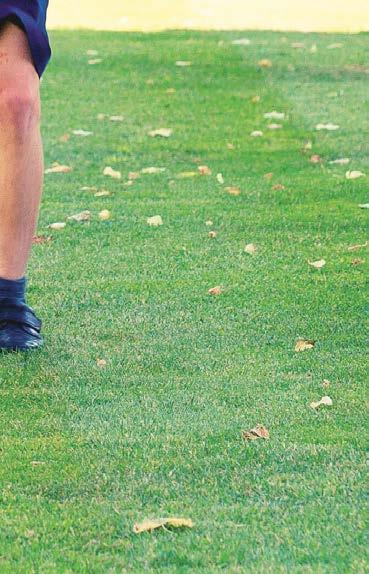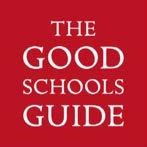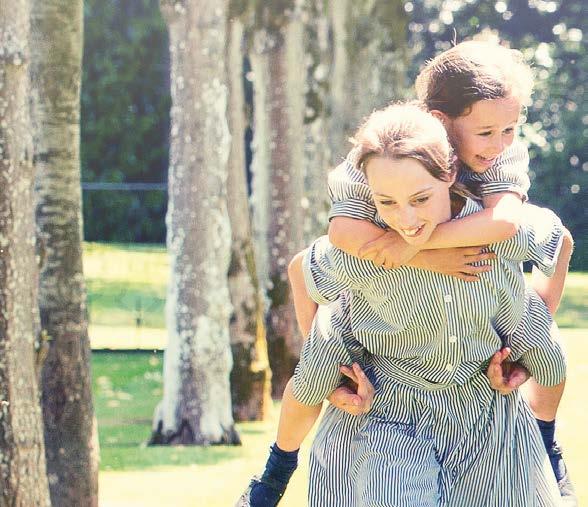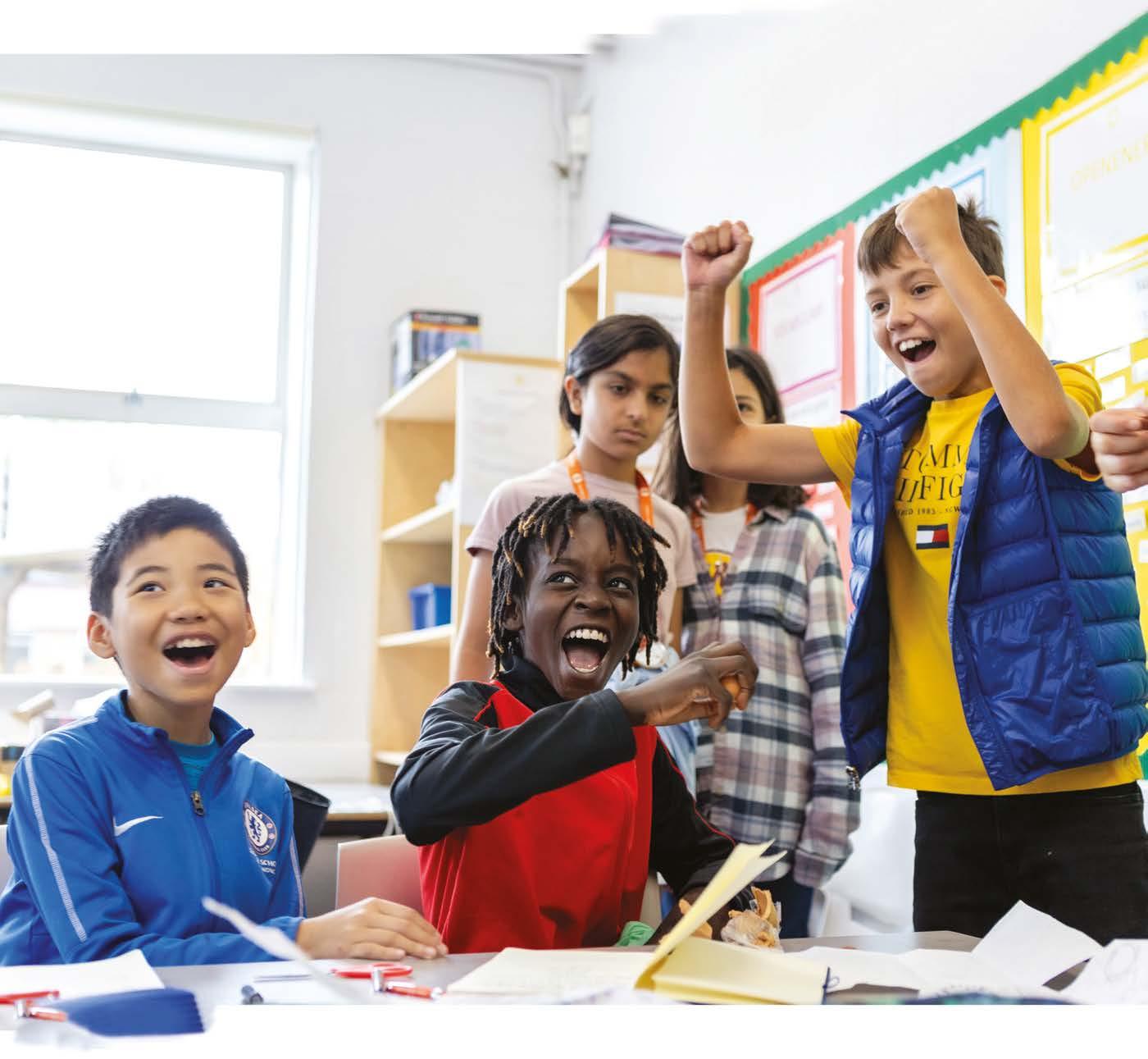







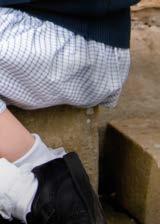








































7 In brief

All of the latest news and developments
13 Leading the way
Why girls must be helped to develop leadership skills in the modern world
15 Country life
What to think about if you’re considering a move from the city to the countryside
16 Community spirit
Vertigal integration is key to helping pupils thrive at Broomfield School
18 Soaking up life lessons
Experiencing a range of activities fosters curiosity, making children active learners
20 Starstruck!
Studying the night sky fires up childrens’ imaginations and interest in the universe
24 Too much too young
Downtime is important – don’t try to keep children constantly busy and stimulated
32 Apply some pressure
How to navigate the senior school admissions process
38 In five pictures...
Welcome to this spring prep schools edition of Independent School Parent !
Forest School, where children are instilled with a love of the outdoors and the world around them, has become an intrinsic part of pre-prep learning provision across schools in the UK. Newcastle-under-Lyme Prep School in Sta ordshire has taken this to a whole new level, with its outdoor pursuits programme, Prep Adventures. Borne out of a combination of Forest School, the Duke of Edinburgh’s Award Scheme and elements of Combined Cadet Force (CCF), its aim is to provide adventure, instil self-belief and encourage ambition in prep-aged children, and you can read all about it on page 46.
Stargazing and astronomy are part of the STEM curriculum at St Margaret’s Junior School in Hertfordshire, and on page 20, Head Emma Gray explains the benefits of learning about what’s going on in our night skies. Who would have thought…?
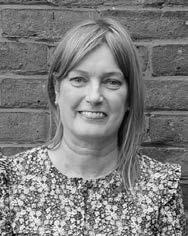
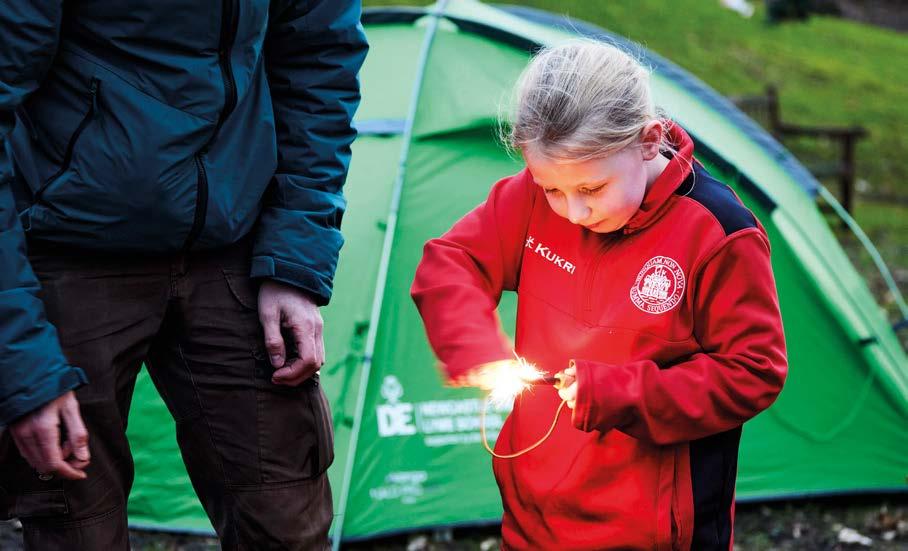
If you’re looking for something to do for a weekend or a few days away, and which combines culture with a bit of fun, why not explore the city of Amsterdam? On page 72, Tracey Davies and her daughter Lola discover hidden gems in the Netherlands’ capital.
There’s also a competition to enter on page 81, where you can win a night’s stay for your family at The Grand, York: find out more at independentschoolparent.com/win
Channing School in North London
40 Nothing ventured nothing gained
If a school is right for your child, a bursary could make it happen
46 Into the wild
Newcastle-under-Lyme School has a fantastic bespoke Prep Adventures scheme
50 Ask the experts
Post-pandemic, how can schools reinforce a sense of fun and belonging?
54 Pulling together
Pupils undertake partnership projects with the local community at Blundell’s School
60 Work in progress
The importance of encouraging children to think about careers at an early age
64 Just giving
Helping others is a positive way to promote wellbeing and boost self-esteem
68 Movers and makers
Successful independent school alumni
72 Double Dutch
An educational and enjoyable city break in the Netherlands
75 Calendar
Spring fun for half-term and beyond
81 Competition
Win a luxury family night away and cookery lesson at The Grand in York
82 School memories
Television presenter Kirstie Allsopp remembers Bedales School in Hampshire
Outstanding Catholic Independent School for boys & girls aged 3 -18
visit stbenedicts.org.uk
Nursery & Junior School | Thursday May 18
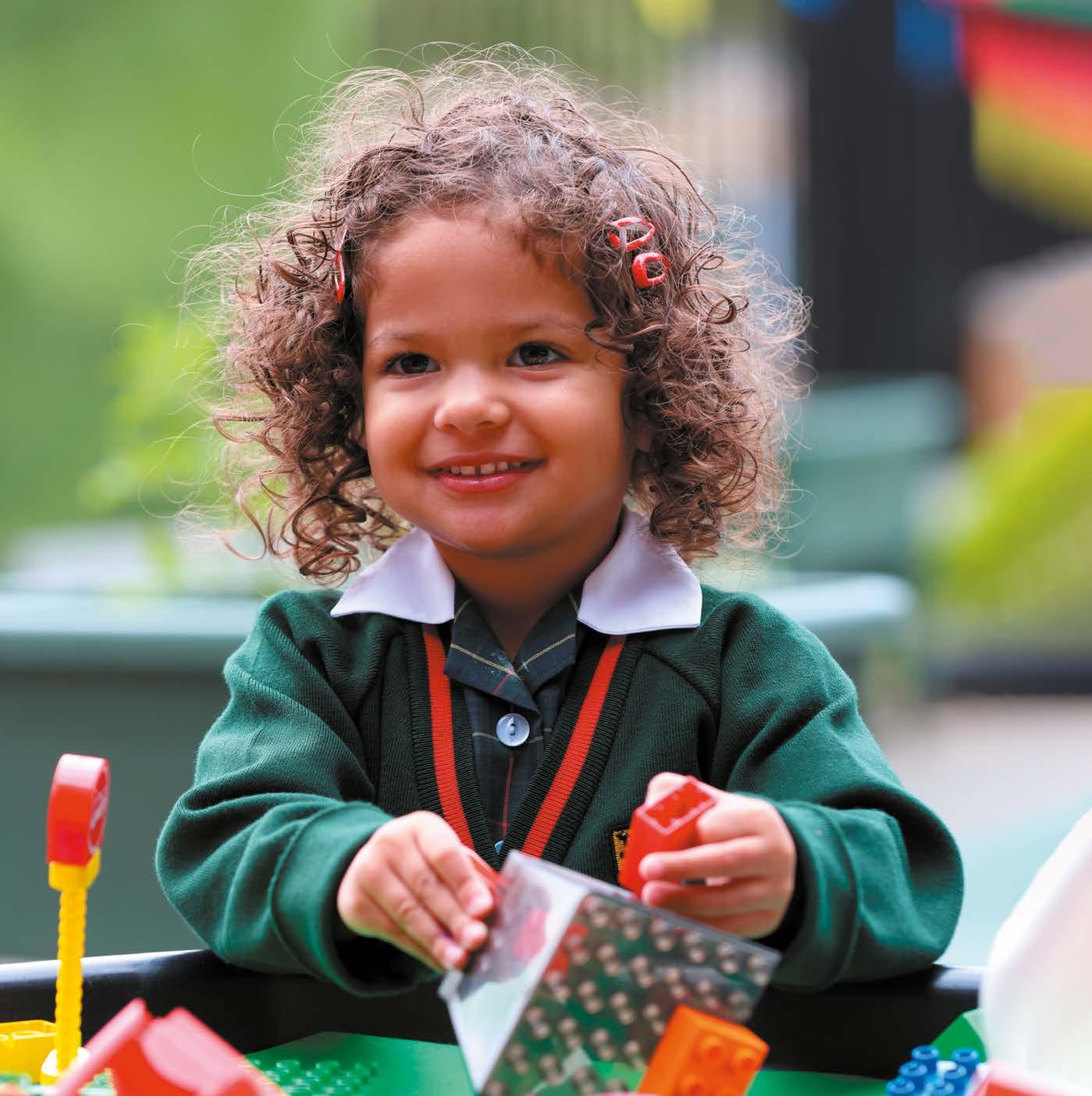
Senior School | Thursday May 4
Bursary and Scholarship places available

EDITORIAL
Editor Claudia Dudman
Sub Editor Sarah Edghill
DESIGN
Designer Barbara Stanley
ADVERTISING
Group Sales Director Catherine Chapman
Advertisement Manager Harriet Cottrell
Account Manager Nicholas Gavigan
DIGITAL
Group Digital Manager Ben Iskander
Email & Digital Creative Manager Jenny Choo
Digital Editorial Assistant Amber-Rose Hurst
PUBLISHING
Executive Chairman Paul Dobson
Managing Director James Dobson
Chief Financial Officer Vicki Gavin
Publisher Caroline Scott
PUBLISHED BY
The Chelsea Magazine Company Ltd, Jubilee House, 2 Jubilee Place, London SW3 3TQ Tel 020 7349 3700 Fax 020 7349 3701
Email editor@independentschoolparent.com
Distributed by Seymour Distribution Ltd.
2 East Poultry Avenue, London, EC1A 9PT Tel: 020 7429 4000 | Fax: 020 7429 4001
Production All Points Media. Printed in England by William Gibbons.
DISTRIBUTION
Independent School Parent is for parents of children in prep and senior independent schools. The Independent School Parent magazine in prep and senior issues is published termly. Parents can subscribe for a free issue at: independentschoolparent. com/register
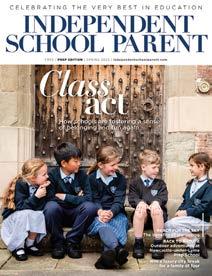
© The Chelsea Magazine Company Ltd 2023. All rights reserved. Text and pictures are copyright restricted and must not be reproduced without permission from the publisher. The information contained in Independent School Parent has been published in good faith and every effort has been made to ensure its accuracy. All liability for loss, negligence or damage caused by reliance on the information contained within this publication is hereby excluded.
Independent School Parent also publishes The Guide to Independent Schools biannually to help you choose the right school.

EDITORIAL ADVISORY BOARD
Colin Bell, COBIS
Alison Fleming Newton Prep, Battersea
Aileen Kane, Boarding Schools’ Association
Rachel Kerr, AMCIS
David Moncrieff, Chairman
Sir Anthony Seldon, Commentator and author
Mark Stretton, HMC
Ben Vessey, Canford School, Dorset
Sue Woodroofe, The Grammar School at Leeds
Helen Wright, Educational consultant
Peter Young, Marketing/Brand Consultant
COLIN BELL is CEO of COBIS, which works with and supports students, teachers, leaders, support staff and governors from high-quality British international schools in more than 80 countries around the world.
ALISON FLEMING has been Headmistress at Newton Prep in Battersea since September 2013. Educated at grammar school herself, she started out her impressive teaching career honing her classroom craft in state schools.
AILEEN KANE is the Boarding Schools’ Association’s Chief Operating Officer, overseeing media, marketing, sponsorship, finance and HR facilities. Aileen is a member of BSA’s senior leadership team.
RACHEL KERR is Communications Manager for AMCIS, the Association for Admissions, Marketing and Communications in Independent Schools. Previously, she led
communications for the Girls’ Schools Association and has been director of external relations for a large independent school.
DAVID MONCRIEFF is a publisher specialising in education and heritage, having previously worked as Director of Marketing at Mayfield School, and for more than 12 years as Director of Marketing Services at the British Tourist Authority.
SIR ANTHONY SELDON is a contemporary historian and political author. He’s the Emeritus Professor of the University of Buckingham and was the 13th Master of Wellington College in Berkshire from 2006 to 2015.
MARK STRETTON joined the Headmasters’ and Headmistresses’ Conference (HMC) as Communications Manager in 2017, bringing with him more than 15 years’ experience in education sector communications.
BEN VESSEY joined Canford in 2013 as Headmaster from Christ’s
Hospital, where he was Senior Deputy Head. He’s currently Vice-Chair of the HMC’s Professional Development sub-committee.
SUE WOODROOFE has been a Head for 12 years, first at The British School of Brussels, and now at The Grammar School at Leeds. She has a particular interest in the three-to18-years educational journey, as well as the benefits of multicultural and international learning environments for children.
DR HELEN WRIGHT is a former President of the Girls’ Schools Association and Vice-Chair of the independent Schools Council, with three major headships under her belt. Since 2014, she has worked in international education and advises, recruits and coaches senior leaders in schools all over the world.
PETER YOUNG is an independent school governor and Chairman of the Business Marketing Awards.
COVER: MORETON HALL, SHROPSHIRE




Pupils at the Romsey school brought 2022 to a joyful conclusion and looked forward to the start of a new year, with both the Early Years and KS1 nativity plays being performed to families at the close of the autumn term.
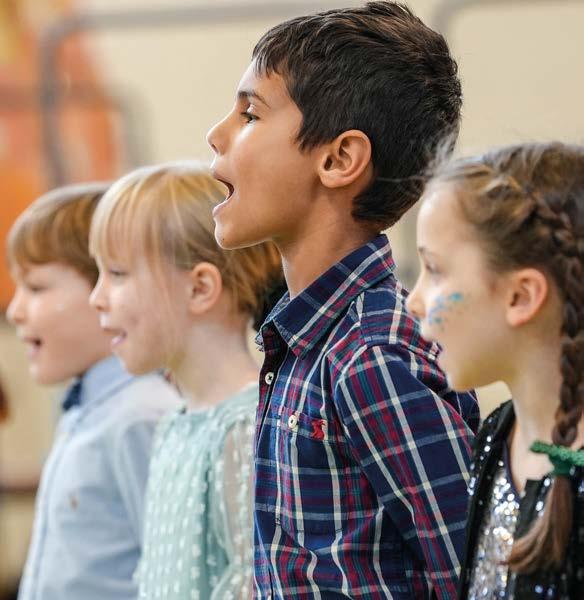
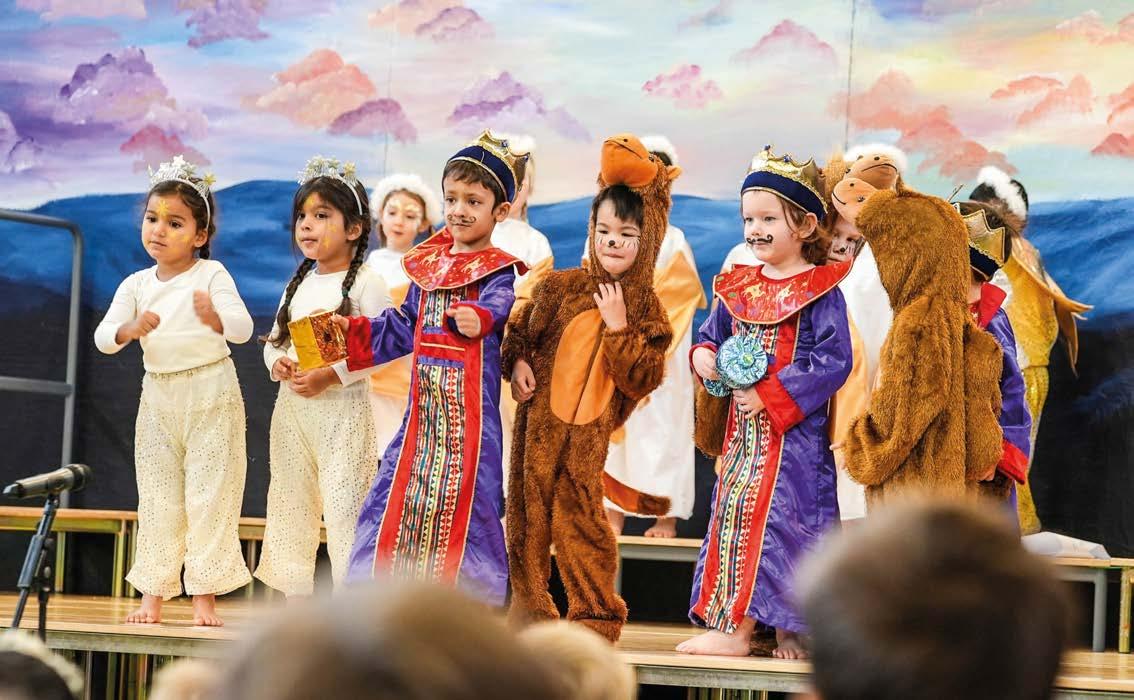
Having rehearsed hard for their Christmas show, pupils were excited to be on stage in front of their loved ones. The Early Years children gave a wonderful rendition of Whoops-A-Daisy, while KS1 opted for the more traditional We’d Like to Tell You a Story. Both nativities were filmed for family members who couldn’t make the live event.
“We thoroughly loved performing these nativities,” says Mrs Fay, Director of Music at Stroud. “A lot of hard work, planning and rehearsals went into these productions, and we’re so pleased that friends and families could enjoy these festive performances.”
The school also celebrated the festive season with a carol service at Romsey Abbey for middle and senior school children and their families.
Northwood Schools, Greater London
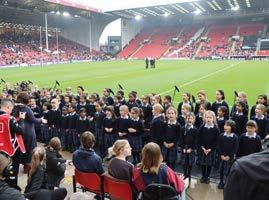
The school group, which comprises Broomwood Hall Lower School, Broomwood Hall Upper School and Northcote Lodge, will unite under one name from this September: Broomwood. The rebrand will consolidate the three schools into one united brand that symbolises and confirms the seamless educational journey from pre-prep to prep. Drawing on the best of each institute, Broomwood’s exceptional model of collaborative single-sex and co-ed learning will be clearer than ever before. The pre-prep will also extend its excellent Early Years provision by opening Little Broomwood, a pre-school class.

• #Bekind
Latymer Prep School, London
The Diana Award team has named the prep its School of the Month. This accolade recognises the work that the school’s antibullying ambassador team has been doing to promote positivity and create exciting peer support opportunities in its community.
• Easy rider St Swithun’s School, Hampshire
Holding the reins of her beloved Mountain Moorland pony Hugo, 11-year-old pupil Izzy Williams took on the adults at Birmingham’s Horse of the Year Show and incredibly came within one mark of the winner in the Working Hunter Pony competition.
• Fair share
Cameron Vale School, London
The New School Exeter, Devon
The Exeter School group nursery and pre-prep has launched its new Forest School. The outside space has been repurposed, with a nature trail running around the boundary of the grounds and an outdoor classroom where the children take part in rope swinging and campfire singing. The weekly sessions, which promote self-esteem, creativity and independence, are led by qualified Forest School practitioner, Caroline Smyth.
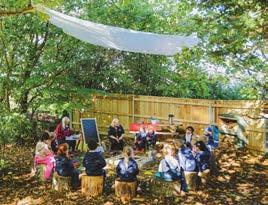
Dixie Grammar, Leicestershire
Sheffield Girls’ School GDST, South Yorkshire
Children from the Chelsea prep – which also recently raised £5,000 through an art auction for charity Gold for Kids – celebrated Harvest Festival by collecting food items for UK Harvest, which distributes donations to refuges, shelters and youth centres.
Infant and junior pupils enjoyed the unique experience of performing a song in front of 20,000 spectators at the Rugby World Cup, promoting children’s rights and in support of the wider work of UNICEF. Aged five to 11, the choir took to the stage during half time to deliver a moving rendition of Right to be Loved, a song written and produced by the Song Academy.
• Well versed Sancton Wood, Cambs
Finalists took to the stage to compete in the Poetry Together 2022 poetry writing competition, facing an illustrious judging panel made up of Gyles Brandreth, Waterstones
The Market Bosworth allthrough school’s team of riders won the British Showjumping Just for Schools national championships this year at Stoneleigh Park. Comprising one year 11 student and two year nine students from the school’s equestrian club, the team finished on a clear round to take the title. This achievement adds to the success of the school’s younger riders at last August’s NSEA Festival. s
Children’s Laureate Joseph Coelho and award-winning poet Lucy Cuthew. The junior school winners were Benjamin Andrews and Georgina Wall.
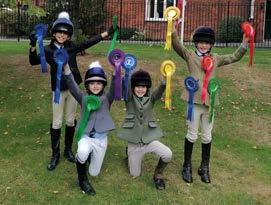
Moon’ marked the Artemis missions and 50 years since astronauts stepped on the moon’s surface. A team of stellar scientists from Upper Prep inspired the school by leading assembly and demonstrating their passion for learning. e fascination and wonder of the moon inspired the STEAM activities and experiments across every year group from Reception, upwards. Pupils tested and trialled their innovative ideas using robotics and questioned each other with purpose and conviction. Enrichment opportunities such as these, expose pupils to interesting topics and o er a chance to learn new skills through practical, active learning. Whether it’s debating, coding, skateboarding, zendoodling, micro-bit development, or fencing, teachers and pupils play and learn together throughout the enrichment of the ‘everyday’ at Sydenham High Prep School.
The minute we are born, the world around us provides surroundings to explore and discoveries to make. e ‘learning’ that subsequently happens along the way is part of a lifelong process. Children are innately curious, beginning their early lives questioning and wondering about the world around them. e ever-present, “Why?” is a word uttered with a compelling conviction that to most adults can be staggering in frequency. Young children’s ability to nd joy in learning about the simplest things and feel accomplishment in conquering those early life skills; building towers; learning to write their name; tying shoelaces is a reminder to acknowledge the power of perseverance in shaping a child’s vision for their day ahead.
At Sydenham High Prep School, we want our pupils to always remain that curious and enthused about their learning everyday. Our singular vision for excellence is built upon the core foundations of an aspirational, creative critical thinking and innovative learning environment that allows pupils to experience the joy of learning rsthand. When children are lled with a love for learning, they develop
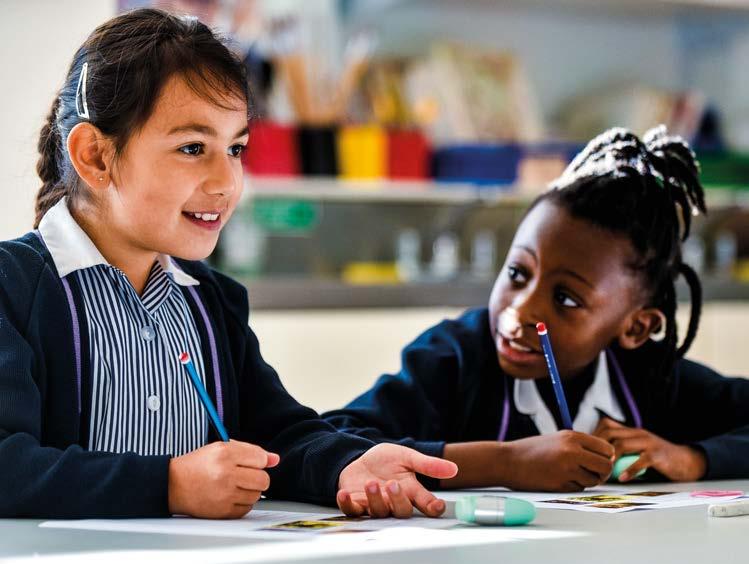
resilience, compassion for the world around them, curiosity, and communication skills.
e ability to ‘bounce back’ and persevere are central tenants to fostering a healthy approach to life and its inevitable bumps along the way. e modern challenges of the day beg of this at a more exponential rate than ever. Signalling the ‘everyday’ small moments of joy that exist and cultivating a community spirit of gratitude foster a connection between the girls at Sydenham High Prep School that is ful lling whilst grounding.
e joy of learning bubbles in the classrooms of Sydenham High Prep School every day. Enthusiasm permeates debates and discussions, whilst our teachers provide ambitious learning challenges for pupils and o en hands-on activities to better visualise and understand speci c subjects. O ering choices through challenges encourages pupils to look deeper to open up their own initial ideas. Play and imagination is encouraged at all ages, seeing the girls develop their learning together through spirited, active discourse.
Pupils learn joyfully all around the school. Recently, a STEAM day themed ‘Mission to the

Children are motivated in many di erent ways. At Sydenham High Prep School, we want every pupil to feel empowered and excited about learning. Our newly designed wall wraps capture the vast array of passions our pupils have and the creativity of young minds. Exposing children to a diverse, broad range of experiences and topics sparks their imagination and allows them to discover things that they eventually may become interested in exploring deeper.
Whilst children have a natural propensity for curiosity, there can be no doubt on the impact that we, as parents and educators, have on fostering a lifelong love of learning. Creating an environment where joyful learning ourishes helps children acquire knowledge and skills, but more importantly, gain con dence and pride in their own intellectual abilities as the young minds of the future. Girls at Sydenham High Prep School are encouraged to forge their own path, prepare for a future unknown; quietly con dent in the knowledge that they have all that they could ever need, within themselves. Our approach to learning at Sydenham High Prep School inspires and ensures that along this path, the girls develop the habits, skillset, mindset and the wellness to be successful wherever life may take them.
sydenhamhighschool.gdst.net
Gillian Panton, Head of Sydenham High Prep School, writes on the importance of encouraging curiosity
150+ Co-curricular Clubs, Activities and Trips

50+ Senior School Destinations
20+ Musical Ensembles
15+ Stage Productions
200+ Scholarships Awarded 2020-2022
7.00am-7.30pm Wrap Around Care
Sports Played at Every Level 12+ Alumni and Friends School Community Events
Dulwich Prep London provides an outstanding Values-led education. We offer a wide range of opportunities to nurture independent thinkers who go on to be thoughtful citizens of the world, equipped with a strong moral compass and the ability to adapt to our rapidly changing environment.
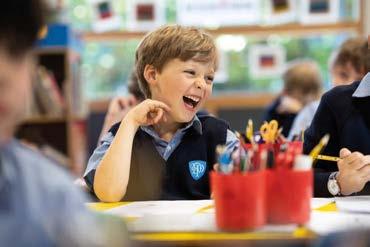
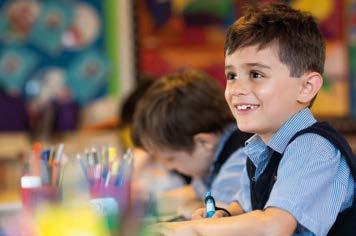
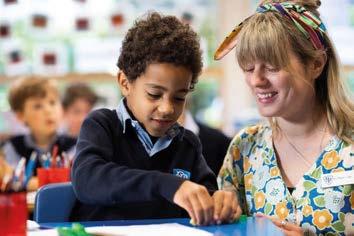
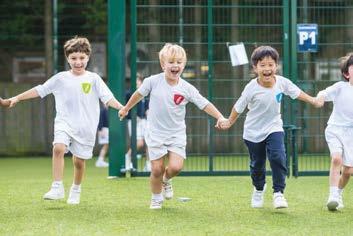

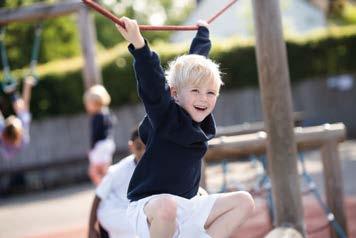
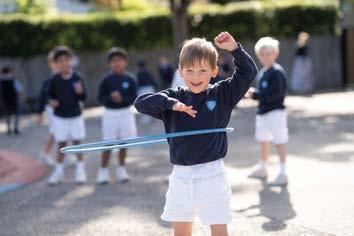

Our Early Years site is home to our Nursery and Reception classes. They are housed in an awardwinning building set in five acres of woodland and playing fields. We are now offering tours for 2023 and 2024 entry. We look forward to meeting you soon.
Contact our Admissions team on 020 8766 5525 or email admissions@dulwichpreplondon.org

It’s all change for these schools
Beechwood Park, Hertfordshire will welcome Christian Pritchard as Head in September.
Pennthorpe, West Sussex
In September, Hilary Phillips will become Head of Hanford School, Dorset.

The prep unveiled its new state-of-the-art, all-weather multi-use games area (MUGA) with the help of Old Pennthorpian and World Athletics Championship gold medallist, Jake Wightman, who was on ribbon-cutting duties. The 70m x 35m sand-based Astro will accommodate a plethora of sport, namely hockey, football and netball all year round. It joins the school’s other sporting facilities, such as the sports hall, pavilion, football and rugby fields and cricket square.
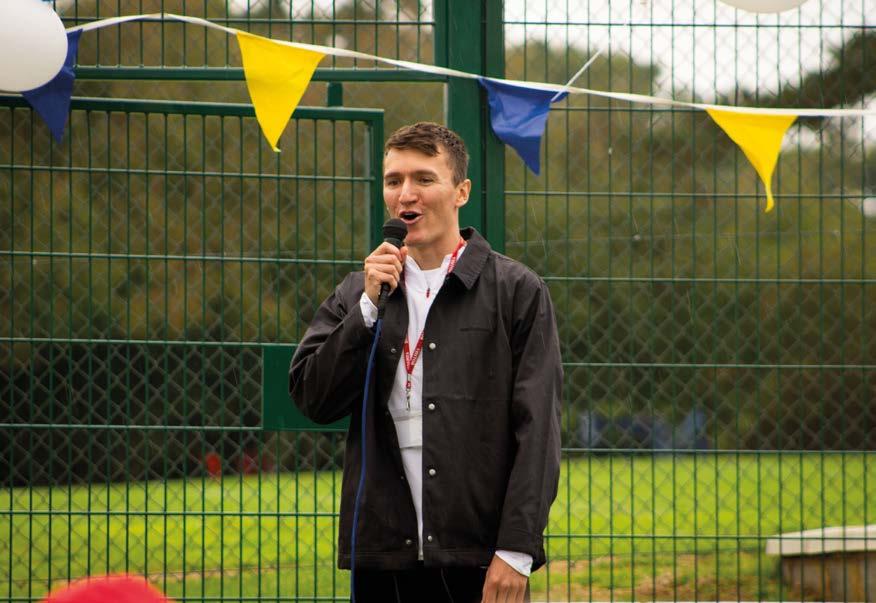
Old Buckenham Hall, Suffolk has announced the appointment of Head, James Large Thomas Banyard will join RGS Dodderhill, Worcestershire as Head in the summer term.

The Oratory School, South Oxfordshire has appointed Dr Julian Murphy as Head, starting in September.




Cheltenham Prep School, Gloucestershire
In September 2022, the prep welcomed children into the newly built, dedicated nursery school facility on its campus. The school’s youngest pupils and their families were amazed at the new purpose-built nursery, complete with indoor and outdoor learning spaces to provide a supportive, state-of-the-art environment where they’ll enjoy creative play alongside French, music and mindfulness sessions.
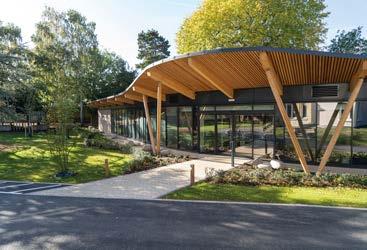
Woodbridge School, Suffolk
Upon recognising that engineering is at the core of STEM learning, the Ipswich school has become one of the first in the UK to champion it as a stand-alone subject for students in years one to six. All lessons are delivered by a specialist engineering teacher, who has experience as a project engineer in a multinational manufacturing company. Class sizes of 10 allow for in-depth discussion and support for each child.
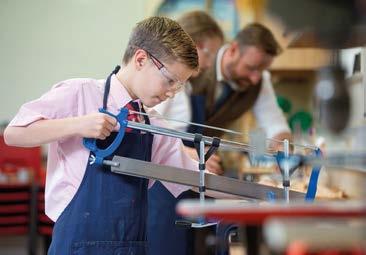

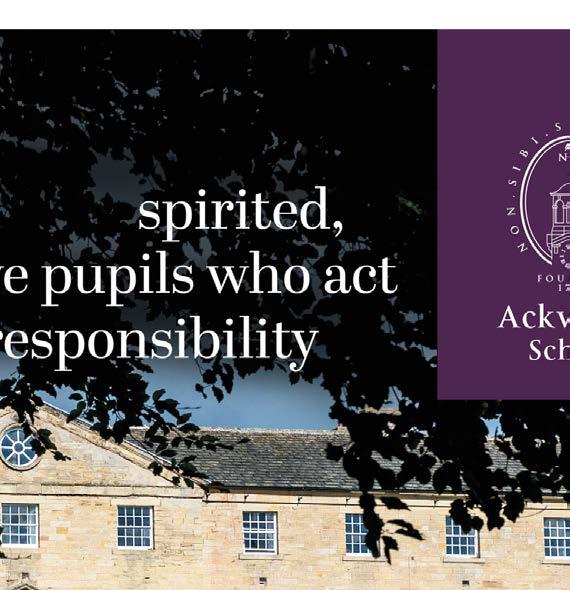

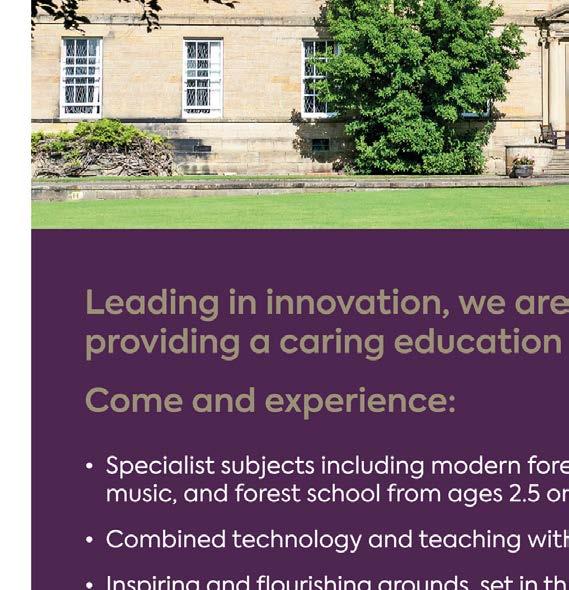
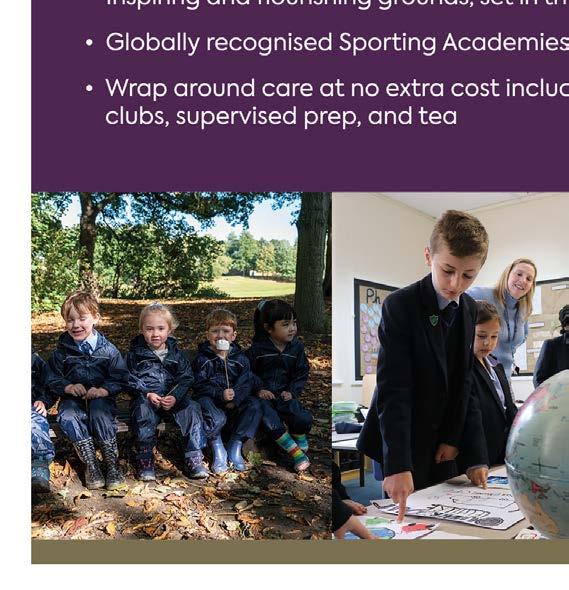



If you were asked to imagine a leader, who comes to mind? The majority of people would visualise an inspirational man. There is a global phenomenon ‘think manager – think male’ which effectively highlights that, even though huge strides have been made in relation to gender equality, our internal social bias is that men are the leaders. In the last decade, scientific findings have concluded traits such as humility, self-awareness, emotional intelligence and kindness are needed to make the most effective leaders. Findings also conclude that women outperform men in these key traits.
This presents us with a problem: women have huge potential as incredibly effective leaders, but our cognitive bias as a society about the gender we think leaders need to be and the traits we believe we need to see in them, presents a barrier to many
by female leaders across the school, acting as mentors, coaches and role models for our young women. Small group workshops and 1:1 coaching sessions are undertaken in areas such as strengths identification, finding your passion, leadership identity and effective reflection. We also have a programme of visiting speakers alongside this to inspire and empower our girls on their pathway to leadership. By creating this programme we are not saying girls need more leadership development than boys; it is simply an acknowledgement that, due to the continued gender imbalance in leadership roles and the cultural assumptions, as a society we continue to dissociate women in leadership. With this in mind, and as an educator of both boys and girls, we actively prepare our girls for these kind of challenges; so they have the best chance of overcoming them in their
women realising this leadership potential.
I am fortunate to work in a school where 85 per cent of senior staff are female. I have seen the benefits that female leadership can have on employee morale, passion, collaboration and a positive culture. As a Head and female leader in education, I have also, however, experienced the ‘think manager – think male’ phenomenon at play. It’s often subtle and subconscious, but it definitely continues to exist. Although there has been much progress in society’s view of women as leaders, a shift in a long-ingrained cultural mind-set doesn’t happen quickly or without specific action.
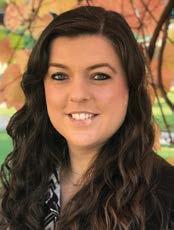
This is why, at Pennthorpe, we have created the ‘LeaderHERship programme’ for our girls in years six to eight. Research shows that exposing adolescent girls to leadership and actively developing their understanding and use of their leadership skills is critical preparation for them to undertake future leadership roles. The programme is specifically designed to empower our girls to believe in themselves, set their sights high and proactively seek opportunities to utilise their skills. LeadHERship is delivered
pursuit of future leadership positions. Running in parallel with these opportunities for our girls, is the consistent education and encouragement of our boys in their understanding of equal opportunities for all, thus bolstering their belief in their own abilities to thrive.
Leadership is not an inherent characteristic, but a set of skills and attitudes that can be nurtured and developed. One of the most powerful things we can do as educators is cultivate a generation of female leaders who value the qualities they can bring to leadership positions and have the resilience to withstand accusations that, because they are not dominant enough, forceful enough or male, they are not good leaders. The world would benefit from more leaders who focus on empowering others, lead with kindness and empathy and have the emotional intelligence to work with a wide variety of people effectively and get the best out of them. Although these qualities are seen as stereotypically female, we must work on instilling them in both girls and boys. These are the traits needed for effective contemporary leadership; let’s embrace them.
Girls need an equal chance to develop the skills and attributes to prepare them for leadership in today’s world, says Lydia Waller
THE PROGRAMME IS SPECIFICALLY DESIGNED to empower our girls to believe in themselves, set their sights on leadership and proactively seek opportunities TO UTILISE THEIR SKILLS

Moving to the countryside has been absolutely the right decision for my family, although it did take us some time to feel ready.
My husband and I had lived in London since we were in our twenties, and we spent the best part of the last two decades in Chelsea. We loved our life in London and having everything on our doorstep, but I knew I didn’t want my children in London schools as they got older.
Gloucestershire had been our weekend home for the last 12 years, so we knew the area well, and we were lucky enough to have a few friends who had also moved out of London in the same direction. It meant our transition between town and country was a lot smoother, as we switched from weeks in London and weekends in the country, to full-time
be bleak), and I’d also recommend joining a few fitness classes with other mums, getting stuck into the school community or working with a charity. I started volunteering with the National Foundation for Retired Service Animals which has helped me build my life here as well as giving my family what they need.
When considering country prep schools, we knew we wanted Tabitha to go to Beaudesert. We had friends with children there and knew it was the place for us, but we didn’t realise how amazing it was until we joined.
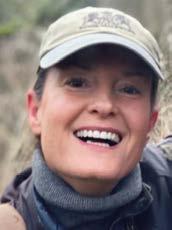
The space is unparalleled. Both my children loved their London school while they were younger, but it was just one building with no playground or outdoor space. Whenever they played sports, they had a 15-minute walk or a coach journey to local
country living. After lockdown – and with my eldest moving to Marlborough College – I lost the love for London life.
Moving full-time to the countryside is very different to spending the weekend here; when you are visiting, you can dip into the country lifestyle of roaring fires and village pubs. When you are here full-time, all the everyday chores still need to be done and the mud…there is so much mud!
We also found it extremely difficult to find a house here. Over a year on from our move, and after three years of searching, we are only just completing on a property – although, it was definitely worth the wait.
If you are considering escaping to the country (this term makes me laugh as it really is ‘freeing’), I would recommend going slowly. It can be a bit of a culture shock and you might find you aren’t ready to leave the city permanently; my husband is still hanging on to London by his fingernails!
It’s definitely worth renting in an area first, and make sure you have something to anchor yourself to, whether that’s family, friends or a school you know you want to join. Think about the time of year you are moving in (doing the school run in the darkest depths of January and February can
facilities. It was a happy school, but I knew they would outgrow it.
Beaudesert has acres of space, with so much land for the children to run around in and climb trees! It has so many more facilities for the children to enjoy: science labs, cricket pitches, art studios, AstroTurf for hockey, tennis and football and a performing arts centre, to name a few.
For us as a family, the move has been the best thing. Tabitha has excelled. She spends much less time on a screen than she would have done in London, and instead she is out in our garden (yes, we have a garden now!), or at school, building a den in the trees or constructing a mud oven with her friends at break time.
We are both riding again, which is a wonderful bonding experience for us. She loves her sport so much more and is playing with and against children of a higher calibre, purely because they do so much more of it out here!
I would recommend the move to anyone. Instead of crowded streets and busy commutes, two deer crossed in front of my car this morning as I was doing the school run. You can’t get more quintessential than that! Make sure you are ready for the move but do it and enjoy!
Jill Bradley swapped living in London for Gloucestershire and says it was the right decision for her family. Here she writes about what to consider if you are planning on doing the same…
THE MOVE HAS BEEN THE BEST THING. Tabitha has excelled. She spends much less time on a screen than she would have done in London, AND INSTEAD SHE IS OUT IN OUR GARDEN (YES, WE HAVE A GARDEN!)
Broomfield is a family school. We all feel it, pupils, staff, parents, even the team of ISI Inspectors who recently visited felt it. Their report noted:
“The school’s implicit culture and sense of family… underpins the pupils’ desire to do their best.”
Founded in 1876, Broomfield was owned by a local family who ran the school for over 50 years. We are now part of a much wider family, Dukes Education, but determined that this core element of our school isn’t lost in the bigger picture.
So, how do you make and sustain a family school? It’s important to embed values that foster partnerships in our school community, and instil a culture of kindness and mutual support.
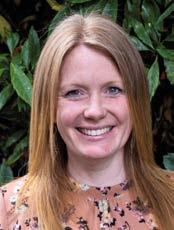
But how the school is structured matters too.
to be upstanders not bystanders, empowering them to share responsibility with the whole school community to make sure it is a happy, safe space. Vertical integration makes it more likely they will choose to be proactive, to interrupt a playground game to take care of a younger or older friend.
Personal development: our house system brings children together in sports, academic competitions and charitable endeavours. Elections within houses bring dynamism to our pupil council, where classes in KS2 are represented. They canvas opinions, debate ideas and make proposals to influence school developments; they even have a budget to spend, courtesy of our fabulous PTA. We have implemented some terrific ideas, from introducing trousers to the girls’ uniform options to managing competing
Vertical integration is a key plank in Broomfield’s strategy to create this sense of family. It might sound formal but, in essence, vertical integration simply maximises every opportunity for the children to engage in learning and play with other year groups. Thousands of interactions take place every day in school and we want these to be supportive moments where older and younger children benefit and learn from each other.
To achieve this, our pastoral and academic initiatives are aimed at creating constructive relationships across the school years which result in a number of important outcomes.
Role models: small children love older ones to pay them attention and vertical integration allows our older children to play a key role in modelling positive behaviours with the younger ones.
Social skills: hands-on experience of supporting more junior children gives opportunities for senior pupils to influence school life for the better. They learn to challenge poor conduct and help each other make better choices going forward. Encouraging children to tell a teacher if they see any unkindness means we can address issues when they occur. We ask children
demands for different games at playtime. There are many other ways in which we encourage vertical integration. Trained antibullying ambassadors in years four and five assist others in the rest of the school in handling tricky social situations. Year six pupils take on prefect roles, which reflect their personality and interests. They escort younger classes to assemblies and run activities with them during wet play.
Year one is a lovely moment, when the class transitions into the more formal school uniform and important new skills are required. They are championed in this by year five, who help teach them to do up shoelaces and ties.
As Deputy Head of Pastoral, I see the benefits of this family culture daily. Confidence grows, social skills develop and the ability to work with others increases. Children can adapt to new experiences and find ways to solve challenges by thinking in different ways. The vertical links also benefit year six in their 11+ interviews, when they are often asked how they contribute to life at school. They have real life experience of leadership, motivating others, tackling challenges and building a sense of community and shared endeavour.
A structure based on vertical integration encourages engagement and collaboration across the year groups and helps to maintain our founding ethos as a family school, writes Jo Pache
VERTICAL INTEGRATION MAKES IT much more likely they will choose to be proactive, TO INTERRUPT A PLAYGROUND GAME TO TAKE CARE OF A YOUNGER OR OLDER FRIEND
Every child has the potential to shine. At Aberdour, we aim to find the brilliance in every child, by providing an individual tailored education that identifies their potential and maximises their opportunities to learn, grow and succeed.
Every child has the potential to shine. At Aberdour, we aim to find the brilliance in every child, by providing an individual tailored education that identifies their potential and maximises their opportunities to learn, grow and succeed.
Every child has the potential to shine. At Aberdour, we aim to find the brilliance in every child, by providing an individual tailored education that identifies their potential and maximises their opportunities to learn, grow and succeed.
Every child has the potential to shine. At Aberdour, we aim to find the brilliance in every child, by providing an individual tailored education that identifies their potential and maximises their opportunities to learn, grow and succeed.
Every child has the potential to shine. At Aberdour, we aim to find the brilliance in every child, by providing an individual tailored education that identifies their potential and maximises their opportunities to learn, grow and succeed.
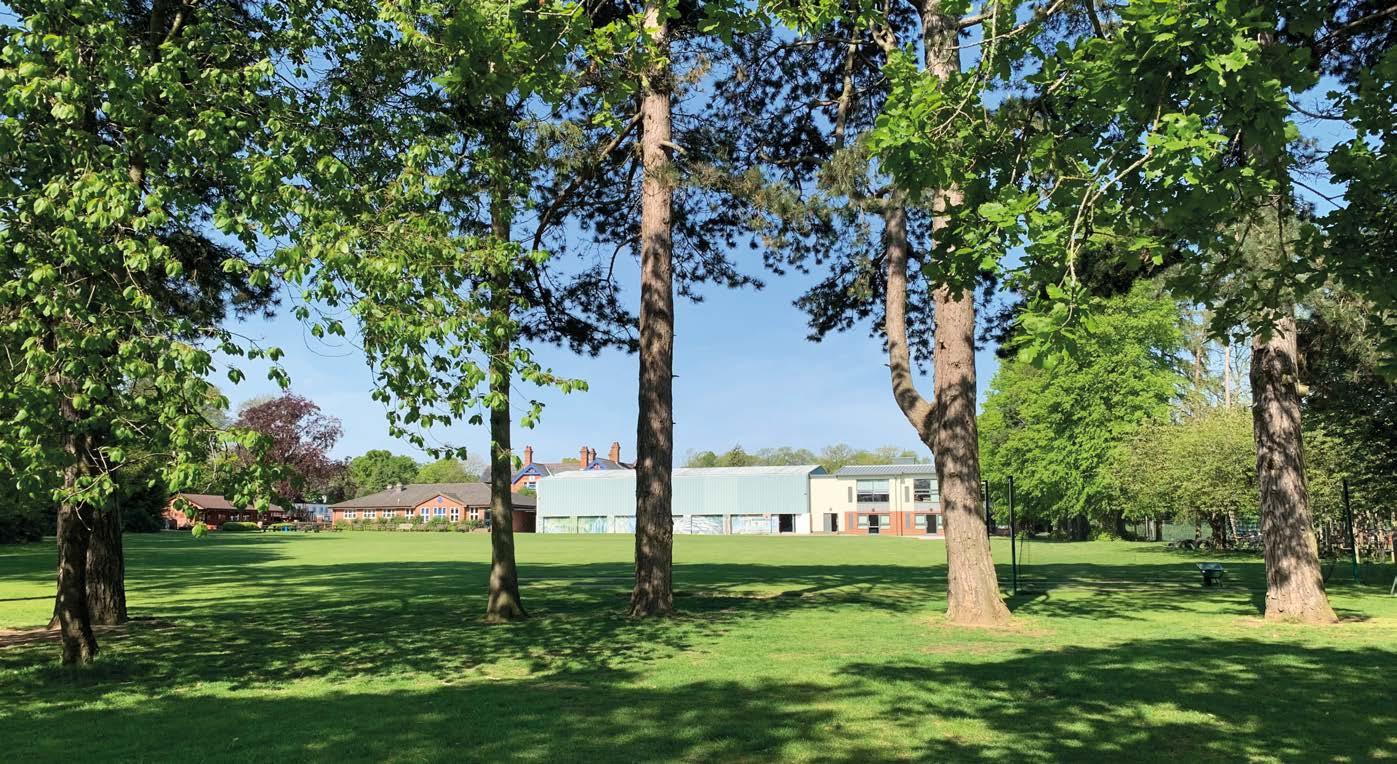
Founded in 1928 Aberdour is a thriving and extremely successful preparatory school for girls and boys aged 2-11 years. Set in 12 acres of beautiful Surrey parkland, Aberdour is truly a hidden gem, providing a safe and happy haven for your child. With our many purpose-built facilities for learning, sport and play, your child can develop his or her talents and skills whilst experiencing an exceptional breadth of opportunity both inside and outside the classroom.
Founded in 1928 Aberdour is a thriving and extremely successful preparatory school for girls and boys aged 2-11 years. Set in 12 acres of beautiful Surrey parkland, Aberdour is truly a hidden gem, providing a safe and happy haven for your child. With our many purpose-built facilities for learning, sport and play, your child can develop his or her talents and skills whilst experiencing an exceptional breadth of opportunity both inside and outside the classroom.
Founded in 1928 Aberdour is a thriving and extremely successful preparatory school for girls and boys aged 2-11 years. Set in 12 acres of beautiful Surrey parkland, Aberdour is truly a hidden gem, providing a safe and happy haven for your child. With our many purpose-built facilities for learning, sport and play, your child can develop his or her talents and skills whilst experiencing an exceptional breadth of opportunity both inside and outside the classroom.
Founded in 1928 Aberdour is a thriving and extremely successful preparatory school for girls and boys aged 2-11 years. Set in 12 acres of beautiful Surrey parkland, Aberdour is truly a hidden gem, providing a safe and happy haven for your child. With our many purpose-built facilities for learning, sport and play, your child can develop his or her talents and skills whilst experiencing an exceptional breadth of opportunity both inside and outside the classroom.
+44
354
Founded in 1928 Aberdour is a thriving and extremely successful preparatory school for girls and boys aged 2-11 years. Set in 12 acres of beautiful Surrey parkland, Aberdour is truly a hidden gem, providing a safe and happy haven for your child. With our many purpose-built facilities for learning, sport and play, your child can develop his or her talents and skills whilst experiencing an exceptional breadth of opportunity both inside and outside the classroom.
+44 (0)1737 354 119 /
Aberdour developed P.A.L® in 2007, providing a truly personalised education with breadth and flexibility. We have supported P.A.L® with major investments in our staff, our systems, our buildings, our IT and our resources, and the combination of a child-focused education. Through Personalised Achievement Learning®, we believe that every child will fulfil their individual potential if we nurture the talent that is within them, whatever that talent may be. Genuinely innovative teaching has made a real difference to the children’s skills, achievements and enjoyment of life. We invite you to come see for yourself.
Aberdour developed P.A.L® in 2007, providing a truly personalised education with breadth and flexibility. We have supported P.A.L® with major investments in our staff, our systems, our buildings, our IT and our resources, and the combination of a child-focused education. Through Personalised Achievement Learning®, we believe that every child will fulfil their individual potential if we nurture the talent that is within them, whatever that talent may be. Genuinely innovative teaching has made a real difference to the children’s skills, achievements and enjoyment of life. We invite you to come see for yourself.
Aberdour developed P.A.L® in 2007, providing a truly personalised education with breadth and flexibility. We have supported P.A.L® with major investments in our staff, our systems, our buildings, our IT and our resources, and the combination of a child-focused education. Through Personalised Achievement Learning®, we believe that every child will fulfil their individual potential if we nurture the talent that is within them, whatever that talent may be. Genuinely innovative teaching has made a real difference to the children’s skills, achievements and enjoyment of life. We invite you to come see for yourself.
Aberdour developed P.A.L® in 2007, providing a truly personalised education with breadth and flexibility. We have supported P.A.L® with major investments in our staff, our systems, our buildings, our IT and our resources, and the combination of a child-focused education. Through Personalised Achievement Learning®, we believe that every child will fulfil their individual potential if we nurture the talent that is within them, whatever that talent may be. Genuinely innovative teaching has made a real difference to the children’s skills, achievements and enjoyment of life. We invite you to come see for yourself.
Please visit our website for information on our Open Mornings and to contact our Registrar.
Please visit our website for information on our Open Mornings and to contact our Registrar.
Aberdour developed P.A.L® in 2007, providing a truly personalised education with breadth and flexibility. We have supported P.A.L® with major investments in our staff, our systems, our buildings, our IT and our resources, and the combination of a child-focused education. Through Personalised Achievement Learning®, we believe that every child will fulfil their individual potential if we nurture the talent that is within them, whatever that talent may be. Genuinely innovative teaching has made a real difference to the children’s skills, achievements and enjoyment of life. We invite you to come see for yourself.
Please visit our website for information on our Open Mornings and to contact our Registrar.
Please visit our website for information on our Open Mornings and to contact our Registrar.
Please visit our website for information on our Open Mornings and to contact our Registrar.
Brighton Road, Burgh Heath, Surrey KT20 6AJ
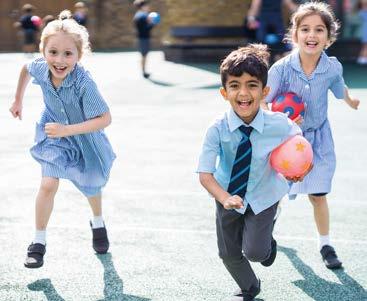
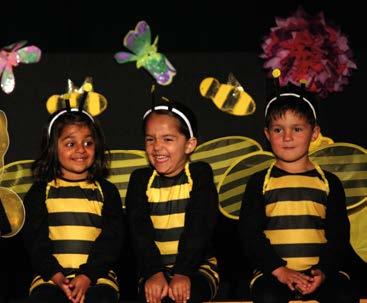

As children grow, they need allaround stimulation and direct exposure to different activities and interests, whether that be in school or in extracurricular clubs. These activities are central for their growth and character development. As the saying goes, ‘children are like sponges’ – they absorb everything that is going on around them. Every little thing they experience builds connections in their brain and they constantly seek out new interests and experiences to improve their skills.
When children make their first steps into the world of education, either through nursery or reception, it becomes their new centre for learning and social development. They become bigger ‘sponges’, building experiences upon experiences, expanding their cognitive skills. School and its tailored learning environment play a huge role in shaping their personalities and social skills. They learn to question everything, take risks and problem-solve. Co-operation and sharing are taught through teamwork activities and children learn how to respect the feelings of one another. These
says
Head Jane Bondactivities kindle their drive towards exploration and knowledge.
At Kew College Prep, we believe children need to be exposed to a myriad of activities so that they can nurture and foster their own curiosity. In the Early Years curriculum (nursery and reception), the school offers a stimulating and vibrant environment where children learn primarily through play and sensory activities. Exciting daily happenings include phonics and number work and specialist-taught lessons in music, art, movement, Forest School, library time, ICT, French, dance and cooking. In the past, children have enjoyed tropical fruit tastings wearing chef hats, an invigorating dance routine set to the words of We Will Rock You!, a phonics card game, an outdoor learning session
under the colourful canopy of autumn trees and a minibeast design session on Busy Things. Our Infant House (years one and two) continues to build on the secure foundation established in reception, gradually moving to a more formal learning approach. Children focus on resilience, independence, group work and initiative. Through engaging and stimulating lessons, children develop a passion for reading and maths. Daily activities still include specialist teachers in art, French, music, ICT, dance and games. Children are introduced to the thrills and challenges of playing as team members in sporting activities. In music, they are taught to read music and sign up for instrumental lessons from year one. Almost a third of the school continues on to have individual piano
ALL THE ACTIVITIES HAVE BEEN CREATED to encourage new talents and widen young children’s experiences. WE WANT THEM TO HAVE A GO AT ANYTHING THEY WANT!
There really is an extracurricular club for every season and pupil at our school! Some of the term-time clubs include:
• Film and Photography
• Sewing
• Young Voices Choir
• Netball
• ICT
• French
• Robotics
• Multi Sports Club
• Yoga
• Tennis
• Arts and Crafts
• Dinky Dancers
• Chess
lessons. Children are also given opportunities to work independently and collaboratively on larger theatre projects, music ensembles and the Young Voices Choir.
Our children are encouraged to play an active role in their learning (in and outside school), to think for themselves and to make connections with their own experiences and the world around them. From the beginning of their days in pre-prep, they are encouraged to become reflective learners.
Extracurricular activities and clubs are
abundant at Kew College Prep. It’s one of our many strengths! Not many schools can offer as many clubs as we do in pre-prep. We have more than 12 after-school clubs for years one and two. We believe access to a variety of clubs at this age helps play a significant role in the children’s personal development. They also boost children’s self-esteem and confidence and can set a pathway for general wellbeing and health.
All the extracurricular activities have been created to encourage new talents and to widen young children’s experiences. We want them to
feel empowered and to have a go at anything they want! The activities also provide them with a way to relax away from the classroom during the initial academic throes of pre-prep.
We strongly believe that early exposure to an array of activities, both curricular and extracurricular, helps children learn more about themselves and creates a positive impact on their school performance. At Kew College Prep, we want to give all our children the best possible start in life and the support to reach their full potential.
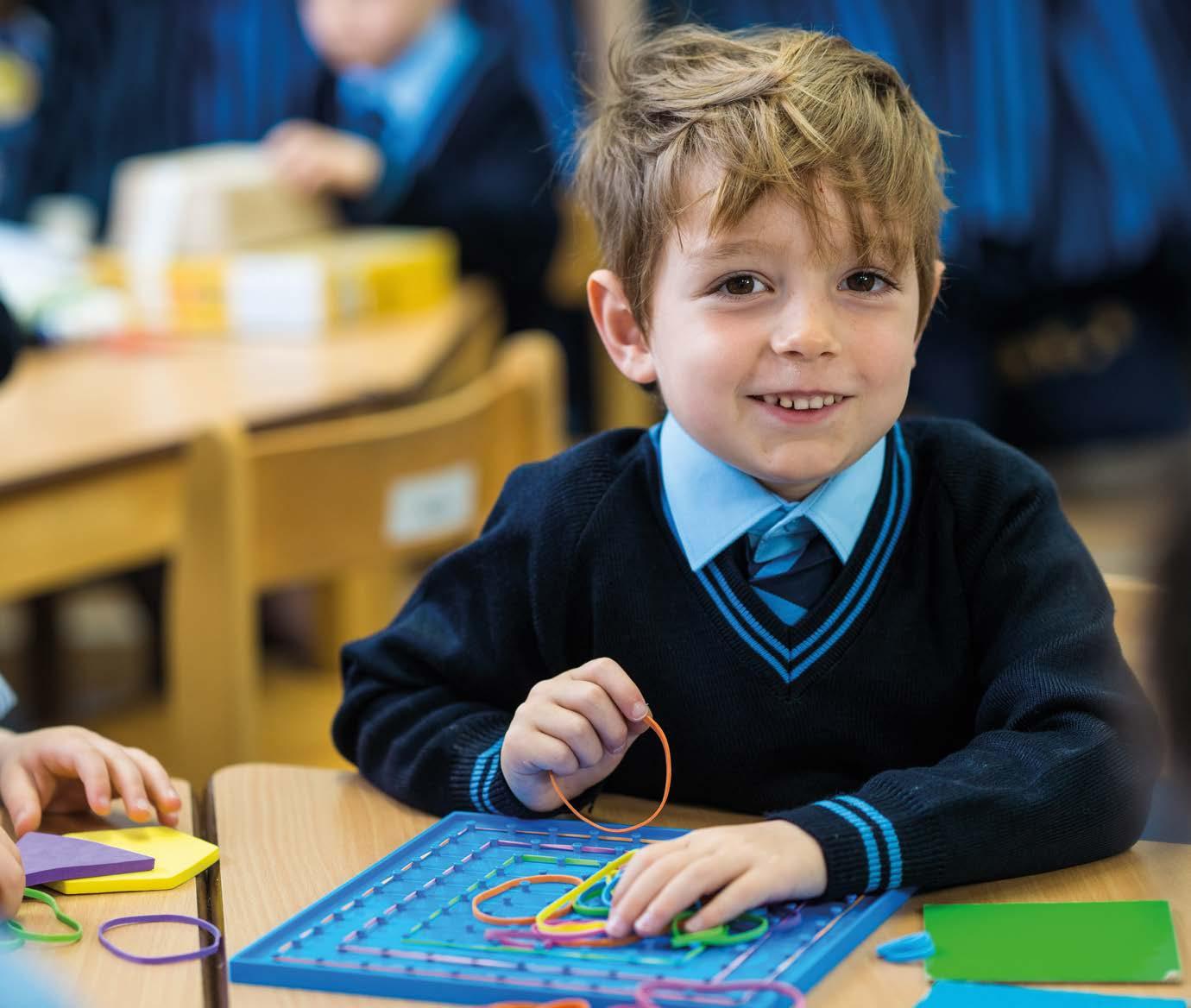



















 The night sky has always been a source of wonder and excitement for all children
The night sky has always been a source of wonder and excitement for all children
Emma Gray, Head of St Margaret’s Junior School in Hertfordshire, says children are never too young to have their imaginations fired up by the school’s STEM-curriculum subject of stargazing

Enriching children’s learning experiences in school is vital in helping them to thrive academically and develop emotionally as well-rounded and resilient individuals. While drama, music and art have traditionally been the foundations for encouraging children’s creativity to shine, in recent years there has been a greater emphasis on outdoor education as a means to widen learning experiences. In true Bear Grylls style, many such activities have taken over school timetables with Forest School sessions and a variety of outdoor education for all pupils.
One activity that is growing in momentum in prep schools is astronomy and, in particular, stargazing. e desire to look up and to learn



more about the skies that look down upon us, has led to schools like mine creating opportunities for children to stargaze and learn more about the universe around them. Of course, participating in astronomy-based activities like stargazing will help to foster an interest in science, but there is far more to it than that. Stargazing encourages children to use their imagination and to question the how and the why of everything around them - it can even lead to exciting discussions about evolution and the power of gravity.

Children are naturally inquisitive by nature, so having access to telescopes to widen their understanding of the skies and to better

understand our own solar system, helps them to develop their own verbal reasoning and logic as well as their vocabulary and literacy. At the moment we are providing stargazing across all prep school year groups as part of STEM education, and we are even bringing astronomy into our nursery and up to pre-prep in year two. Children are never too young to enjoy the awe and wonder of space and to spend time gazing at the stars.
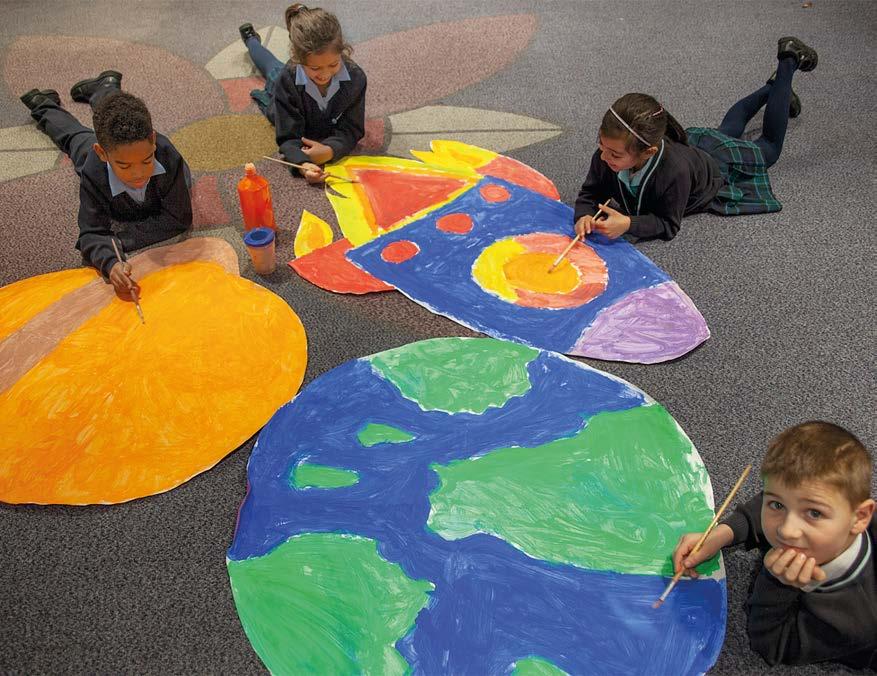
Looking up at the night sky can also help to boost emotional development in young children, improving their independence, patience and their self-esteem. It can also help improve concentration and focus as they learn to observe quietly, taking time and space to contemplate the world around them. Using special equipment to stargaze, like telescopes, also pulls children away from computer screens, brings them back to the natural world, as well as helping them to improve their fine
motor skills and hand-eye coordination as they look through the lens.
As schools, when we juggle the demands of the curriculum and make decisions on what to include and what to reduce, subjects which open up children’s minds should be high on our agenda. Stargazing can provide some wonderful food for thought and can transition across other subjects such as history, religious education and maths. For example, many children find it fascinating that the stars we are looking at are the same stars that amazing people throughout history have also enjoyed. Likewise, measuring distances from the Earth to the Moon and the distance of the sun and other planets in our solar system, can be mind-blowing for young children. Our year two children found stargazing particularly interesting at Christmas, especially the idea that the three wise men followed the same stars we see today, to find baby Jesus in the stable.
Looking up at the stars can help to inspire a raft of creative activities, such as creating and launching your own rockets. Our reception children have also been studying very simple

MANY CHILDREN FIND IT FASCINATING THAT THE STARS WE ARE LOOKING AT are the same stars that amazing people throughout history HAVE ALSO ENJOYED
maps of the night sky, looking at the various shapes and objects made by our stars. Older prep children can even use fun apps to plot the night sky and learn more about the various constellations. Taking the time to get outside and to look at a unified vocal point helps to build a sense of collaboration and togetherness. This creates a genuine emotional connection between the children, contributing to a positive mindset and feeling of team spirit.
Making stargazing more accessible to younger children really does enrich their learning opportunities and you don’t even need a telescope. Learning can be supported through modern technology and special apps which help make it appealing to a wider audience. As well as seeing stargazing as an integral part of the STEM curriculum, some schools, like mine, are also developing new co-curricular programmes with stargazing and astronomy clubs. Due to the popularity of stargazing in the prep school, we are also very excited to be opening our very own school observatory in 2023. The night sky may be more vast than we could ever imagine, but so is our children’s thirst for knowledge. As schools, we have a duty to nurture that.
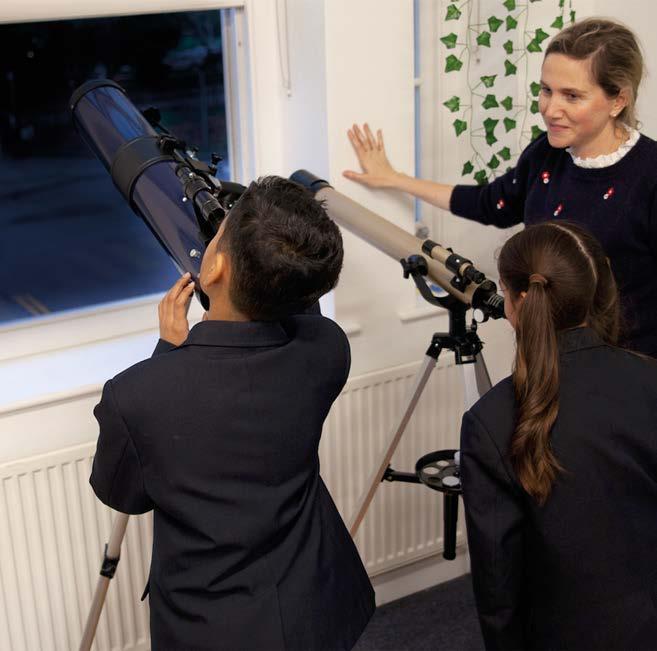
Stargazing encourages children to question the how and why of everything around them
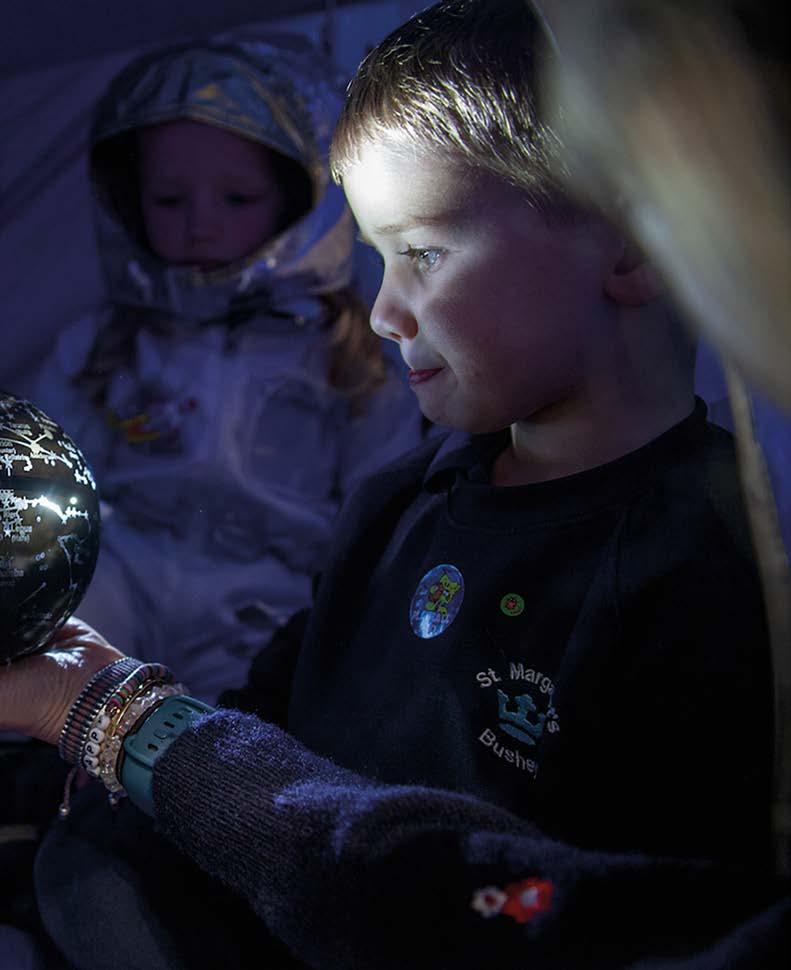
Five ways the night sky nurtures young minds
• Stargazing promotes wider discussion around the hows and the whys of our existence.
• As well as bolstering the STEM curriculum, it also transitions across multiple subjects like history, maths and religious education.
• It helps children to develop verbal reasoning, logic, vocabulary and literacy.
• It nurtures collaboration and togetherness through emotional connection and a unified perspective.
• Taking time to look up at the sky helps to focus young minds, boost concentration and inspire patience.
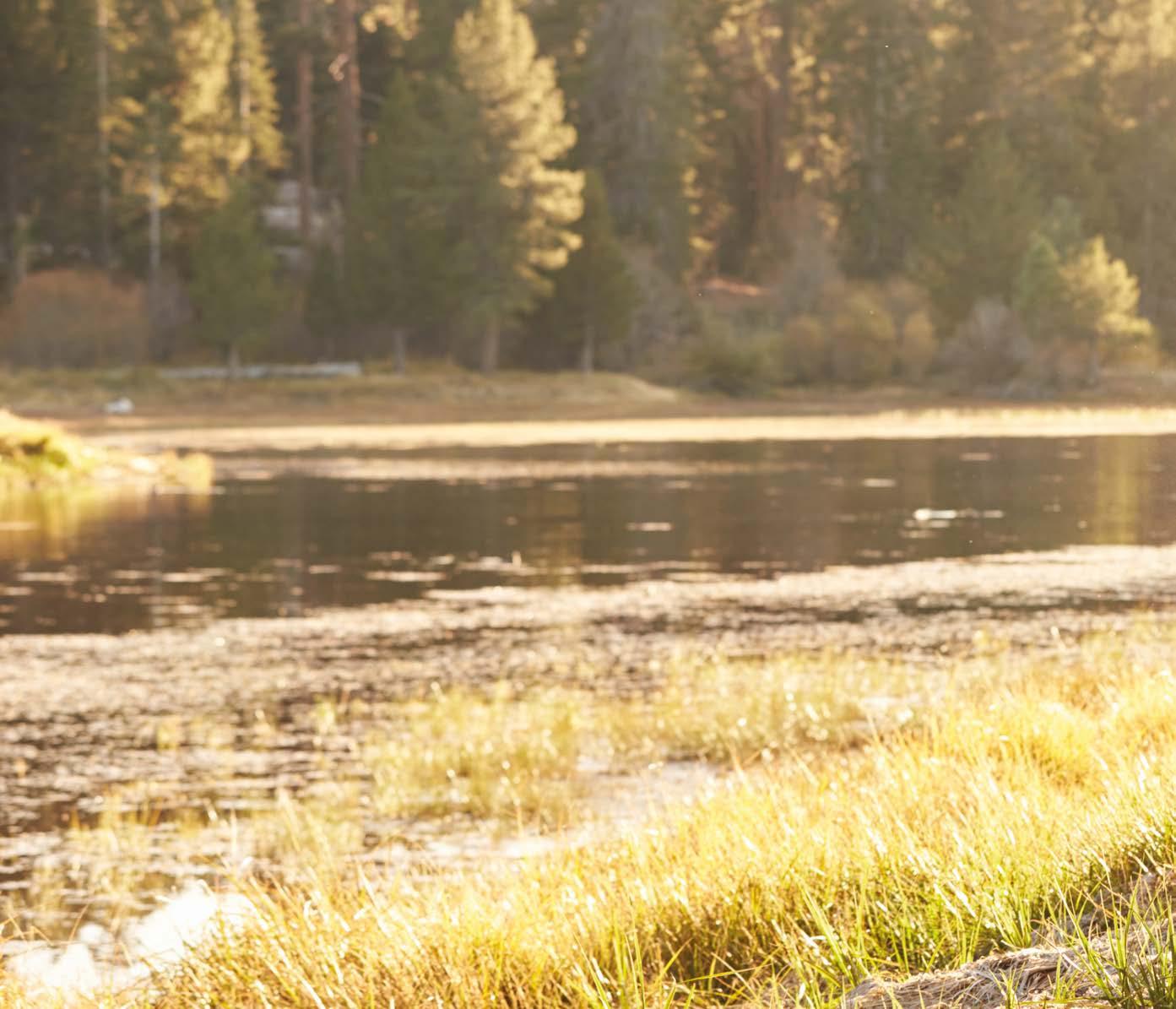
Tennis, gymnastics, swimming, violin lessons, rugby practice, maths club, even Mandarin. Some children’s lives are so busy that most adults would struggle to keep up. And behind every dizzying schedule is a parent rushing from one activity to the next, tutting at red lights and dishing out snacks in the car.
As parents it can sometimes feel like we are failing our children if we don’t sign them up to every available opportunity. So we enrol them in a multitude of classes that promise to develop their talents and bolster their chances of future success in life. And school holidays are no exception, with an endless checklist of enriching activities, intensives and residentials vying for our children’s participation.

HAVING INTERESTS OUTSIDE SCHOOL can play a useful role in self-esteem and SELF-DEVELOPMENT, BUT IT’S ALWAYS IMPORTANT TO GET THE BALANCE RIGHT

Of course, allowing children to have interests outside school can play a useful role in self-esteem and self-development, but it’s important to get the balance right. Sometimes, it’s a case of trusting your instinct and acknowledging when a rest might be more valuable than another trophy or certificate. What’s more, maybe, just maybe, our children could even benefit from a little old-fashioned boredom. After all, it was all the rage in the 80s.
While boredom might not look good on social media, that doesn’t mean it’s not important. “Some parents may believe that providing a full schedule to keep their children busy throughout the holidays and during down time will keep their minds active and give them life enriching skills and experiences,” says Matt Godfrey, Deputy Head at Downe House School in Berkshire. “But they are almost certainly wrong. If children can identify and select activities themselves, they will get so much more out of them. They will also develop creativity and original
thinking, they will learn from their mistakes, they will build selfesteem, and they will foster curiosity and initiative.”
Gus Lock, Headmaster at Haberdashers’ Boys’ School in Hertfordshire agrees. “As parents, we are desperate to provide everything that we can for our children; love, nourishment and constant stimulation, in the hope that this will enable them to flourish and thrive,” he says. “However, we are, with the very best intentions, in real danger of overproviding and harming our children with good intentions.”
But in the rush to keep up with the Toms, Richards and Harriets, it’s easy to overlook the luxury – and the importance – of time out. Unstructured time gives young minds the freedom to wander, which in turn gives rise to imagination, initiative and creativity.
Free time also allows children to decompress and to find that still, small voice of calm. “We need this space and should be worried about the consequences of denying it to young people,” explains Mr Lock.
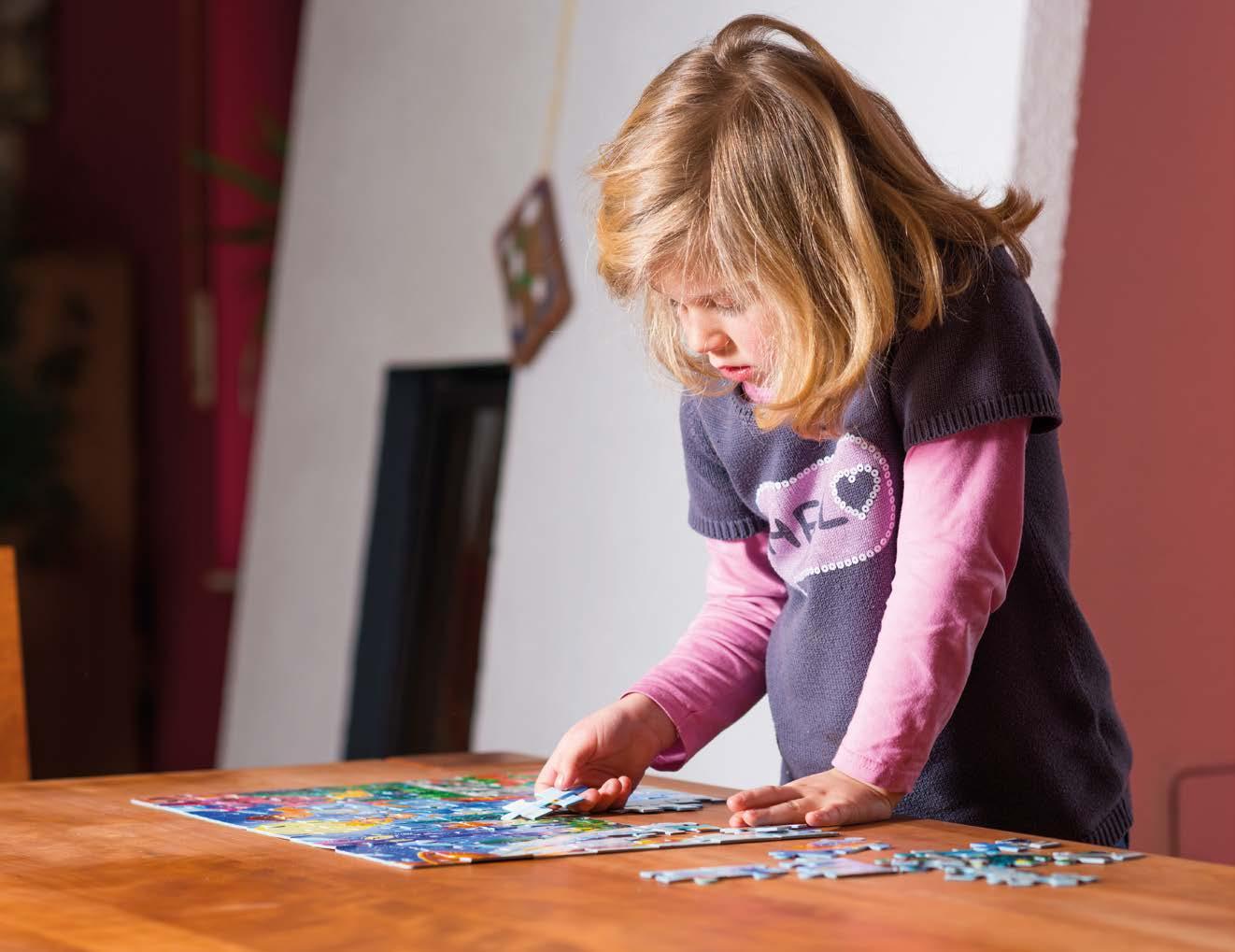
IT’S ESSENTIAL CHILDREN HAVE MOMENTS WHEN THEY ARE BORED AND PRACTISE entertaining themselves without recourse to CONSTANT DIGITAL STIMULATION




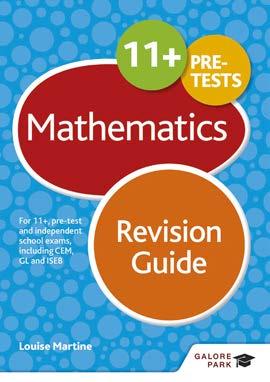


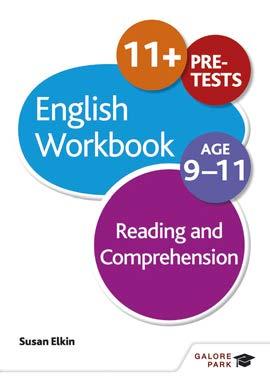


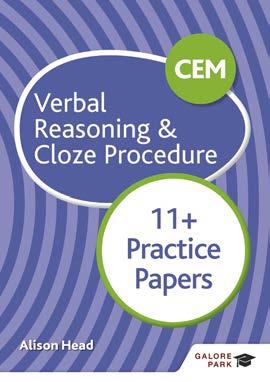

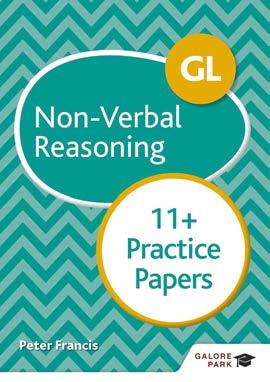


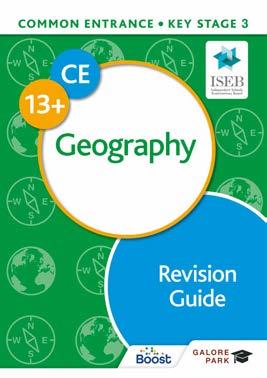


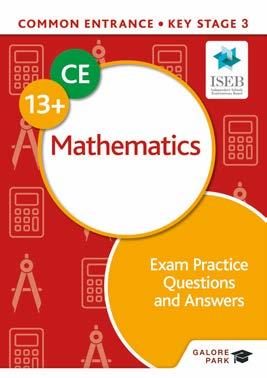


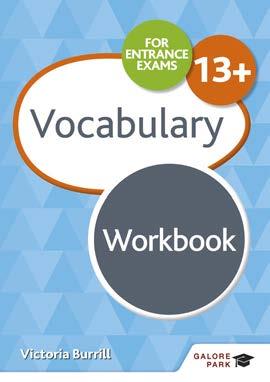


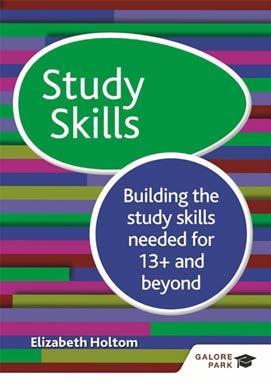



Parents often feel guilty if children complain of being bored, but remember unstructured time is not a ‘waste of time’ but an opportunity for children to grow, develop and have fun. Here are a few ideas…
• Go retro: before tablets and smartphones, there was Hopscotch, hide and seek, den building, and mudpies. These activities never get old – or boring.
• Get the ball rolling: physical activity doesn’t have to be structured or competitive. Fill a box with simple equipment – some balls, a hula hoop and a skipping rope – and let your children invent their own games.
• Be crafty: leave a pile of pens, paper and craft materials on a table. Resist the temptation to set a task, but leave children to their own devices.
• Let them help: involving children in chores teaches them valuable life skills and encourages them to take responsibility. Depending on their age, ask them to help with meal planning, cleaning, gardening and cooking. The results can be hugely rewarding for the whole family.
• Free their imagination: instead of sending children on a media course, or to stage school, try encouraging them to create their own film, podcast or show at home. This can be especially good for older children.
“Can we really ignore the fact that young people have never been more busy and engaged, and yet paradoxically have probably never been less happy? As parents, we need to know and believe that we do not have to fill our children’s time with every possible club, activity or playdate, and that they do not need to be constantly stimulated and entertained. In fact, it is essential that they are not.”
Part of the problem is that the current generation of children have no need to be bored. Even when there’s nothing exciting going on in their lives (or even when there is) they always have a screen to fall back on. Switching off has become about switching on. “Given the availability of incredible technological connectivity, be it to other people, to entertainment or to data, boredom should, many believe, be extinguished forever,” says Mr Lock. However, he believes it’s essential that children “have moments when they are simply bored and practise being alone with their thoughts or entertaining themselves without recourse to constant digital stimulation.”
There’s no denying that encouraging children to unplug can be a challenge, and that opting out of clubs and activities can feel like going against the grain of modern parenting. However, sometimes it really is a case of less is more.
Filling a child’s time can help them to develop new skills, but it also teaches them to rely on external stimuli. Whereas allowing them some free reign, gives them the chance to grow as independent, competent individuals, full of initiative. What’s more, it also gives them a muchneeded break.

IF A CHILD CAN IDENTIFY and select activities themselves THEY WILL GET SO MUCH MORE OUT OF THEM
It’s good to find activities which encourage children to unwind and have fun in their free timePHOTOGRAPHY: MONKEY BUSINESS IMAGES/SHUTTERSTOCK
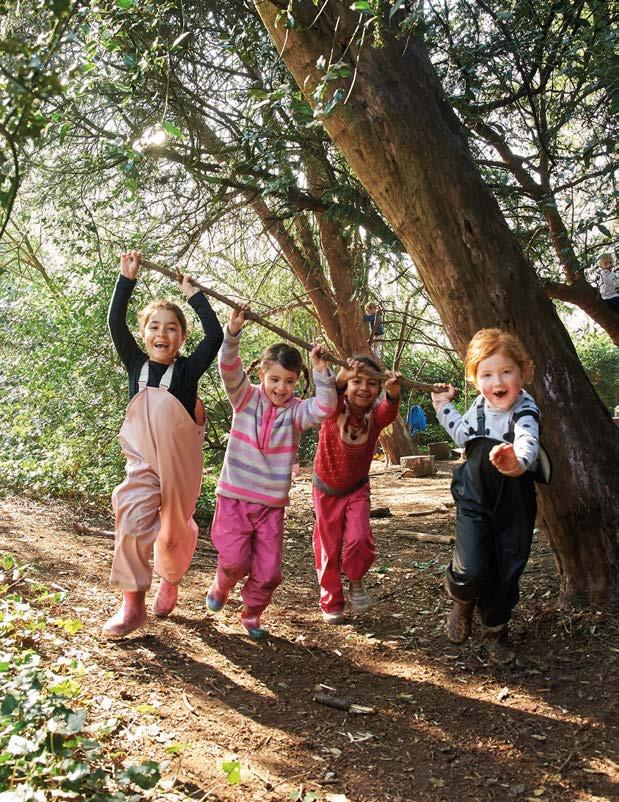
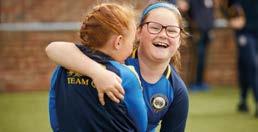
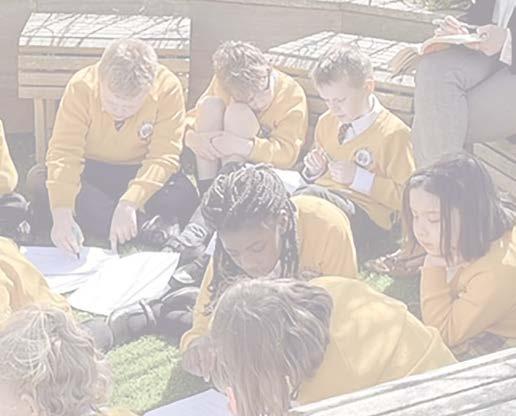






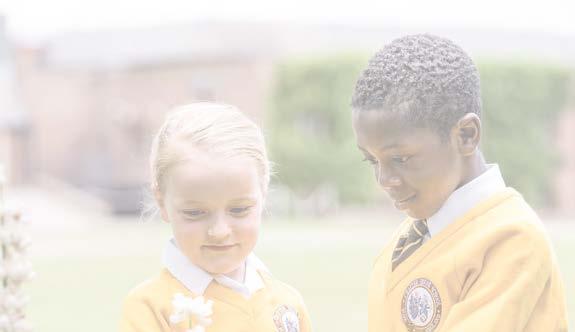




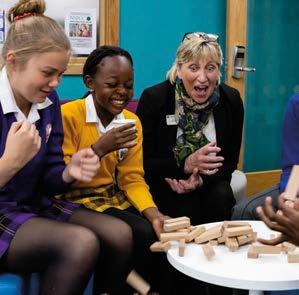


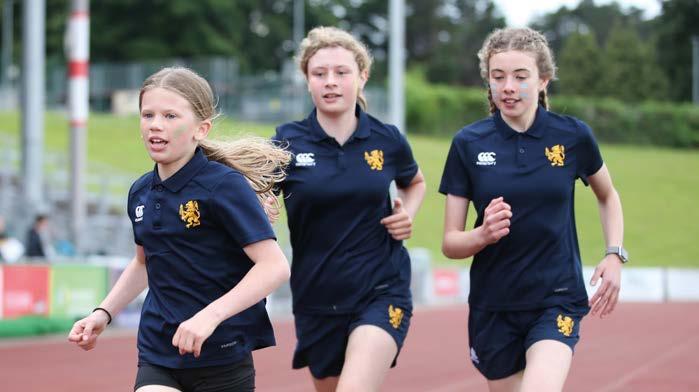
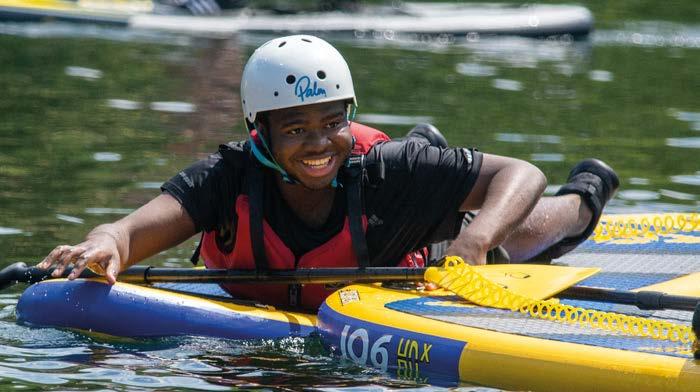


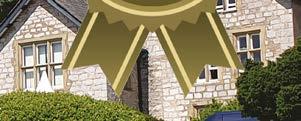
















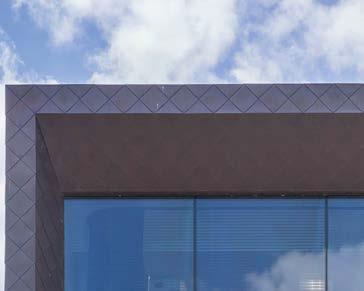


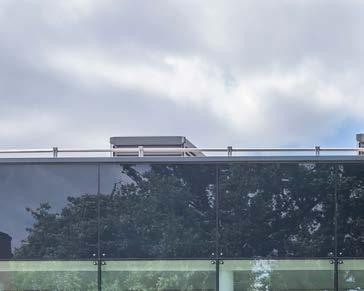
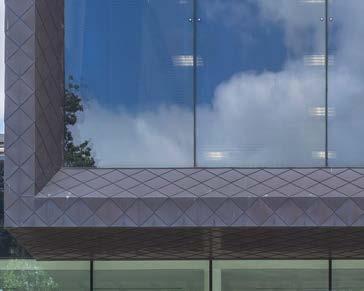
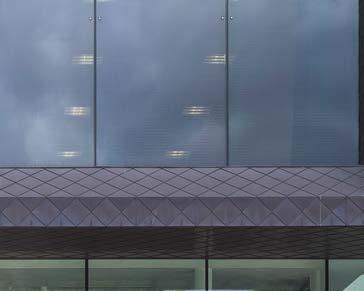
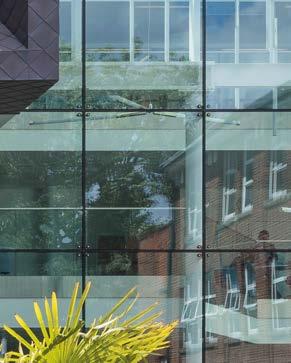
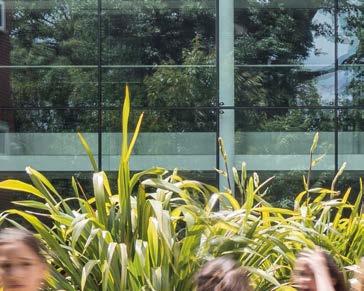

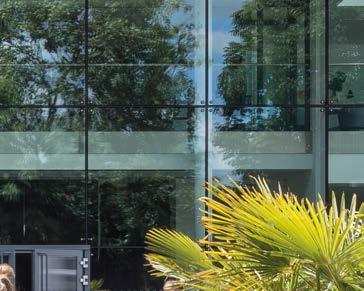

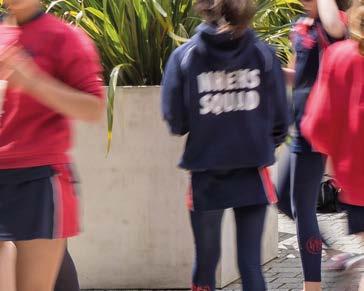
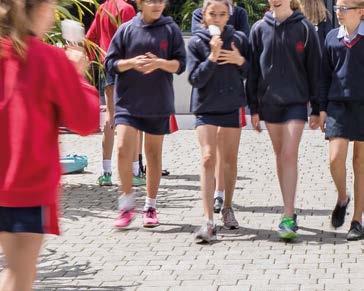




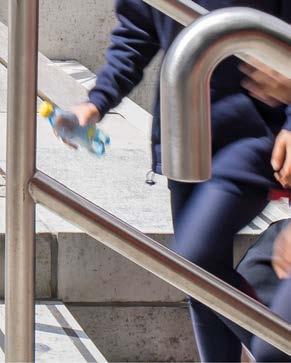

 Notting Hill & Ealing High GDST reassures parents it selects children who will fit in well
Notting Hill & Ealing High GDST reassures parents it selects children who will fit in well
Finding the right senior school for your child can be a daunting process for parents and a testing time for children.
Faced with a host of decisions, it is easy to become confused about where, when and how to even begin.
With most independent senior schools switching to an ISEB (Independent Schools Examinations Board) pre-test and school assessment, rather than the traditional Common Entrance exam, it’s more important than ever that prep schools are able to advise parents.
Broomwood Hall, in South West London, is a prep for girls aged eight to 13. Head Louisa McCafferty explains that the assessment process is no longer focused on year eight.
“In the last five years, lots of schools have stopped using Common Entrance (CE) as an entrance exam,” she says. “So, regardless of their pathway, 90 per cent of our pupils will be sitting assessments in year six. People now are more focused on a cognitive ability test (CAT) or something that can be standardised, because that data usually gives them almost enough information to make decisions on the academic side of the assessment process.”
Mrs McCafferty said parents should not concentrate on what they perceive the best school to be. “The reality is that it all comes
down to choosing the right school for your child,” she says. “If they need to have so much tutoring and prep just to get in, is it going to be the right environment?”
Have the conversations early
In Hampshire, at co-ed prep Highfield and Brookham Schools, which typically feed to up to 27 different schools, Head Suzannah Cryer agrees the process should always be childfocused. She holds her first ‘preliminary, very casual conversations’ about senior schools with year five parents. “Initially, we talk about considerations such as geography, co-ed or single sex, boarding or day and any other thoughts to open the dialogue,” she says.
“Some parents do come in with a set idea, and you can give an opinion on that, based on what you see. I definitely don’t want to send them to schools where their child is continually bumping along the bottom because it’s not good for anybody.”
She advises parents to draw up an initial shortlist of five potential schools and visit them. “Then we have a further conversation along the lines of ‘we really like these three’ and we can go from there”.
At most prep schools, the head or another senior staff member will have similar meetings with parents about initial research and how to progress from there with a view to meeting registration deadlines.
The final registration date often falls in the autumn term of year six, explains Mrs McCafferty at Broomwood Hall, so senior schools have time to apply for references and prepare their testing to take place between November and January. “Some schools are bringing their registration deadlines forward to year five,” she says. “So, it is really important for parents to check on those key dates. But don’t make decisions too early, because what
Elizabeth Ivens explains how to navigate the senior school admissions process, how soon you should start looking and what to prepare for
DON’T CONCENTRATE ON WHAT YOU PERCEIVE THE BEST SCHOOL TO BE –it all comes down to choosing THE RIGHT SCHOOL FOR YOUR CHILD
s
might have been a great idea when they were very little might now feel like the wrong place.”
She also warns that while, boarding has “a good strong chance of getting a place”, applying for London day schools can be unpredictable. “London day is a totally different ballgame and it has become harder and harder,” she says. With many boarding schools opening up day options in the last few years, she advises parents to also consider looking outside London.
However, Lauren Whitaker-Smith, Head of Admissions at Notting Hill & Ealing High School (NHEHS) GDST says that while all independent selective schools in London are over-subscribed, parents should not be put off. “It is generally the case that the right school finds the right child,” she says. “We are very experienced in selecting the children we feel will fit in well here.”
The school is part of the London 11+ Consortium, which has a shared entrance
exam across its 14 member schools, which allows children to apply for more schools without taking too many entrance exams. Along with many desirable London day schools, NHEHS can only offer ‘scheduled open days’ rather than individual tours.
“An open day is the best way to find out about the school,” explained Ms WhitakerSmith. “It is really important to hear what the headteacher has to say about the school and his ambitions and vision for it.
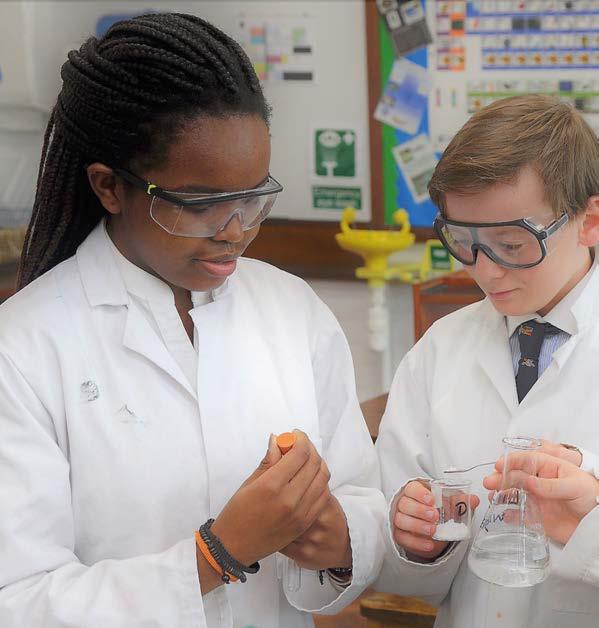
“There is more to children than a set of exam marks. We think it is extremely important to interview all our applicants. We want to make sure that the children we offer places to will thrive in this environment and be happy here.”
At Stowe in Buckinghamshire, Group Director of Marketing and Admissions Tori Roddy has a decade’s experience of overseeing the admissions process. She suggests parents should get their shortlist down to three and then register with those schools.
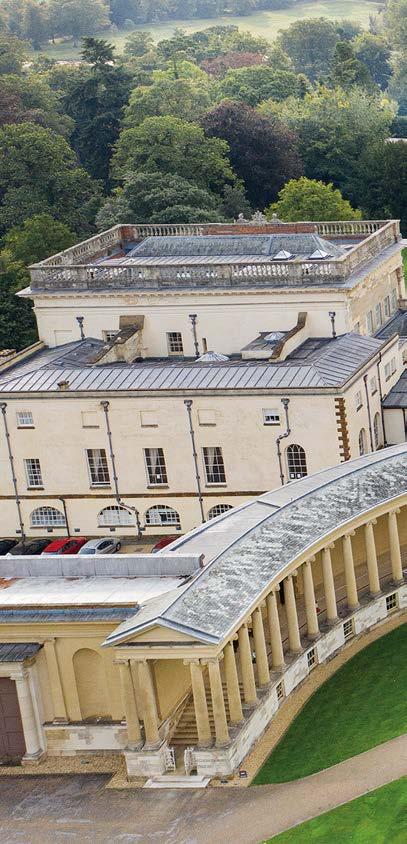
The reality is that things change so quickly, there is no such thing as set timings. However, the following should serve as a guide:
• In years four or five start to think about what would suit you and your child. Talk to your school – be realistic.
• Spend year five looking at as many as possible of the schools you are considering; work out what really matters to you and your child and - by the end of the year – have a shortlist.
• Take note of each school’s cut-off dates for applications – they are not the same! Some close very early, for instance at the end of year five, while others are more relaxed.
• However many schools are on the shortlist, the application processes will vary, and each one may be slightly different so make sure you double check. For example, not all schools use the ISEB pre-test – some are developing and using their own or take other factors into account.
• Tell your school what’s on your shortlist – and listen to what they say. You know what you want, but the school will know whether that’s realistic or not.
• Above all, talk to and trust your school! The teachers are the ones who communicate with senior schools all the time and should be able to guide you through what is something of a minefield.
“Don’t waste your money on registering with ve or six schools,” she says. “We recommend parents come along with their children to an open morning in year ve so the parents can get a bit of a brief introduction and children can do some activities and have some fun.”
With just under a quarter of the 930 children on the September 2023 roll set to be day pupils, the school runs parallel admissions processes – “it’s the same process a year apart” – for prospective day pupils in year six and for prospective boarders in year seven.


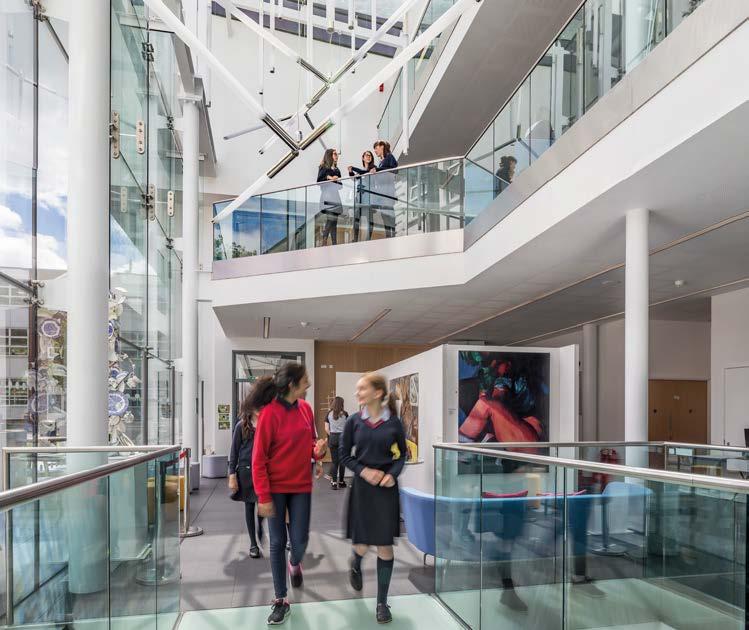

AN OPEN DAY IS THE BEST WAY TO FIND OUT ABOUT A SCHOOL – it is important to hear what the headteacher has to say about the school AND HIS AMBITIONS AND VISIONS FOR IT
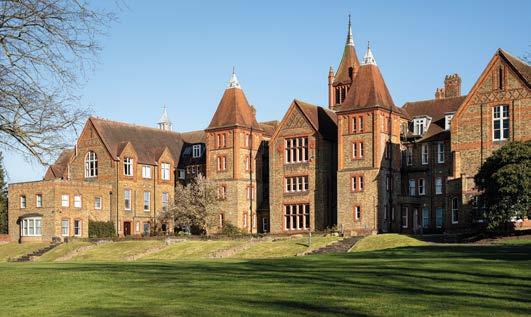
We looked at a number of senior schools around the county for Jack, including state senior schools, but we found them to be too ‘catchall’ – either very academic or very sporty, or we did not live near enough to the school postcode to qualify for admission. We looked at a number of independent senior schools and St Margaret’s really opened its arms to us. The prospectus was based on the curriculum and resources and on the open day we had a tour with the headteacher where we were able to really see the school and ask questions. Prior to o ers being made, the school held a workshop for prospective parents.
St Margaret’s was very friendly and also gave us the opportunity to apply for a music scholarship. If I have one word of advice for other parents embarking on this journey, it is that you have to be prepared to invest time in it: find out what time of
Up to 45 prep schools in an average year will send pupils to Stowe, with all of them expected to sit the ISEB pre-test, except those within the Stowe Group. “We handle day applications rst because that is slightly more competitive,” says Mrs Roddy. “We also feel waiting until year seven for boarders makes the situation clearer.”
Keep your options open Stowe interviews all applicants and “makes unconditional o ers on their school report, pre-test result, CAT test from current schools and their interview”.

While expecting them to nish their Common Entrance course if they are taking it, Mrs Roddy says the school will still accept applicants to whom it has made an o er, even if they fail it. “We believe we have enough data based on their school reports, CAT scores and their pre-test to make a decision. Lots of schools have moved that way.”
At Stowe, parents are kept rmly on the school’s radar through a Next Steps process,



year the school’s admissions process takes place and be organised and start looking at schools a year before these are held. I missed one school’s admissions deadline by a day and there was no opportunity for an extension! Phone your target schools
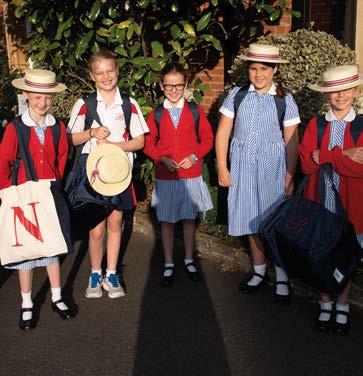
and, once you have compiled a shortlist of say four or five, you can whittle those down further, after you have been to their open days. Secondly, know your child. Schools are more selective than you think! If your child is not super academic and you can’t see them doing their homework as soon as they are back from school, for example, then they are not going to thrive in a super academic environment. With regards to involving your child in the process, it was only once I felt happy about a school, that I involved Jack. Take them to visit two or three schools to see if they feel excited about it; get their thoughts on the schools.
which reminds them of key dates once they have submitted their details to the school.


And if anything goes wrong along the way or parents miss deadlines, there is always a solution, reassures Mrs McCa erty at Broomwood Hall. “It is a competitive market but schools will guide you,” she says. “Keep it positive, have a range of options and accept things can go wrong. It’s not the end of the world. If you’re unsure at any stage, you can go back to your prep school for more help.
“It’s also a myth that if you miss the year six window, you are scuppered. Even in year eight there is movement and there are places to be had at any given point.”
BE PREPARED TO INVEST TIME IN THIS JOURNEY: find out when the school’s admission process takes place AND START LOOKING A YEAR BEFORE THEY’RE HELD

This North London all-through girls’ school is known for its focus on girls enjoying success, without undue pressure
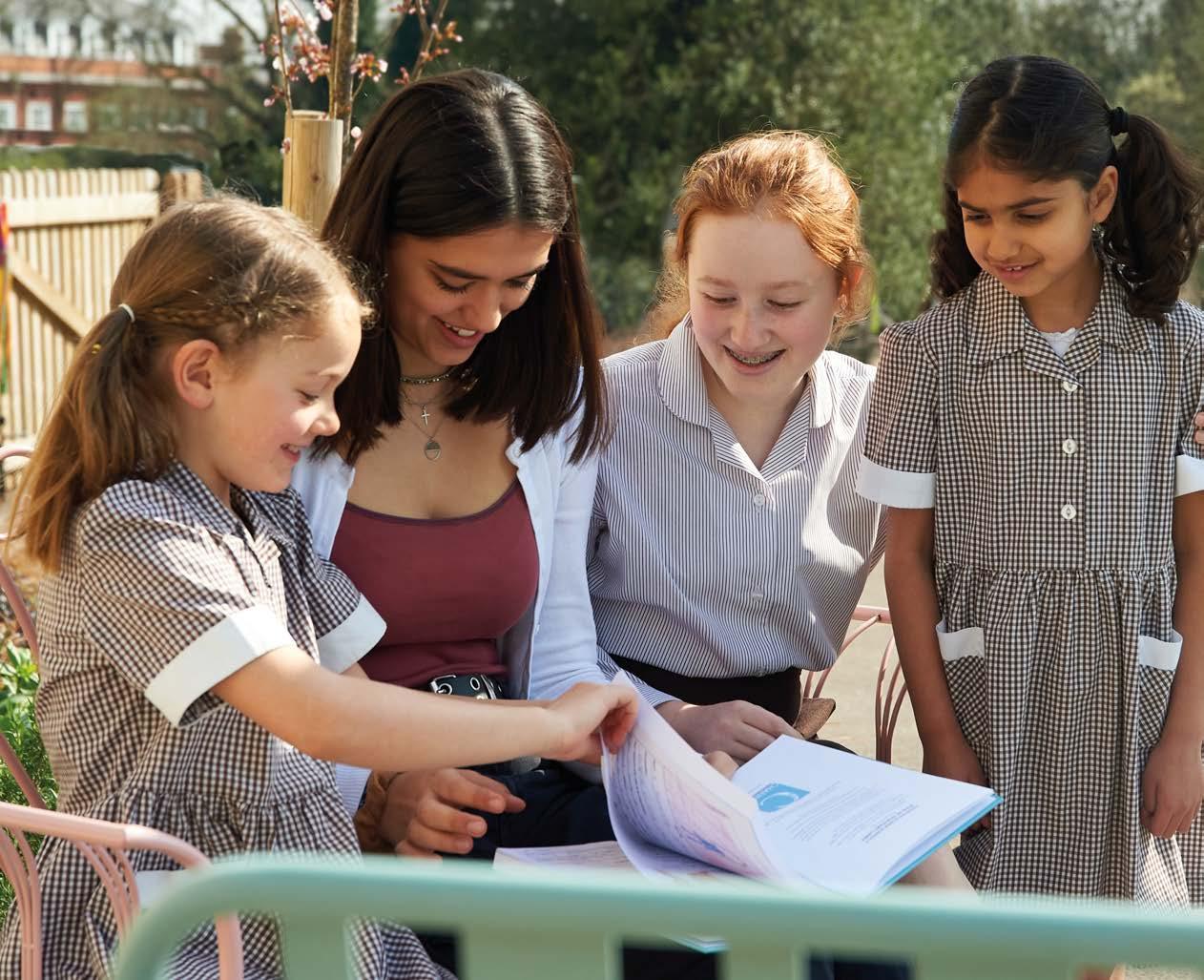
Nearly a third of Channing students went on to study STEM-related subjects at university last September. Maths is our most popular A-level subject and, as well as Robotics and Coding Clubs, there is even a Dissection Club open to pupils in years seven and eight!

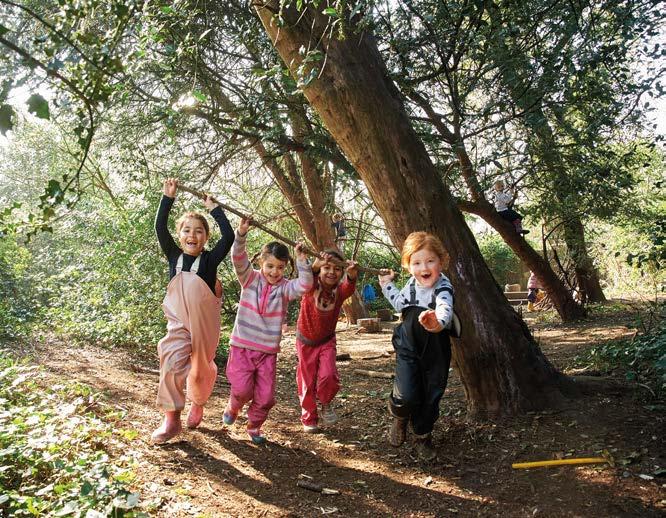
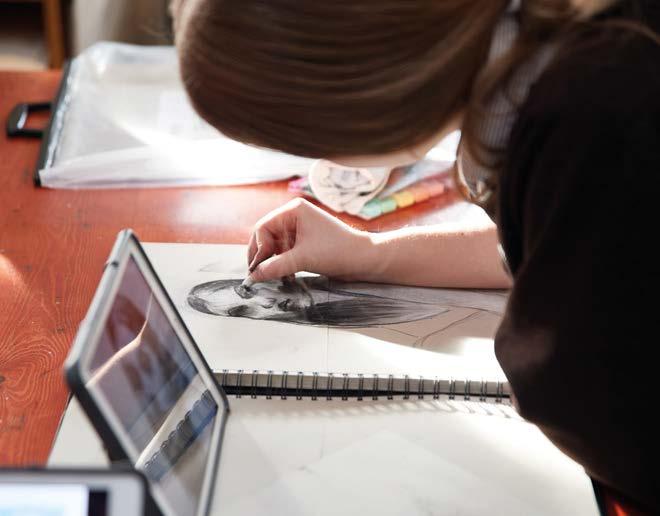
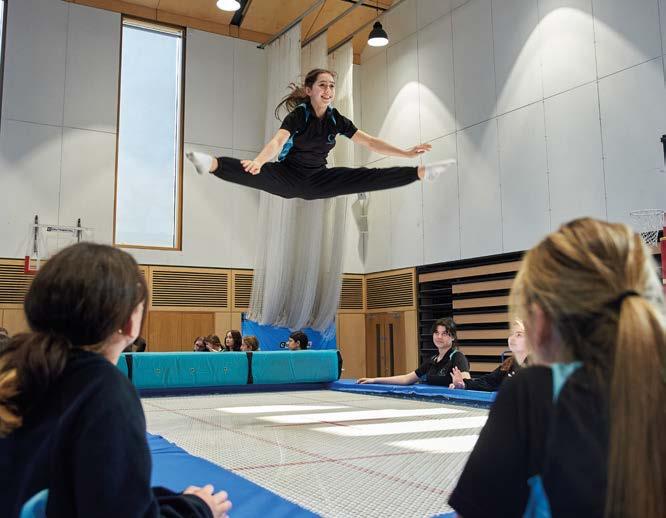
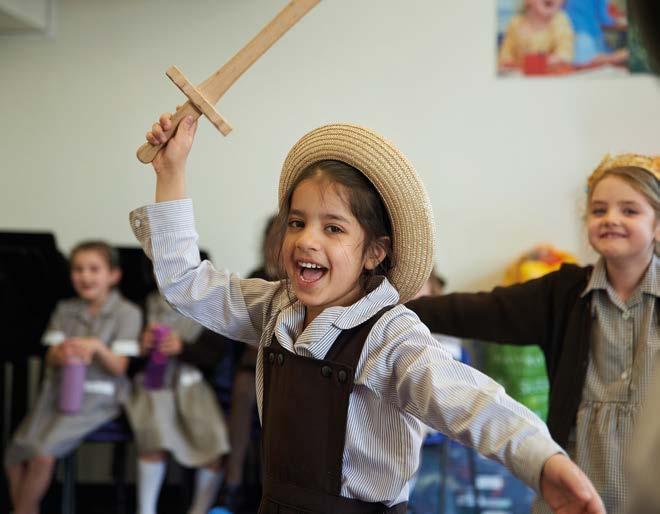
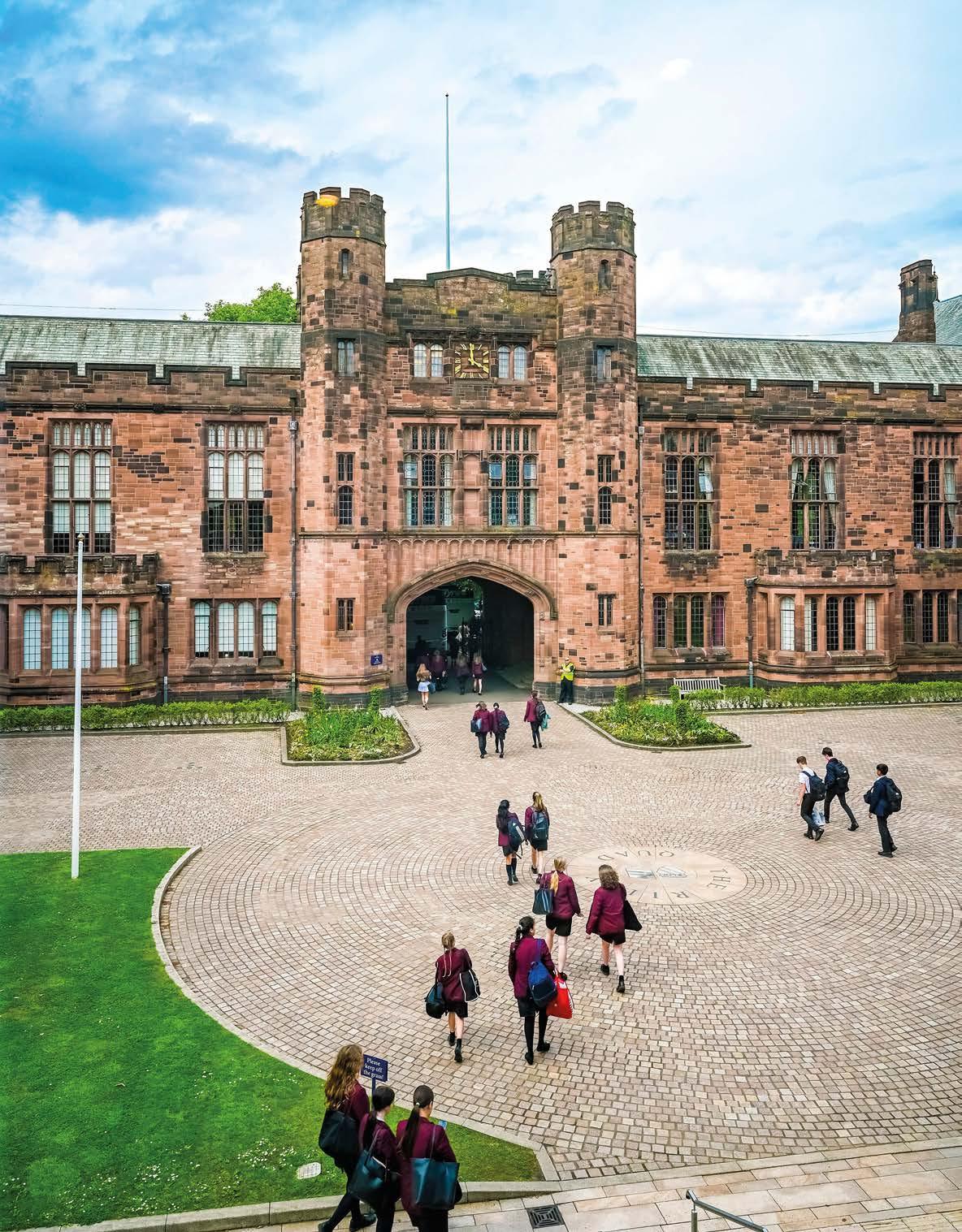
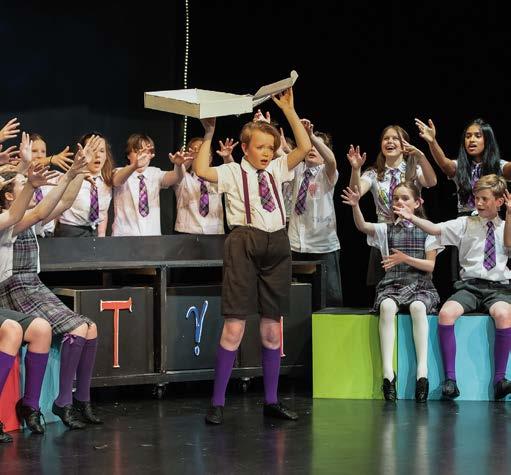
The false dichotomy between fee paying and state schools is a modern and unhelpful divide. For nearly 80 years both have been part of the educational landscape and, before that, the most common type of school over the centuries was one where some pupils paid fees and some were supported by the philanthropy of others. We have got caught up in a narrative of privilege and private provision, where too many people think their local independent school is not for them. Yet the real question parents should ask is whether the school is right for their child and then explore how that might be made possible. For those who cannot afford fees, the answer to this question is to research what bursary provision the school has to offer and how to apply to access it.
Following their tradition of charitable education and being as inclusive as possible for those who live in the local area, many independent schools have bursary provision and for some it funds a significant fraction of the pupils. This allows them to pay some or even all of the fees for your child to attend the school. The number of bursaries available and the systems for a particular school will differ, but there are some general pointers to share and every school will have the detail on its website.
In most cases, a bursary is a means-tested scholarship. The ‘scholarship’ part means the first hurdle to being eligible for a bursary will be to do well in the entrance process for that school. This is likely to involve some entrance tests but will also include an interview. Schools will be looking for potential, not the finished article because they are about to educate your child – they don’t expect that to have been done already. The tests will be looking at aptitude and thinking skills, not
prior knowledge. What matters is how well you can learn, not what you have learned, and this is what schools will be looking for. If in doubt, have a go rather than rule yourself out because you think everyone else is better prepared. It is worth studying a past test to see what it looks like, but it is not a case of revising facts.
The interview will also probe potential and is likely to look for character traits: is your child curious? Do they have empathy with others? Can they commit and see things through? Schools know they are interviewing young children and will ask questions in the right context. There are no trick questions and the best advice is to speak and to be themselves; they just want to see that spark of a joy of learning and someone who will add to school life through their personality. They will also be trying to select pupils who, when they join the adult world after school, will give back and add real value to society through the education they have had. s
IF YOU ARE AWARDED A BURSARY, THE SCHOOL will ensure all pupils thrive AND THAT BEING THERE WORKS FOR YOUR CHILD
Once eligible for a bursary, how much you get is usually means-tested on your income. Some will get all the fees paid and some will get part of them paid. These assessments use information that will be readily available from tax forms, pay slips or benefit statements, nothing you will have to find specially. It may be the school does this assessment itself or it might use an external agency. It is likely interviewers will meet with you as parents. Again, being honest with the school about what you can and can’t afford is best. If your income rises or falls, bursaries will mirror that, because they are usually assessed every year.
Many applying for bursaries worry about fitting in at the school, imagining it is not a place for people like them. All I can do is reassure you that if you are awarded a bursary, the school is absolutely for people like you. It will ensure all pupils thrive and that being there works for you and your child. The school knows people come from many different backgrounds and this mixing is a real strength of a diverse school.
At Bolton School, bursaries really matter to us and the community they produce is central to our ethos and purpose. We have been involved in bursary philanthropy for three decades and have recently launched a separate charity called the Bolton School Bursary Foundation to take that work to its next stage. One in five pupils in our senior schools have a bursary; seven per cent have a full bursary, which is larger than the free school meal figure in most grammar schools. We really are widely inclusive. By 2030, one in three pupils will have some funding support.
So, don’t rule yourself out. If you think your child might thrive in the local independent school, have a close look at the bursary scheme. It might be a life-changing choice.
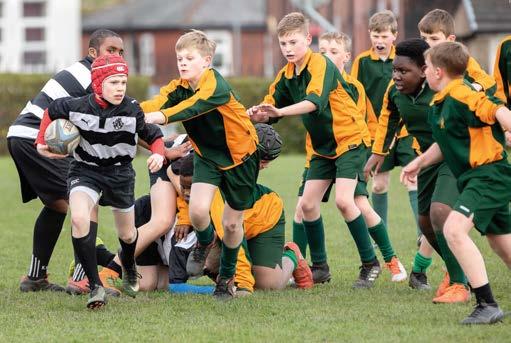
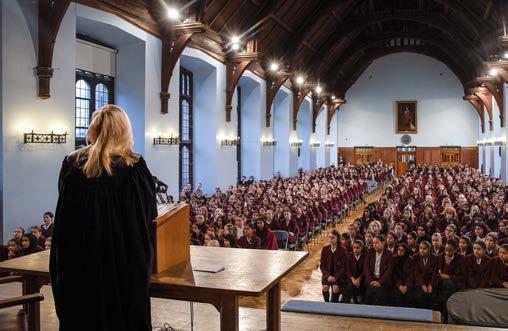

THEY WILL BE TRYING TO SELECT PUPILS WHO, WHEN THEY JOIN THE ADULT WORLD AFTER SCHOOL, will give back and add value to society THROUGH THE EDUCATION THEY HAD
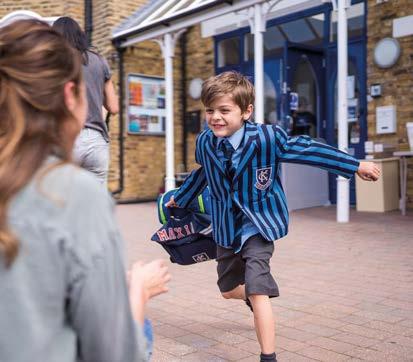
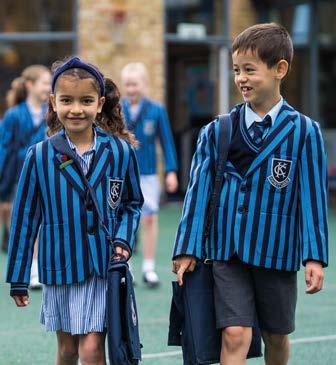



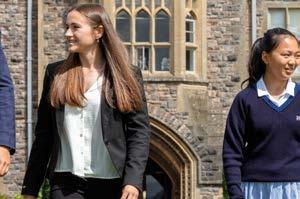
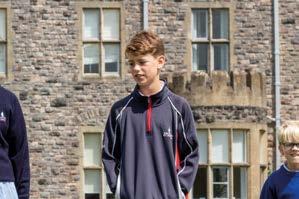
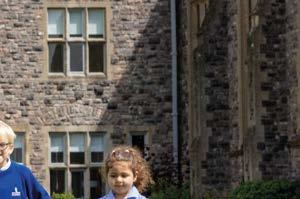

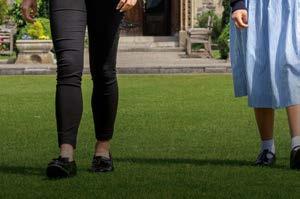
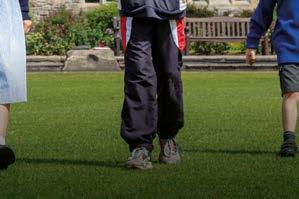
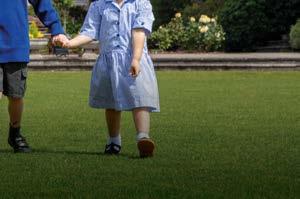









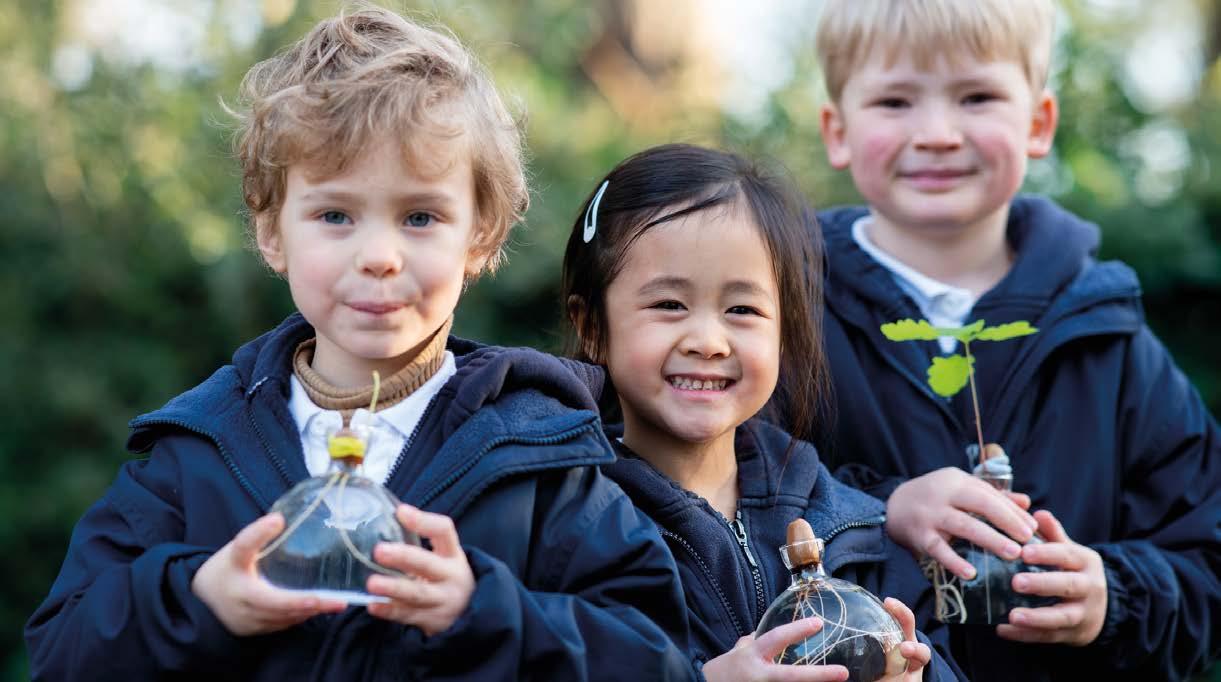
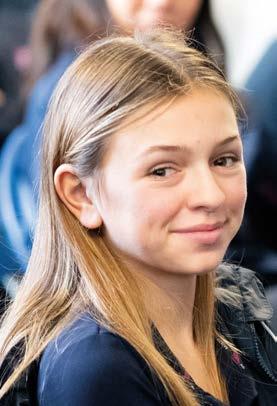
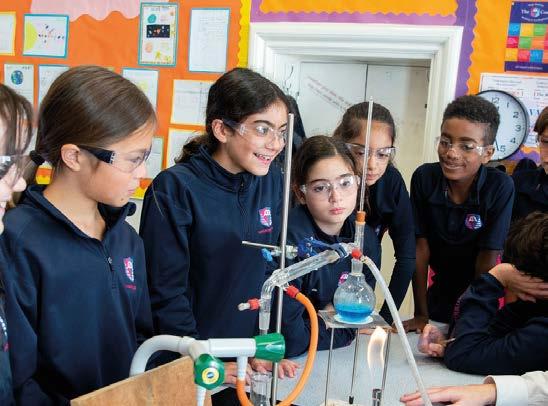
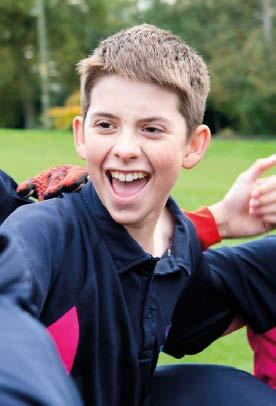


When did you apply for your sixth form bursary?
I applied for my bursary in my final year of GCSEs, at the beginning of year 11. The bursary was a part of my application for the school’s sixth form, where I had decided I wanted to sit my A-levels.
Can you give me a timeline of the application stage? It was a small part of the application process. After I had been shown
around and was confident I still wanted to apply, the application forms were submitted. Once interviews had been completed and I was made an offer, financial information was given to the school in a filled-in application form and accompanied with supporting evidence.
How much did you know about the bursaries on offer at Bolton School?
I was quite familiar with the bursary because I knew, as Bolton School was a private school, it would be the only way I could attend. The application for this was a small part, after I had proved to the school that I was worthy of a place by means
of a test and a series of interviews. My application for the bursary was made after my place was confirmed so there was some worry that, due to my financial background, even though I had a place, I might not be able to attend if the full bursary funding I required couldn’t be offered to me.
Thankfully, this wasn’t the case and, once financial documentation was submitted, the school was more than happy to fund me on a full bursary for my two years of sixth form.
Did you have the bursary provision for the entirety of your sixth form years?
Yes. Between the two years there was a need to submit
financial documentation, just to prove that my circumstances had remained the same.
Did you apply for a bursary to more than one school?
I applied for a bursary only at Bolton School because all my other sixth form and college choices were state schools.
Which members of staff knew that you had a bursary and did your peers know you had one?
Some members of staff, for example my heads of year and senior members, were aware of my bursary. Most teachers and pupils were unaware of this unless it was made clear by myself
that I was on a bursary. The interesting thing was that a high percentage of my peers were also helped in some way by the bursary scheme, so having that assistance was never something that was frowned upon.
Was that your decision or school policy?
For the reasons that I’ve stated, it was entirely my decision who knew I had a bursary and who didn’t. But the question was never asked and no pressure was put on me to tell others about my financial background. If I chose to, it was something I could open up about to others with whom I felt comfortable, including staff.
What qualities do you have to have to consider applying for a bursary?
I believe the main quality is having a desire to learn and get wholeheartedly involved with school life. I feel like this needs to be considered when applying because most bursaries are offered on the basis of academic achievement. If you have a desire to achieve and are committed to working hard, it will inevitably happen and this is the best way to ensure you can fulfil your time here, and to say thank you for being given the opportunity.
What financial checks does the school make?
They need details of annual income and bank statements.
A HIGH PERCENTAGE of my peers were also helped in some way BY THE BURSARY SCHEME, SO HAVING THAT ASSISTANCE WAS NEVER SOMETHING THAT WAS FROWNED UPON
Kathryn Thomson, Head of Newcastle-under-Lyme School in Staffordshire writes about the prep school’s new bespoke outdoor pursuits programme that aims to instil self-belief, provide adventure and encourage ambition, taking learning outside to a whole new level

W“hen can we go on our next adventure?” One of the best questions I have ever been asked by a pupil and one I’m only too happy to answer. Why did they ask it? Because of our new, bespoke outdoor pursuits programme, Prep Adventures. A bridge between Forest School and the Duke of Edinburgh’s Award scheme, Prep Adventures combines the three elements of land, water and air, emulating aspects of the Combined Cadet Force with an emphasis on values such as leadership and responsibility.
Joining the school 12 months ago, I was bowled over by the extensive facilities and opportunities on offer, specifically for our prep-aged pupils. Benefitting from being a through two-18 school, our youngest pupils spend time in the on-site pool, DT labs and new sports complex. The school was exploring how senior spaces could be utilised for the benefit of all pupils and I was thrilled that Forest School was already up and running for pre-school and reception pupils in our lovely woodland area just 100 metres from their classrooms. I was also impressed by our CCF programme and Duke of Edinburgh Award’s Scheme in the senior school, both of which were highly valued, popular and run with great s
A BRIDGE BETWEEN Forest School and the Duke of Edinburgh’s Award, Prep Adventures combines THE THREE ELEMENTS OF LAND, WATER AND AIR


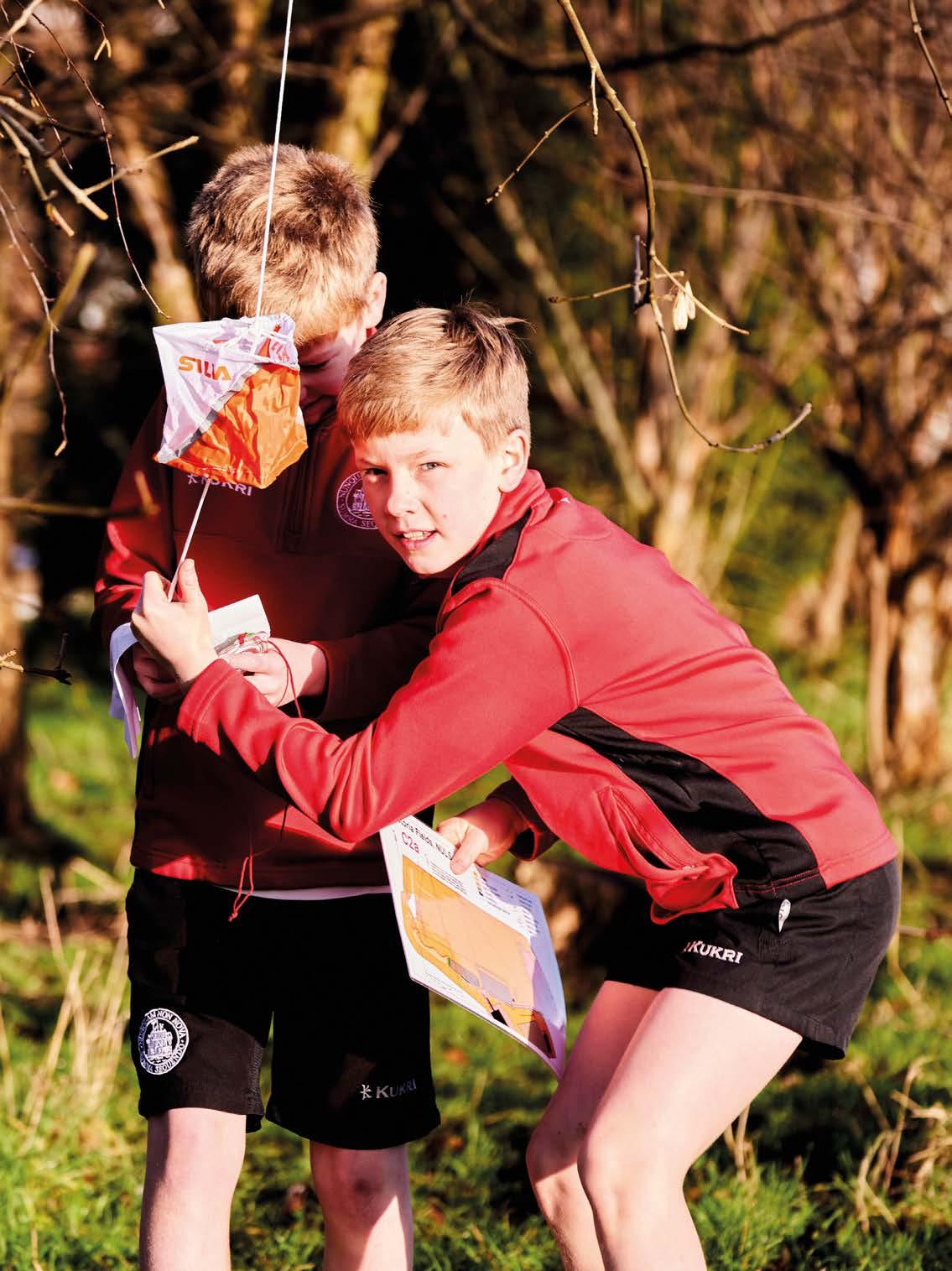
success by experienced and qualified mountain and expedition leaders. I saw an opportunity to combine all of these for our younger pupils, and Prep Adventures was borne.
The journey of expedition stretches across our prep school where our pupils will face opportunity and challenge across the three key elements of the programme: land, water and air. Extending the work already happening in CCF and the Duke of Edinburgh’s Award Scheme while building on the skills harnessed through Forest School, we want to provide adventure, stimulate ambition and instil self-belief. Prep Adventures has been carefully mapped to provide compulsory and optional challenges. As children progress through the year groups the activities they encounter expand their skills, take them out of their comfort zone and reward them for their growth. Each year the programme will culminate in a celebration of achievement recognising the practical skills pupils have developed, their personal growth and positive contributions to charity and global environmental concerns.
“I think Prep Adventures is great,” says Mr Mullen a parent of two children at NULS Prep. “Getting involved with something similar to Duke of Edinburgh as young as this is a massive attraction for my family and I know my children will love it.”
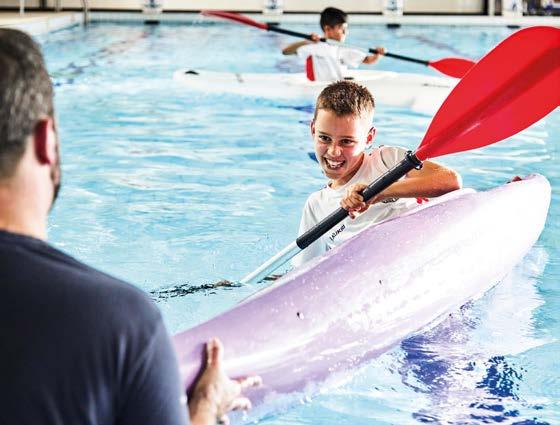
Our pupils will develop grit and resilience through an enjoyment of outdoor learning while fostering a love of the environment in which we live. They will learn more about themselves and work towards an understanding of what they may be capable of achieving in life. Their personalities will shine and they will appreciate and build on their own strengths. Vast amounts of research shows children are stimulated by the outdoors and experience an increase in their self-belief, confidence, learning capacity, enthusiasm, communication and problem-solving skills. Leaving behind the classroom sets learning in a different context for children with benefits for their physical and mental health.

VAST AMOUNTS OF RESEARCH SHOWS children are stimulated by the outdoors and experience an increase in their SELF-BELIEF AND CONFIDENCE
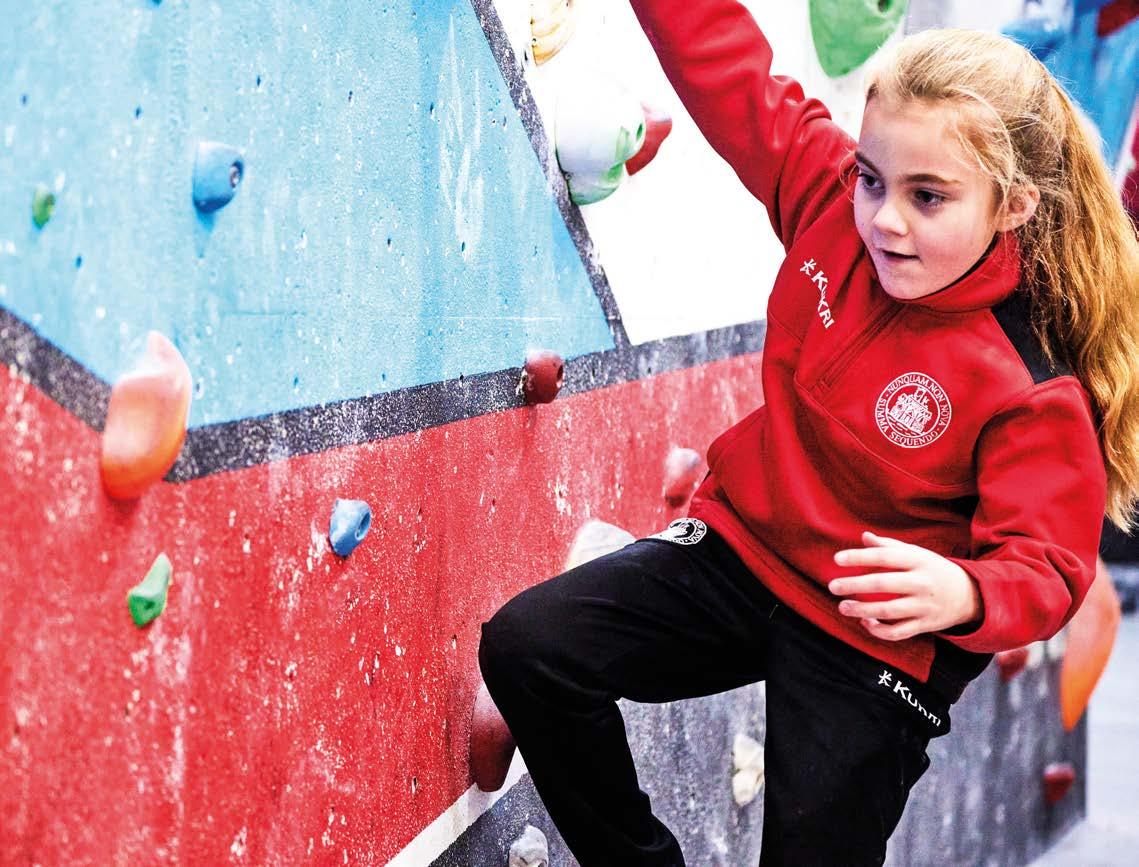
Fortuitously, the school owns a three-hectare woodland just a short journey from the school campus. The woodland, known locally as ‘Eckers Wood’ was gifted to the school by a former pupil who wanted to leave a legacy for the school that would be used for the benefit of the pupils and the scout group. The woodland is rich in opportunity; home to Ash, Elm, Sycamore and Oak trees and is ripe for coppicing for weaving, fire making and to further develop its already healthy biodiversity. Dave Watson, renowned bushcraft and survival skills expert, visited the site and enthused: “It’s a really exciting prospect and has the potential to be a premier facility in England.” It soon became clear that our school had a unique opportunity provided by possessing the perfect ingredients to develop a distinct programme, utilising our facilities, in-house expertise and aspirations, to provide the very best educational experience for our prep pupils.
Prep Adventures is designed specifically for pupils aged seven to 11 years old. The programme offers compulsory and optional opportunities for our adventurers to develop their skill set on land, water and air. Activities on land could be cycling proficiency and road safety, hiking expeditions and orienteering, archery, rock climbing, fishing, bushcraft and first aid. In water, pupils will gain lifesaving awards, try their hand at water sports such as stand-up paddle boarding, kayaking, canoeing, snorkelling and more. Through the element of air pupils may engineer and fly kites and drones, study aeronautical engineering, plummet down zip wires and take on low and high ropes courses. Some of the challenges encountered are to raise money for our annually selected school charity, some will be funded by entrepreneurial skills our pupils will call upon, but all will require cooperation and pupil responsibility. The programme is integrated into our existing prep curriculum, linking with subjects such as geography, science, art, maths and PSHE, with further field days and residential visits elevating the experience to another level.
On a cold, rainy day last November, year three set out for their first expedition in the Peak District. They walked with purpose, found out about local legends at a historic site, foraged for food learning what can and can’t be eaten, made a campfire and got very muddy. On our return to school, a number of highly charged pupils had one important question: “When can we go on our next adventure?”
It would seem their first taste of Prep Adventures was a huge success! Much more is planned for this term…
ASK THE EXPERTS
how can schools reinforce a sense of fun and belonging in their students again?

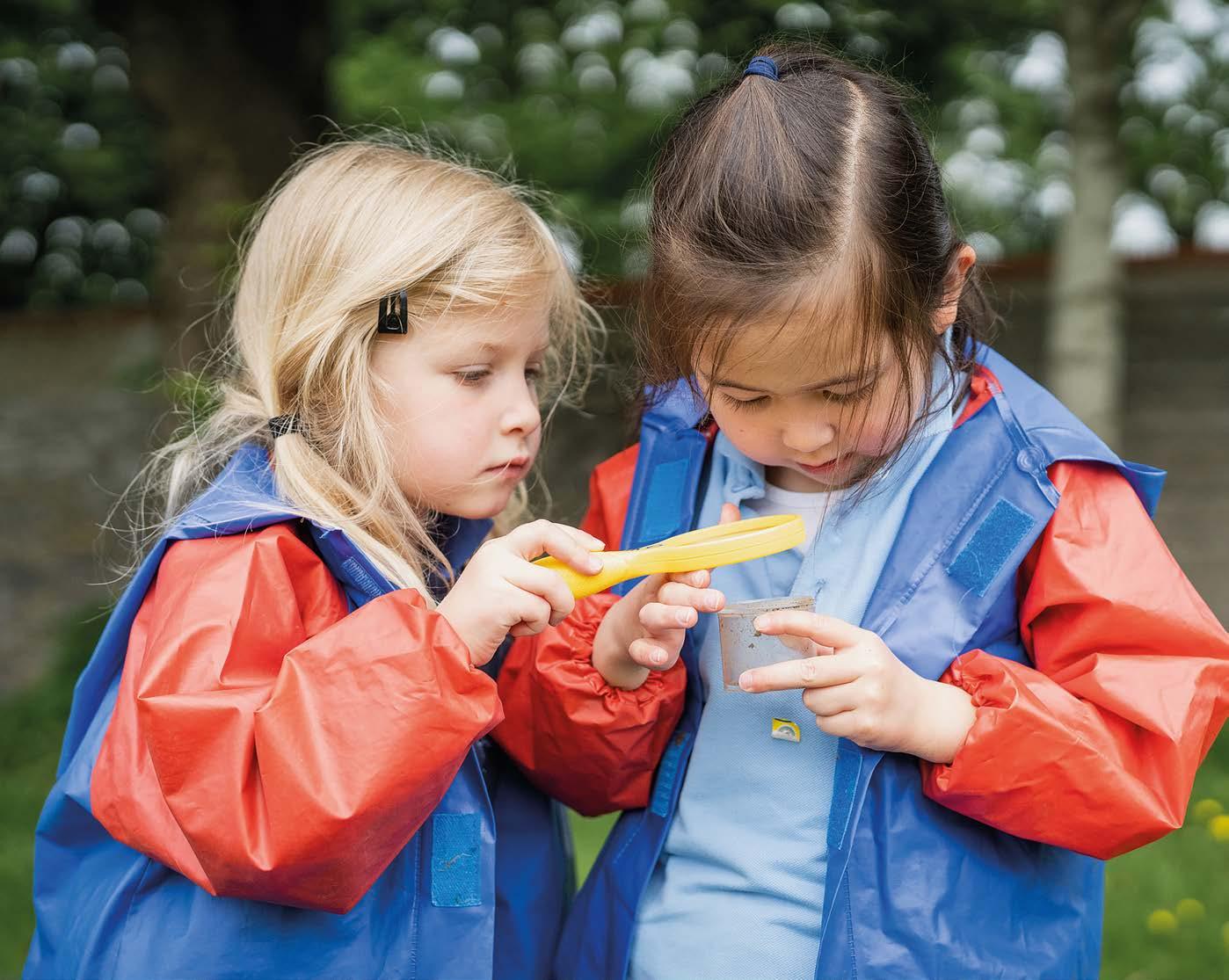
We ask five headteachers for their advice
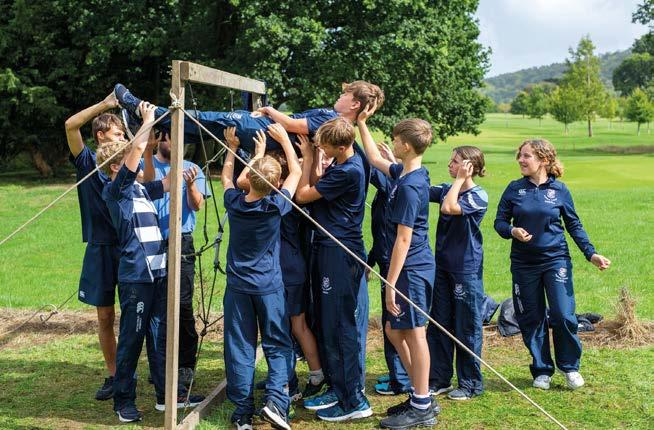


How strongly a pupil feels that they belong at our school will shape their life in a broader sense. We nd that students with a strong sense of school belonging really value learning and are highly motivated.
We encourage positive relationships with teachers and non-academic sta . We’ve created a positive peer culture through, for example, the ‘buddy bench’ in the junior school playground and a mentor scheme where sixth formers form friendships with pupils in lower year groups. is has proven to have an enormous positive e ect on younger pupils’ sense of belonging and con dence.
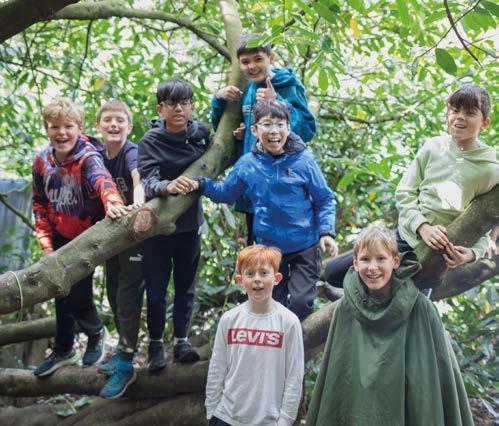
e expectations of behaviour also encourage a sense of belonging, and they’re as important as social and emotional skills, all of which are taught in academic and extracurricular activities.
We don’t forget the parents in this: when they value education and respect the school culture, they’re more likely to have a child with a sense of school belonging. Parents are invited to many school events, such as the annual House Supper, which is also attended by pupils and teachers.
Richard Backhouse, Berkhamsted Schools Group, Herts

We are (collectively and collaboratively) nding a new normal, which includes the best of the old and the best of the new. Last year we tiptoed back into large-scale gatherings, and held the largest Prize Day in the school’s history; we went back to face-to-face teaching and retained much of our digital innovation; we returned to the exam hall and renewed our commitments to a breadth of education which had been di cult for two years. At the heart of our identity is a commitment to the ‘both/ and’ of education: both high levels of ambition and excellence and a breadth of adventure and endeavour.
As a community, not just a school, we particularly enjoyed the interaction and interdependence of parents, pupils and sta . e events where parts of the community interact more fully than is possible in dayto-day life have assumed much greater importance, and many of them are being led by pupils.
Seaford’s philosophy is ‘love to learn’ and the word ‘love’ re ects the pastoral support, warmth and friendliness of our community. Our culture focuses on the individual and life at Seaford is about achieving your personal best; this ethos gives our students a sense of belonging and allows them to have the con dence to achieve both inside and outside the classroom.
At the beginning of the year, we focus on this sense of belonging and fun with induction events designed to allow students to learn what we value in our culture – they get to know each other and have fun.
Feeling heard is essential to feeling you belong. We have student councils (including sport, eco-councils, boarding councils and charity councils). Students’ ideas and suggestions are actioned, recent examples
include a request for a new Dungeons & Dragons club, while a request for enriched personal development experiences has led to wellbeing workshops on nutrition, breathing and yoga, as well as make-up and how to dress for working in business.
Our house competitions include music and sports events, as well as a Bake O , giving students a sense of camaraderie as well as being fun. Students love trips to the theatre, trips that are relevant to their academic subjects and our boarders enjoy fun activities: pumpkin carving, Christmas-house decorating, making biscuits for the Christmas tree, as well as regular trips to the cinema.

Making the transition back into school activities a er so much disruption over the last two years has been a huge challenge faced by teachers and pupils alike. I’m proud of the way our teaching sta at Rydal Penrhos approached this issue, focusing on the individual and ensuring that short- and long-term goals were met academically, socially and through various extracurricular activities.
Having a sense of belonging has formed a key component of this at Rydal Penrhos. House spirit is back in full swing; allowing pupils to take the lead in organising events, as well as having a say in school matters daily, further

enhanced this at the best possible time. For our pupils to thrive, it must be a collective approach. Easing parent concerns while focusing on the wellbeing of each child under our care, coupled with an instant return to routine, has been the making of everyone. And it’s been truly wonderful to witness.
Playing a meaningful role in a community is a great source of personal happiness and wellbeing. At Sydenham High School, we recognise that our sense of purpose and pride is enhanced by actively participating in our community and caring about the welfare of other sta and pupils.
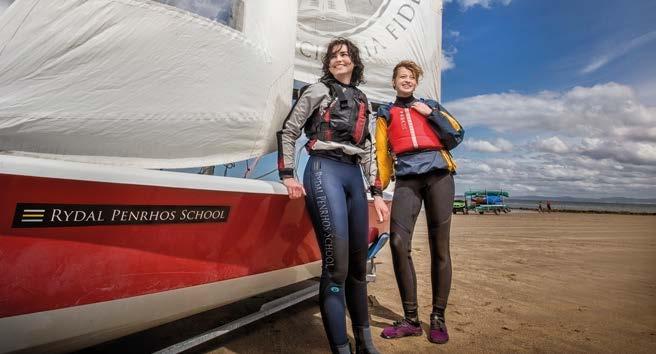
Our girls and sta give back and get involved – volunteering at care homes, at our Phab Club (enabling disabled and non-disabled people to get together), through outreach programmes at primary schools, and within our lively house events, where sixth formers enjoy mentoring and connecting with our younger girls.
Our biannual Body, Mind and Soul days provide great rejuvenation and learning through fun, with enriching activities for all, such as stage combat, creative photography, cookery, Python coding, dance, yoga and much more; there’s a tremendous energy and spirit of friendship. Our student voice remains strong, with fortnightly round table discussions, sharing feedback and working together to bring about change.

WE ARE COLLECTIVELY AND COLLABORATIVELY finding a new normal, THE BEST OF THE OLD AND THE NEWWellbeing always takes precedence at Rydal Penrhos
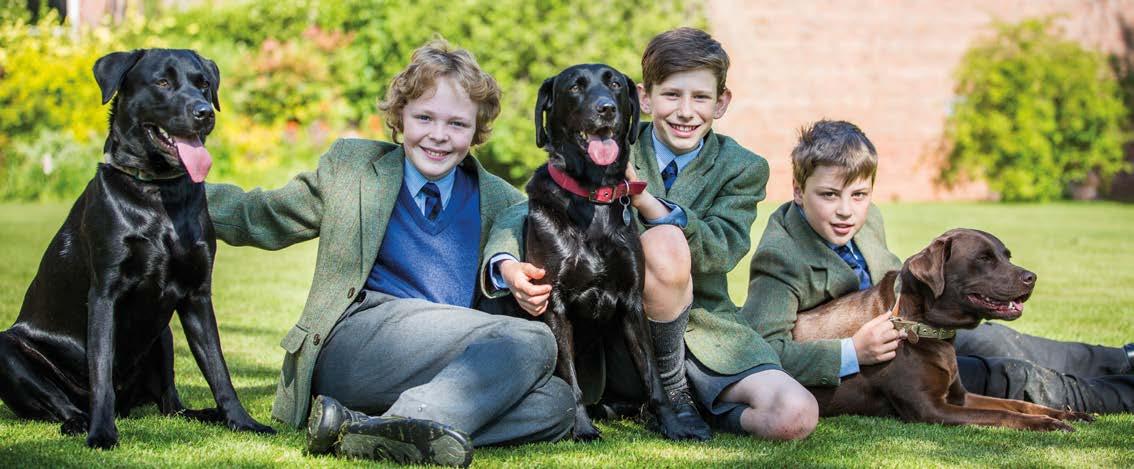

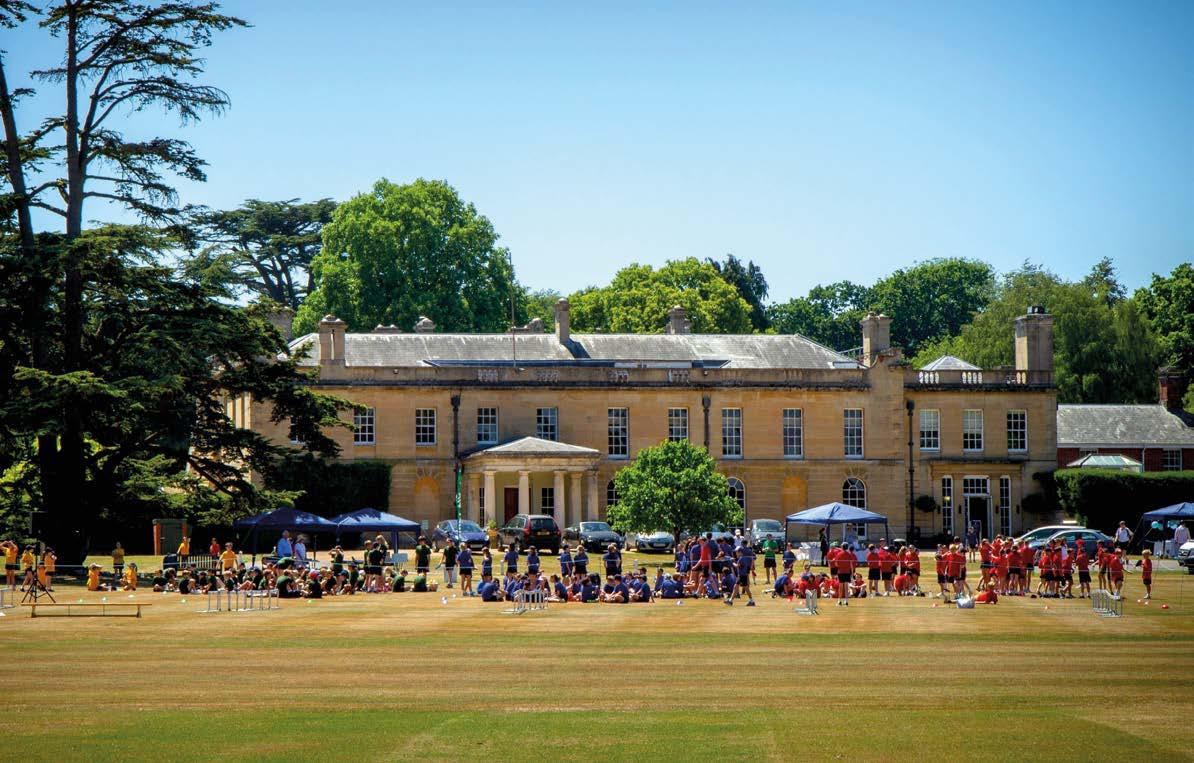

The partnership work at Blundell’s School in Devon is broad and inclusive and sees pupils taking part in projects with local schools, charities and community groups, writes
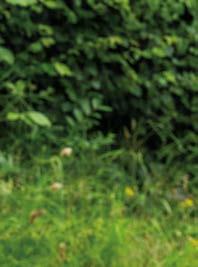
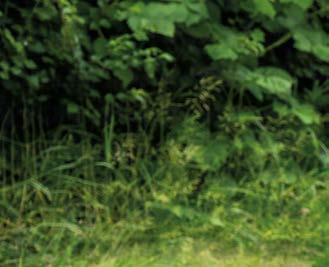
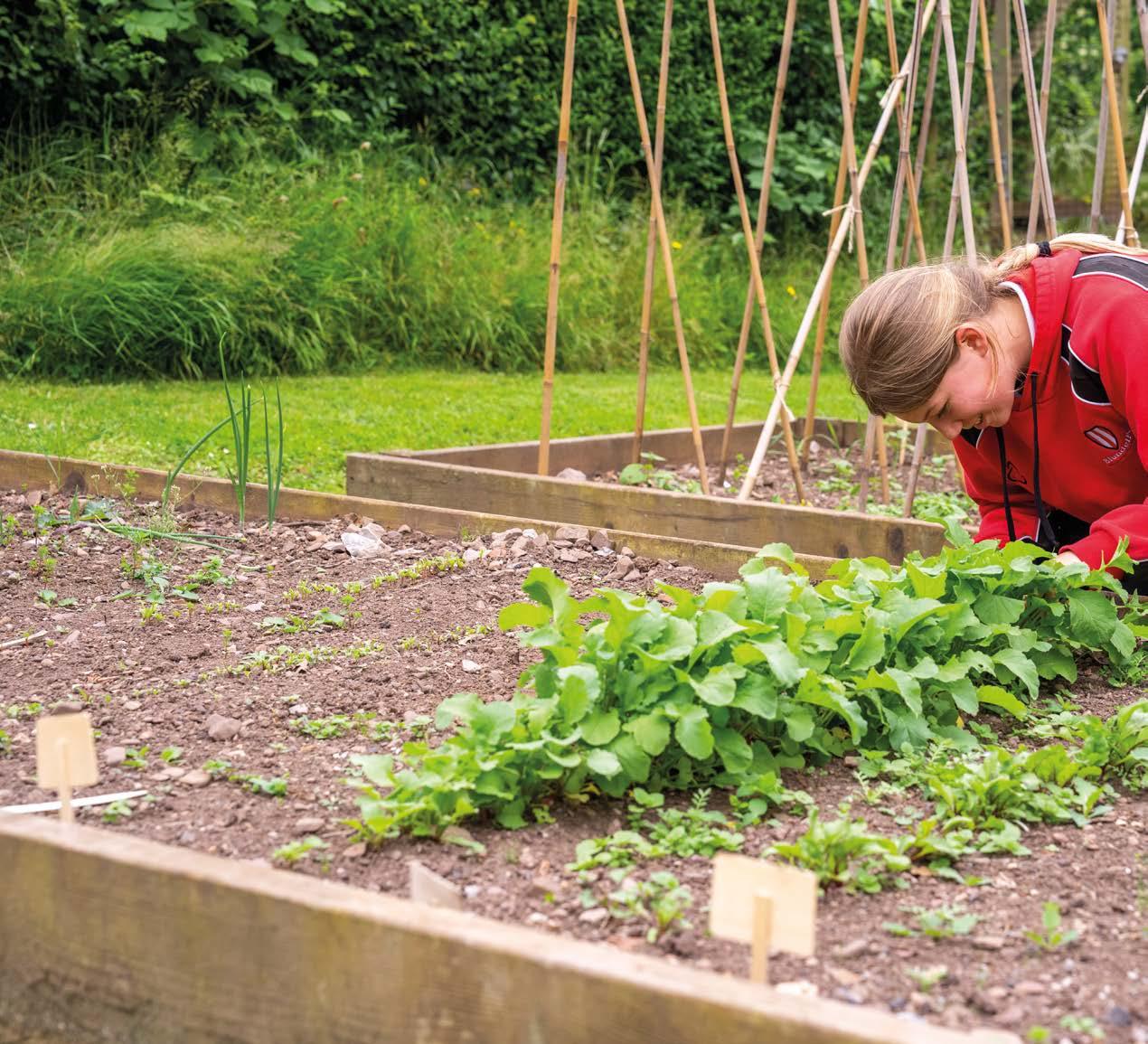 Charlie Olive, Director of Community Partnerships
Charlie Olive, Director of Community Partnerships
Working in partnership is central to the social responsibility of Blundellians.
Our Community Partnerships programme runs throughout the year, and offers all our pupils exciting opportunities to take part in work which will have a real, positive and sustainable impact on everyone involved.
We have an excellent relationship with the Tiverton Town Council and pupils from our Community Action Teams attend regular council meetings and give the councillors updates about Blundell’s and our Community Partnerships programme. We are also developing partnerships with local organisations such as Tiverton Rotary Club to support their various causes.
The School Charity Committee raises thousands each year for local charities such as CHAT (Churches Housing Action Team), Hospiscare and Little Heroes and also supports the Bhambayi Project in South Africa and Ukrainian Appeal.
Our Music in the Community group perform regularly at residential care homes and work with primary schools.
At Blundell’s we know how important it is for young people to experience life outside the classroom, so we organise Spring Field Day, which brings a host of benefits and rewards for those involved, often leading to further volunteering in the future to support others.

Most recently, year 12 took part in activities which supported local projects, organisations and charities, with various groups working throughout the day at Tiverton Adventure Playground, Wilcombe Primary School, Tiverton Pannier Market, Tiverton Hospital Wildlife Garden, CHAT and helping at a workshop which supported local adults learning English as an additional language.
Our pupils have forged a real and sustainable link with Tiverton High School over the last year, with representatives from both meeting regularly to break down barriers and develop an honest understanding of each other’s school. We have hosted High School pupils for ice creams and BBQs in the Blundell’s Garden as well as inviting them to our senior school play and the Blun dell’s in Space music concert. We have also run activity days with different primary schools, whose pupils have had morning sessions on heart dissections, evolution, classification, electricity and sound workshops, led by our A-level scientists. After lunch, games have been hosted by a boarding house, then sport run by our sports leaders.
We also organise regular inter-school tournaments and host a weekly netball club for local children and adults.
The Blundell’s Garden is a beautiful space developed by our pupils for all to enjoy and learn about horticulture, wildlife, sustainability and the environment. At our termly open days we host local schools for
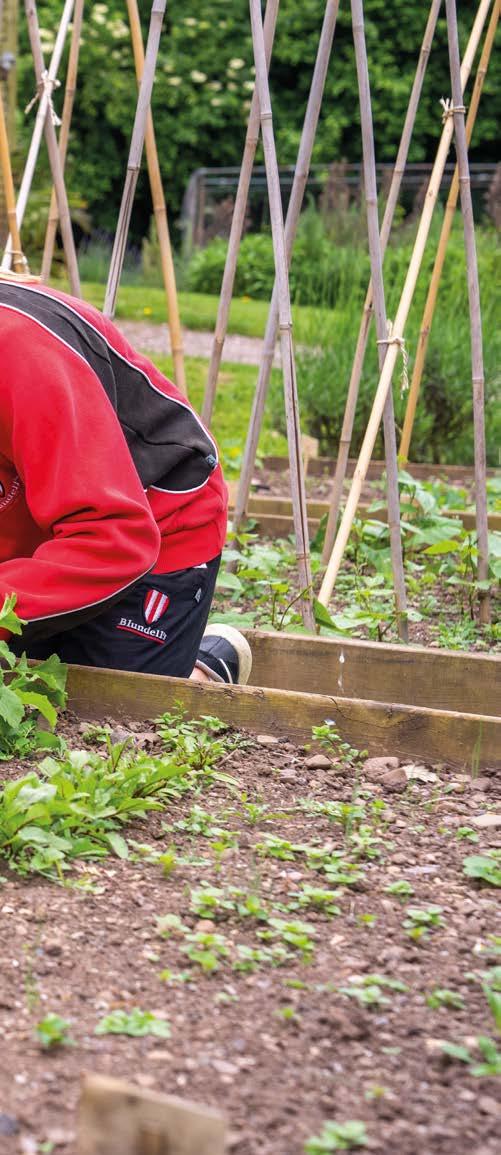
AT BLUNDELL’S WE KNOW HOW important it is for young people TO EXPERIENCE LIFE OUTSIDE THE CLASSROOM, WORKING WITHIN THE LOCAL COMMUNITYBlundell’s School is a stunning feature on the local landscape
Thursday 9th March | All Years


Thursday 16th March | Reception



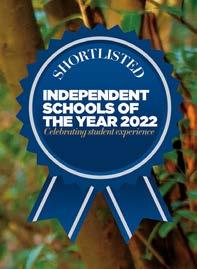

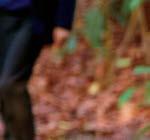



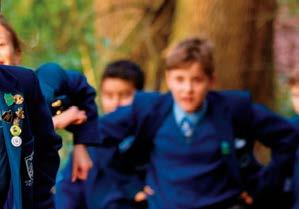
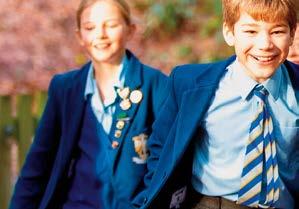
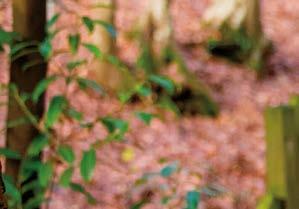


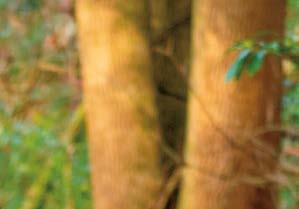
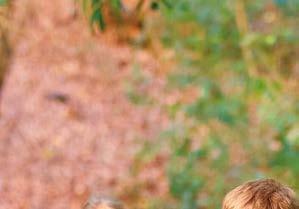



Starting at 9.30am until Midday

activities outlined by the RHS Campaign for School Gardening, and have even encouraged our visitors to don bee suits to visit our beehives. Local community groups are invited for plant sales and cream teas and our Garden Café supports our school charities. Nature Wellbeing workshops are also on o er and popular with ACE Tiverton, a special school whose pupils also come to us for Forest School activities. e Garden also opens for the National Garden Scheme and is part of Tiverton’s Britain in Bloom entry. e RHS judges who visited the Blundell’s Garden last summer, gave the school the highest Level 5 Outstanding award, which was a testament to the hard work and dedication of the pupils who look a er the gardens throughout the year.

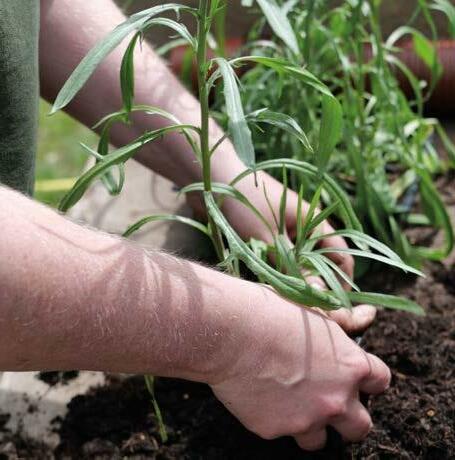
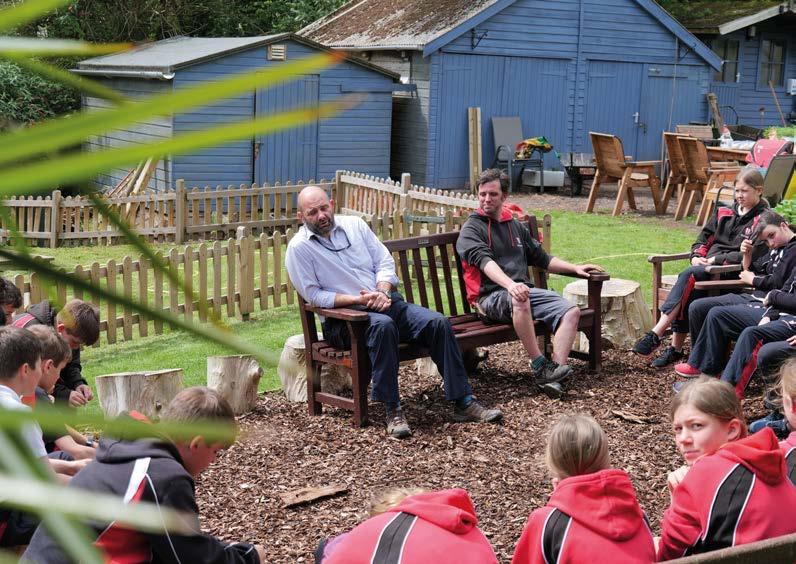


Last June, a team of ve pupils from Blundell’s was nominated for the national nals of the Goldsmiths’ Company Community Engagement Awards in recognition of its community work. Following the pupils’ virtual presentation at the regional nals last March, Blundell’s was selected as one of eight national nalists out of an initial 147 schools from both the independent and state sectors.
e nals were held at the magni cent Goldsmiths’ Hall in London. e team gave a brilliant presentation and answered the judges’ questions thoughtfully. It was a rewarding process which allowed our pupils to show themselves, the school and our Community Partnerships programme at its best.
So many of our pupils have played a key role this year in making our Community Partnerships events successful and we’re proud that Blundellians have been involved in events with so many local organisations. e bene ts gained are hard to measure but the satisfaction and reward, the laughs and fun, the achievements, personal development, understanding, teamwork and unity, all leave everyone wanting to do it again.
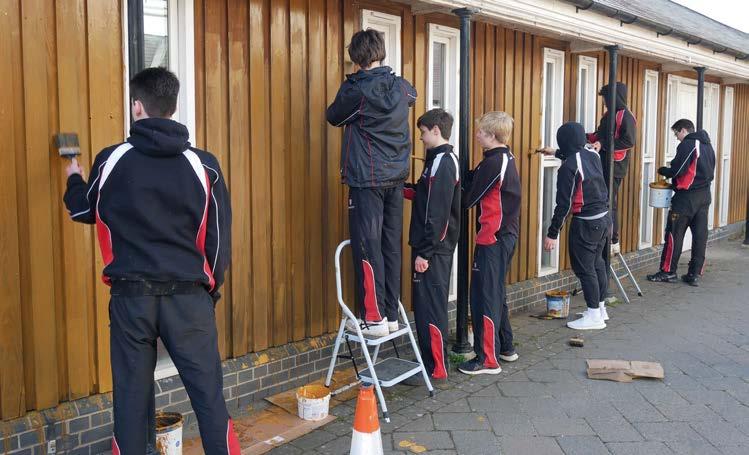
PARTNERSHIPS HAVE A POSITIVE sustainable impact ON EVERYONE INVOLVED
Fernhill Lane, New Milton, Hampshire, BH25 5SU
Admissions:
01425 626900
GENDER/AGES: Boys and girls, 2-16 years
TOTAL PUPILS: 472 (excluding Nursery & Kindergarten), boys 252, girls 220
TYPE: Day
FEES: Nursery from £54.20 including lunch per day, Pre-Prep from £3,105 per term, Prep (Year 3 – Year 8) from £4,670 – £5,430 per term, Senior £5,715 per term
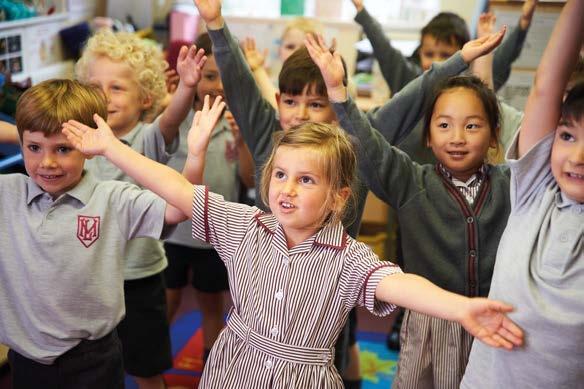
ENTRANCE PROCEDURE: Please see our website for details and also for more details on our academic, pastoral and co-curricular strengths.
School Philosophy: To provide a supportive and caring environment for learning and excellent teaching, designed to ensure all pupils achieve their academic best. At Ballard, we have a passion for developing the ‘whole child’. We believe that in addition to providing a vigorous and challenging academic programme, education must also extend well beyond this, opening up experiences and opportunities that allow all our pupils to develop skills including creativity, independence, teamwork and critical thinking; we prepare them for work and life in a rapidly changing world.
Academic Record: In 2021, 100% of pupils achieved at least five GCSE passes graded 9 - 4 (A - C), including Maths and English. 40% achieved the top 9 - 7 (A or A*) grades with an average added value of 0.9. This means that on average, each pupil gained nearly a grade more than expected for each of their subjects.
Extra-curricular: 120+ activities and GCSE “Raising Attainment” sessions a week, Ballard’s co-curricular programme is designed to give pupils of all ages a breadth of opportunities, from Archaeology to Zumba! Whatever their individual strengths or curiosities, there is something for everyone.
Notable Achievements and Alumni: ‘Excellent and Outstanding’ (ISI); shortlisted for Independent School of the Year – Co-Educational (2020 and 2022) and Student Wellbeing (2021); shortlisted for a Wilder School award (2021); finalist for Independent School of the Year – Performing Arts (2022) and ISA Award for Excellence and Innovation in Art and Design (2022); Highly commended in the ISA Award for Outstanding Sport – Large School, (2022). Current awards include: Artsmark Gold Award, Schools Sport Gold and Eco Schools Green Flag (the highest accolade), alongside National championships in several sports and an ISA Musician of the Year Award. Our alumni include World Champions and Olympic medallists as well as an international opera star, pop bands and harpists.
Open Days: Termly and visitors welcome at any time by appointment.
www.ballardschool.co.uk
Friday 10th March 2023 and Friday 12th May 2023
9am - Arrival and Coffee | 9.30am - Head’s Welcome Talk 10am - School Tours
Book your place at: www.milbournelodge.co.uk/admissions
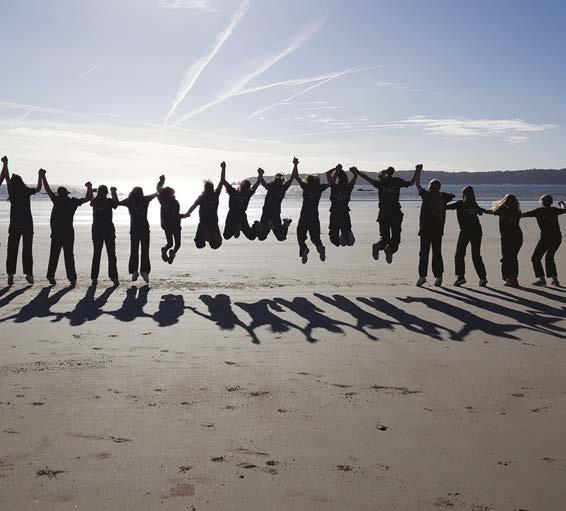
Are you looking for a Reception place for September 2023? Contact our Registrar for more information about Reception entry and how your little one can enjoy a new learning adventure at Milbourne Lodge.
Milbourne Lodge offers a traditional, very personalised education for energetic, bright pupils in pursuit of excellence. The school motto says it all really –
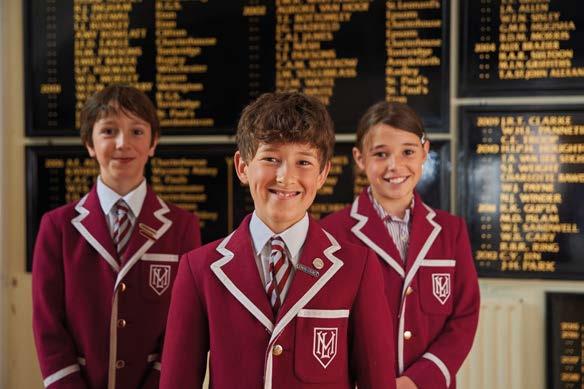
“ad optima petenda”, in other words, “strive for excellence” - The Good Schools Guide

‘Outstanding in All Areas’ - SIS Inspection 2017
www.milbournelodge.co.uk
Arbrook Lane, Esher, Surrey KT10 9EG
T: 01372 462737
E: registrar@milbournelodge.co.uk




















NULS Prep provides the perfect environment for pupils to thrive. Prep Adventures adds to our already enriching and nurturing educational experience in our outstanding 30 acre campus. Prep School pupils reap the benefi ts of specialist teaching in specialist facilities including an on-site Forest School, 25m Swimming Pool, Dance Studio, D&T workshops, fully-lit
Astro Turf and our new state-ofthe-art Sports Complex. Through innovative teaching, exceptional facilities and a desire to go above and beyond the norm, an educational experience at NULS Prep equips your child with the skills and abilities to progress to later stages of education and to prepare them for a lifetime of discovery.
Staffordshire’s Leading Independent Day School nuls.org.uk



















































































An extraordinary Pre-Prep and Prep School in Oxford where children discover and develop their talents inside the classroom and beyond. To get a feel for the spirit of the Dragon, book onto one of our termly open days on our website, or through our Admissions team admissions@dragonschool.org / 01865 315 405.
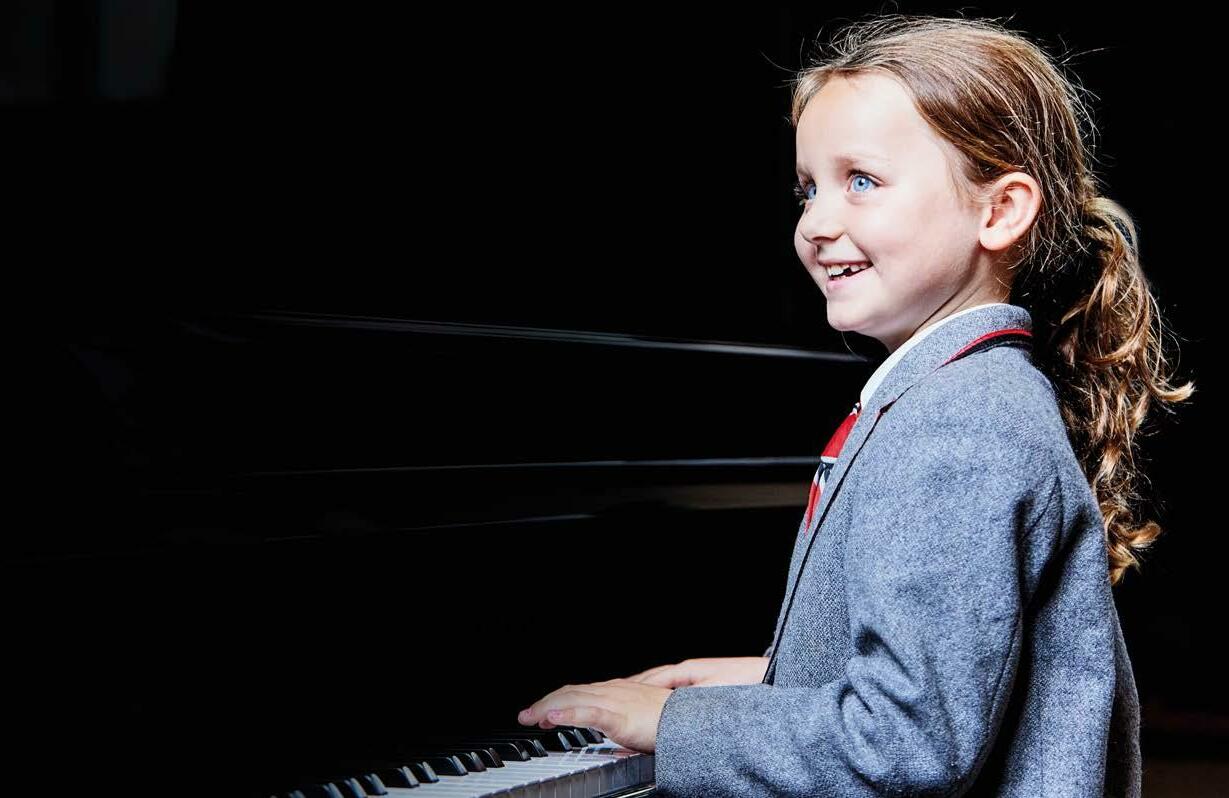
We are free thinkers. We are courageous. We are kind. www.dragonschool.org































Children want to emulate certain role models in life, so must learn about the options open to them


Historically, most careers guidance in schools begins when children are in their mid-teens. But when is the right age to start talking to children about careers and are they ever too young to think about their future? The career pathways and occupations parents choose, will start to impact on their children from a remarkably early age. I know of one headmaster who used to commute to a school in South London from rural Sussex, getting up very early to get to work on time, but often being collected from the train station by his wife and child at the end of the day. It eventually came to light that the son was convinced his dad was a train driver. Given that parents define a child’s ‘normal’, it is clear that career advice can also be implied and not just taught.
Educating children from a young age on their career opportunities can help to stave off misunderstandings. But that education, even at best, will be taught in line with our understanding of the current working world, not the one which today’s children will actually enter. This presents the biggest challenge for schools, because careers guidance educators and teachers are likely to be influenced by the working world they first experienced, which could be decidedly out of date, especially when compared with current careers and workplaces.
How we talk to younger, prep-aged children about careers is also important, to ensure we approach the topic in a way that is accessible to them. More traditional schemes of work around ‘People Who Help Us’ have helped to give prep-aged children a certain level of insight for many years. For example, a school visit from the local firefighters with their shiny fire engine, is keenly anticipated by pupils and even some staff. The same applies to school visits from other professionals within the community such as doctors, dentists and lawyers. These occupations, however, tend to focus on people-facing environments.
in Hertfordshire, emphasises the importance of helping children think about careers from an early age
Schools have a responsibility to prepare pupils for careers in an ever-changing world


Probably the biggest minefield of all, is connected to how we prepare young children for those future careers that don’t yet exist. In tackling this conundrum, schools firstly need to consider that the model of careers, professions and working patterns, is currently in a tremendous state of flux and paradigms will have to shift. During senior school practice interviews, we often ask questions like, what do you want to be when you grow up? Of course this question is flawed in a variety of ways, in terms of the assumptions it makes. The truth is, there is no single answer today, particularly as we find ourselves in a world where identity itself is being completely redefined.
That said, we need to begin preparing and supporting children from a much younger age with career-related education that is fit for purpose. Educators of prep-aged children understand they need to start this discussion from the ground up, by drilling down into what younger children understand and, most importantly, what they are interested in. High quality early years educators must be flexible and ready to go with relevant resources, as and when the child needs them. It is also important to recognise that any topic taught or explored, must make a real-life connection with some element of the child’s prior knowledge or understanding. If it doesn’t, it is unlikely to engage, or form part of the child’s retained understanding and longer-term memory.
Role play is another area that has worked well historically when helping younger children to understand various careers. Yet resources – including dressing-up costumes and images in books – which are attempting to tackle adult roles and workplaces have an important duty to reflect the diverse world we now live in; whether by gender, personal identity, religion or sexuality, the narrative must be all-inclusive. Visiting speakers in school can also give younger children more insight into today’s careers and help them form their own judgements and opinions.
When it comes to careers, for younger children the classic cliches get plenty of air time – from becoming a pop star to playing football – and of course these are real career options for a small minority. But where schools can help, is to introduce a more varied offering to pupils’ career vocabulary: the architect, the scientist, the engineer, the many different roles in financial services.
Supporting children with the skills needed to secure future careers is also vital from a younger age, whether building resilience or nurturing determination, creativity and leadership skills. Many schools have a strong set of aims but these are often more characterdriven than skills-focused. Being self-reliant, having a positive outlook and leaving people
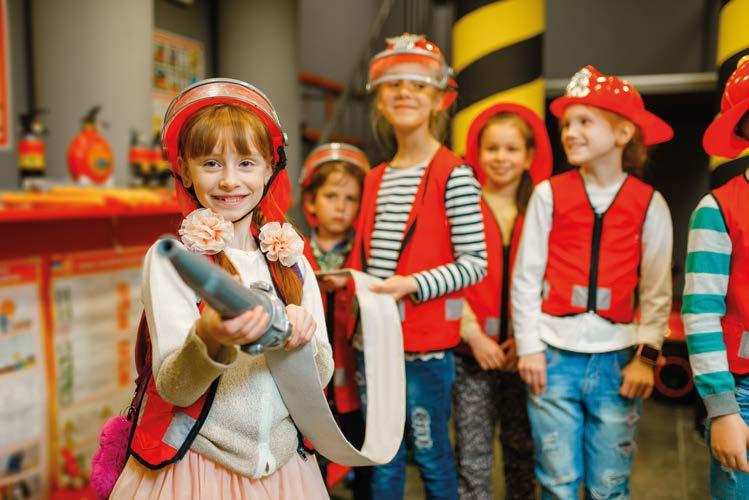
How can we make careers guidance for prep children accessible and engaging?
• Tackle careers education in an ageappropriate way by helping children to find out who they are and what they enjoy.
• Ensure careers education at prep level is skills-focused rather than character-driven – with an emphasis on self-reliance, positivity and community.
• Ensure role play, imagery and books are inclusive to all and reflective of the diverse world we live in.
• Educators must be flexible and ready to go in with relevant resources, as and when the child needs them.
• Ensure every careers-related topic explored, makes a real-life connection with the child’s prior knowledge or understanding in order for it to be retained long-term.


and places better than you find them, are the characteristics many interviewees will look for in an employee now and in the future.
Careers guidance for prep children has never been more important, and schools have a duty to help younger children understand the world around them in an age-appropriate way and find out early on who they are and what they want. Resources such as the Think Equal scheme recognise that, by the time a child has completed their younger years of education
– the end of pre-prep at the latest – many of their prejudices and views of the world will be formed, for better or worse.
Interestingly, many people re-evaluated their careers during the pandemic. I recall speaking to one parent who said: “I’ve realised I’ve ended up doing this really serious job, which is somewhat ironic, as I’m not a very serious person.”
Perhaps the message here is, are there new and innovative questions we should be asking our prep pupils to help them ‘know their game’ as early as they possibly can?
Matt Godfrey, Deputy Head of Downe House in Berkshire explains how helping others, makes young people feel better about themselves and their lives
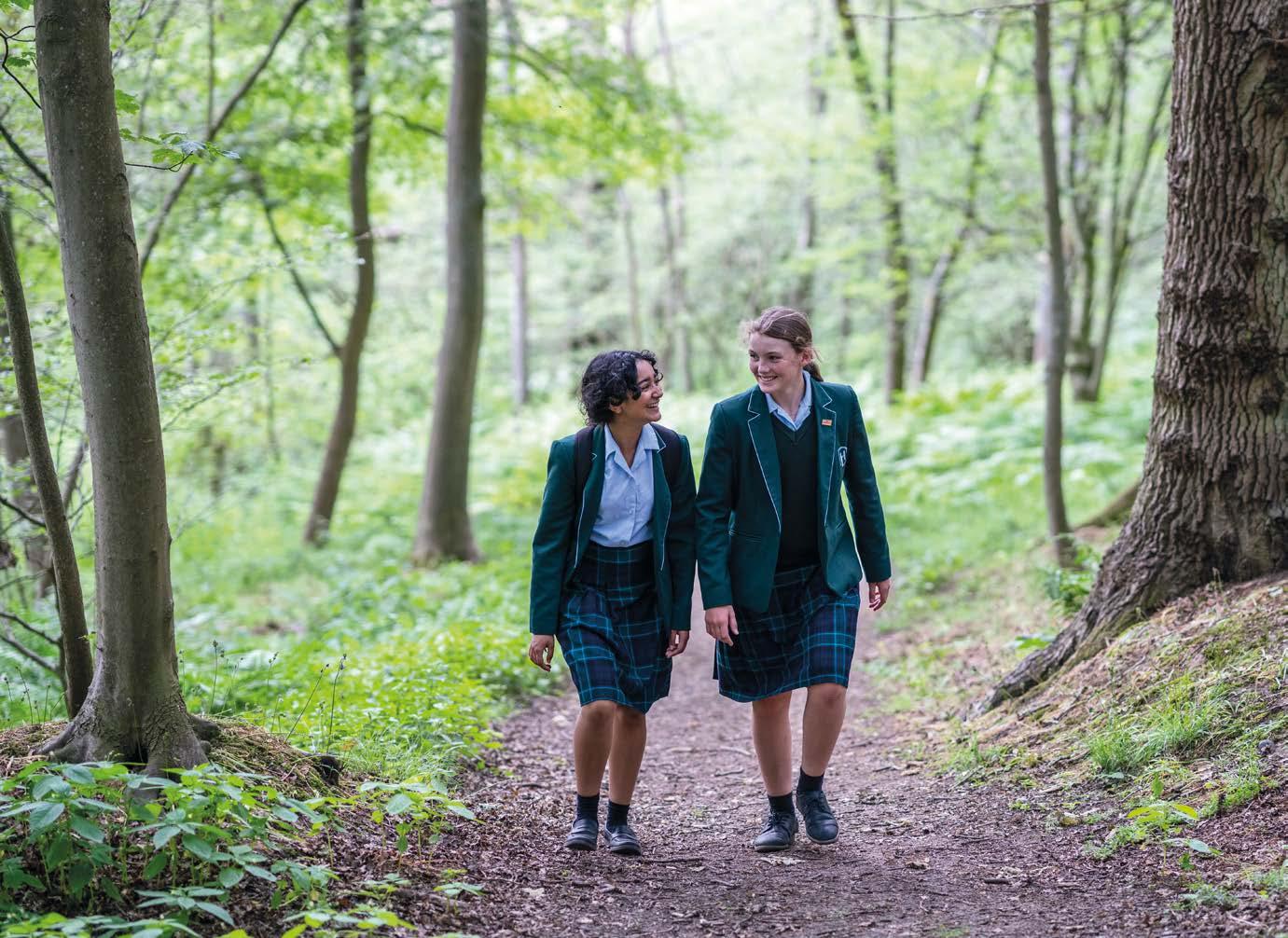
In recent years, most schools have placed the wellbeing of their pupils at the heart of all they do. Different schools take different approaches, but school initiatives often include: training pupils as mental health first-aiders and pastoral mentors, yoga and therapy sessions to reduce stress levels, specialist training in mental health awareness for pastoral staff, remodelling traditional PSHE (Personal, Social and Health Education) classes as wellbeing lessons, and school buildings designed with break-out zones or innovative wellbeing spaces to help pupils relax.
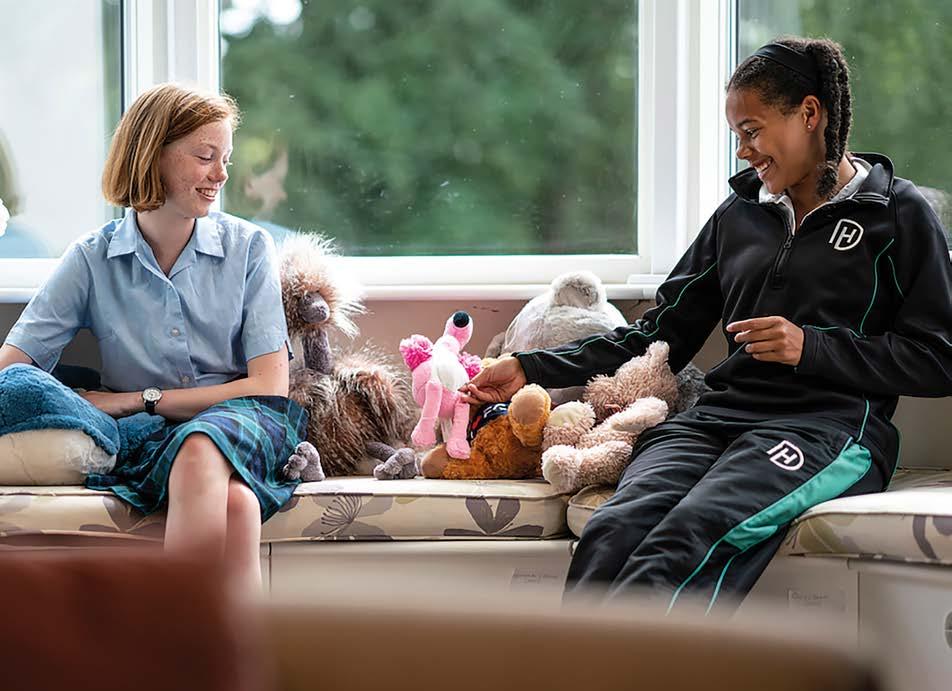
The Covid-19 pandemic had a hugely negative impact on pupils’ and adults’ wellbeing. The ever-increasing prevalence of social media is also exposing more and more young people to negative and harmful content online. As a result, schools are more aware than ever of the need for positive and effective ways to promote wellbeing.
However, there’s much evidence to suggest that one of the most effective ways to boost the self-esteem and confidence of young people is to give them regular and meaningful opportunities to provide a service for their local communities.
I recently spoke with a group of sixth form students who visited a local primary school once a week; the visits took place over a period of one academic year, while they were in year 12.

“I loved it,” said one. “It felt healthy to be doing something different, away from my usual routines. The energy and enthusiasm of the primary children was infectious, and they made me laugh!”
“Volunteering at a primary school gave me a new perspective,” said another. “I became more confident and learned from the teachers; they were friendly and helpful to me and I admired their patience with the children. I think it made me a more understanding person and it taught
me how to build relationships with other older adults – and younger children, of course!”
Schools provide all sorts of other ‘service’ programmes, normally for sixth formers. I remember being very moved by how effectively sixth formers at a school in Surrey put on a fabulous, annual sports day for local children with profound learning difficulties. The entire event was organised and hosted by these students with tremendous care, attention and dedication – and they loved every moment. They definitely enjoyed it as much as the guests.
SOCIAL MEDIA IS EXPOSING YOUNG PEOPLE TO NEGATIVE AND HARMFUL CONTENT, SO SCHOOLS ARE MORE AWARE OF THE need for positive and effective ways TO PROMOTE WELLBEING
Another form of community service is when individual students –again, normally sixth formers – are paired with a local, elderly resident who has requested help of some kind. These requests are usually prompted by a letter from the school asking if they would benefit from assistance – some help in the garden, maybe, or someone making a trip to the local shop on their behalf, or perhaps simply some conversation.
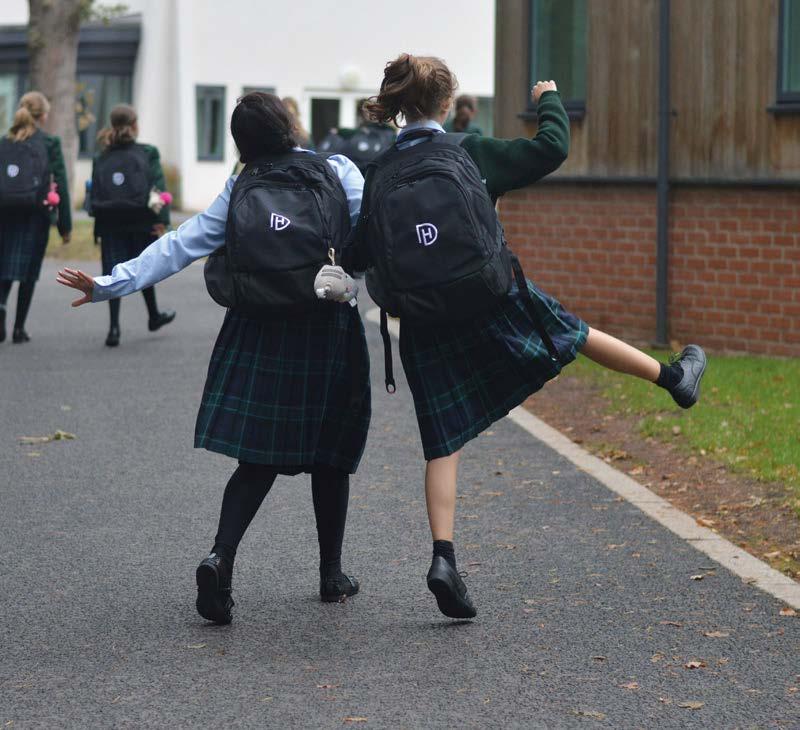
I participated in such a programme myself when I was a teenager. One of my sixth form friends and I were allocated to an elderly villager named Freda, and we visited her for one hour each week. Freda normally asked us to do jobs for her in the garden, and she always rewarded us with cake before we left.
These days such activities require close regulation and bureaucracy, but they can, and do, still happen. It was a highly rewarding, enjoyable and transformational experience for me. It gave me a sense of independence and responsibility; furthermore, Freda enjoyed my visits and that enhanced my sense of self-worth, too.
Sir Anthony Seldon pioneered wellbeing lessons at Wellington College in 2006 when he was Headmaster there. At first, he was heavily criticised for “infantilising” young people. However, as his programme expanded and incorporated practical activities, he showed that wellbeing can “develop the capacity in young people to cope and manage their lives proactively; to nurture good character traits and resilience skills”.
Why all the best wellbeing programmes start from ‘within’
• There’s evidence that students have a greater sense of wellbeing and self-worth when they’re compelled to consider the point of view and welfare of other people, rather than their own.
• Many ‘philanthropic’ activities such as litter picking provide excellent opportunities for team building. They also provide a distinctive ‘feel-good’ factor as they involve lots of people and there is a positive outcome.
• Service-related activities often prove effective at helping students in other areas of their lives; for example, better concentration in class and increased levels of selfesteem. They benefit from taking some time away from their usual day-to-day anxieties.

ONE OF THE MOST EFFECTIVE WAYS TO BOOST THE SELF-ESTEEM AND CONFIDENCE OF YOUNG PEOPLE IS to give them a regular and meaningful opportunity to provide a service FOR THEIR LOCAL COMMUNITY
Pupils experience a ‘feel-good’ factor by helping others
Volunteering in the local community can be fun and highly rewarding
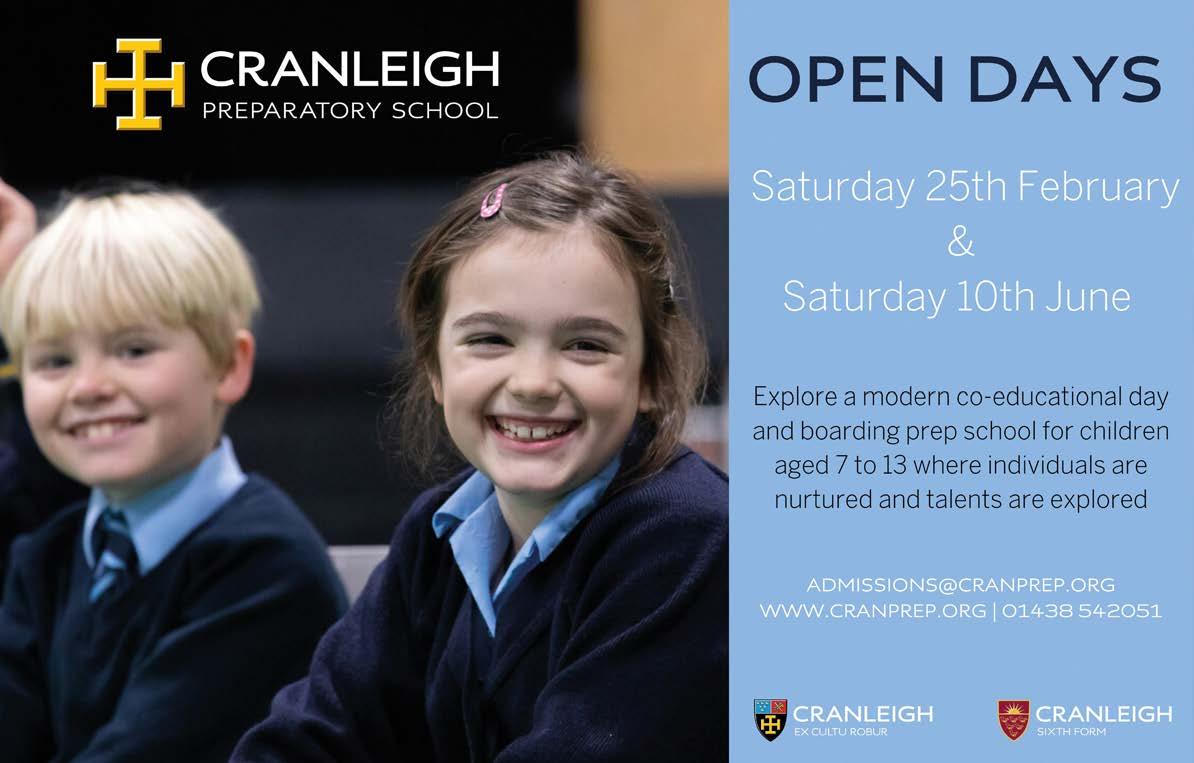
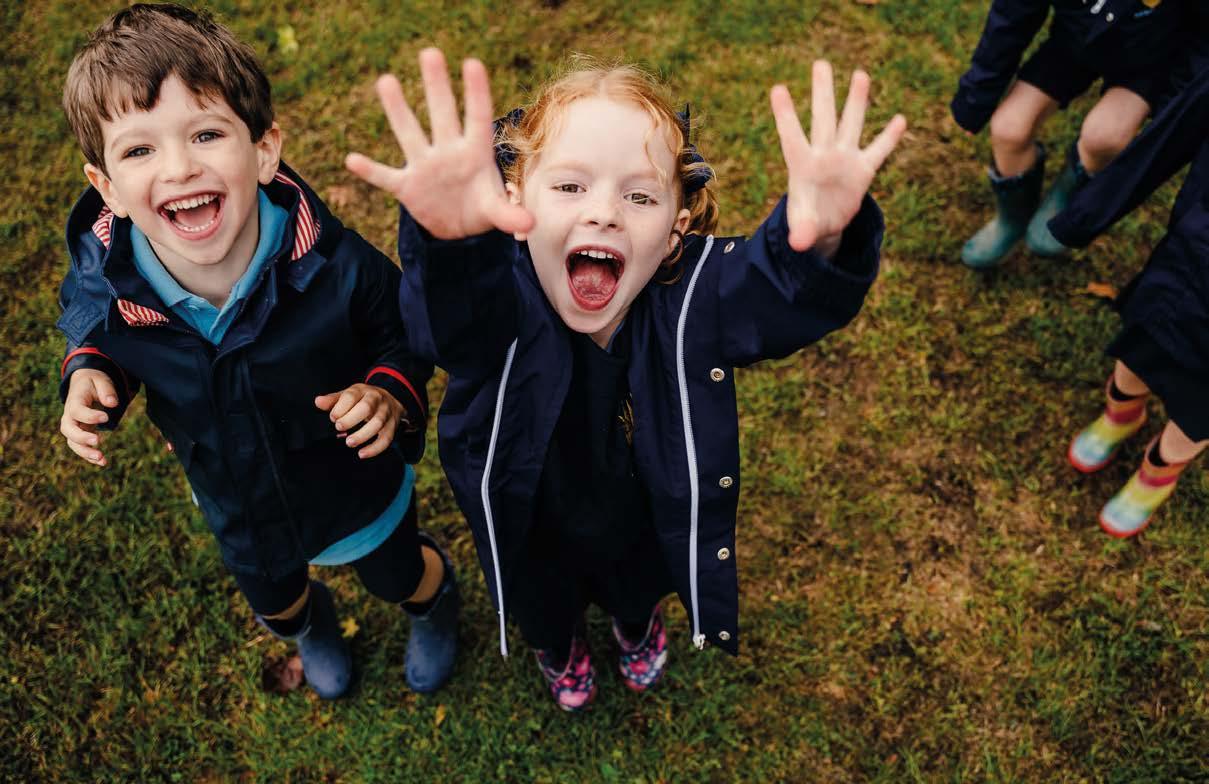


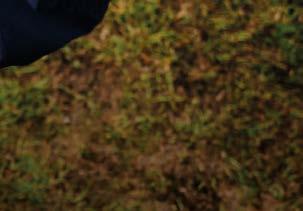


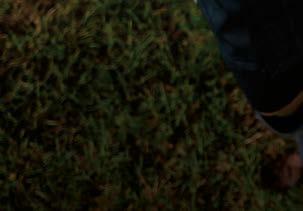
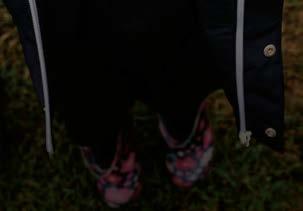




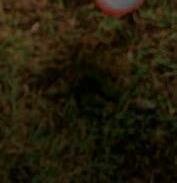
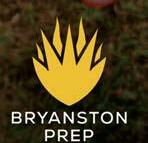





Junior Designer, H&M
Pennthorpe Prep School, West Sussex
Throughout my fashion design degree at Bath Spa University, I interned at a handful of high-end brands including Sharon Wauchob and Fyodor Golan. After graduating in 2018 with a first-class honours, I went on to land myself a design assistant role at a Londonbased fashion supplier where I worked with Topshop, Miss Selfridge and River Island just to name a few. A year passed and I then moved on to work as a junior designer at another supplier where I took care of the New Look account. In the summer of 2021, I moved out to Stockholm to start my new life and career at H&M working as a junior designer. Pennthorpe played a fundamental role in nurturing my creativity, whether that be in music or art. The art teacher during my time at Pennthorpe really had a profound effect on my life, he encouraged me to become the best artist I can be!
Trade analyst, Clarksons Research
King’s Rochester, Kent
I graduated with first-class honours and a scholarship in geography from Downing College, Cambridge before going on to earn a master’s with distinction from King’s College, London in international relations. My education at prep and senior school at King’s Rochester gave me a strong foundation to pursue my academic career as well as teaching me key life skills that enabled me to enjoy university to its fullest potential. I started boarding at King’s when I was 13 and was encouraged by my teachers and peers to engage with a variety of diverse experiences, from public speaking and rugby to mentoring. Living away from home taught me about independence, but also about the importance of participating in the community around me and making it a better place. I took these lessons forward to university, where I became a keen sportsman and a mentor to younger students. I am still driven by the same ethics of curiosity and teamwork as I start my career as a trade analyst for Clarksons Research.

Champion Jockey
St David’s College, Llandudno
I won my first apprentice jockey title in 2019 and again in 2020. In 2021, I won my first race at Royal Ascot riding Oxted in the King’s Stand Stakes. I am currently riding as Qatar Racing’s First Jockey. However, I had no intention of being a jockey until I was 17 years old. St David’s College helped me develop the confidence to pursue my career. Before I went there, I couldn’t read and write, but during my time I wrote a poem and read it out to the whole school. I had zero confidence when I arrived at St David’s, but when I left I thought that if I jumped I could touch the sky and believed I could achieve anything I wanted. It’s all to do with the confidence the teachers instil in you. They believe in you and that means everything, and they are all very approachable and want you to thrive.

Assist Programme Manager Environment, Sustainable Hospitality Alliance
Godolphin and Latymer School, West London
I graduated from the University of Edinburgh in 2021 with a degree in social anthropology with development and I now work for the Sustainable Hospitality Alliance, a charity working with the global hospitality industry to support hotels to be more environmentally and socially sustainable. I was recently honoured to speak at a panel event hosted by Marriott International, discussing the importance of measuring environmental impacts to drive collective action. When I was at school I had absolutely no idea what I wanted to do for a career, but Godolphin taught me to keep an open mind, to consider big world problems and opportunities and to follow my passions. It’s still early days, and I know I have a lot to learn. But I feel lucky to have found myself in the world of sustainability, working to address some of the biggest challenges we face, in a career which I didn’t know existed a few years ago!
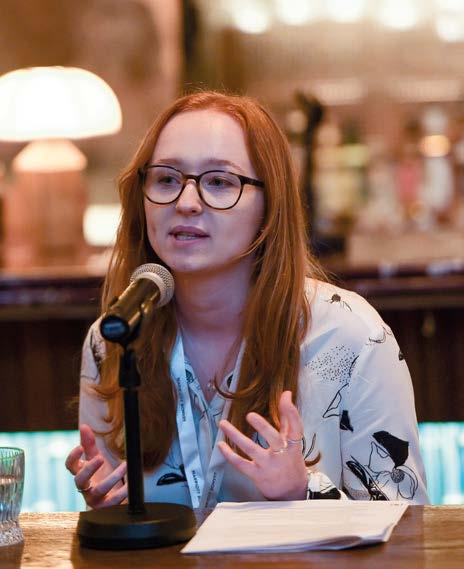
Co-founder of Arcade Media and Chair of the Youth Council at Outernet Global

The King Alfred School, North London
I loved every minute of my time at The King Alfred School, where I was treated as an individual, encouraged to try new things and wasn’t boxed in or expected to fit a certain mould. I left school with the confidence and self-belief to follow the path that was right for me, which led to me dropping out of King’s College, London after my first semester to join VICE as a full-time creative. I went on to work at the LADbible Group, the biggest social media property in the world for online video, where I led the creative content for a number of brands including Amazon and Sony. After spells at other leading agencies, I co-founded Arcade Media in 2021 to manage Europe’s biggest creators: The Sidemen (100m+ followers). In addition to launching three successful businesses, I’m proud to chair the Youth Council at Outernet Global, an immersive entertainment district in the heart of central London.

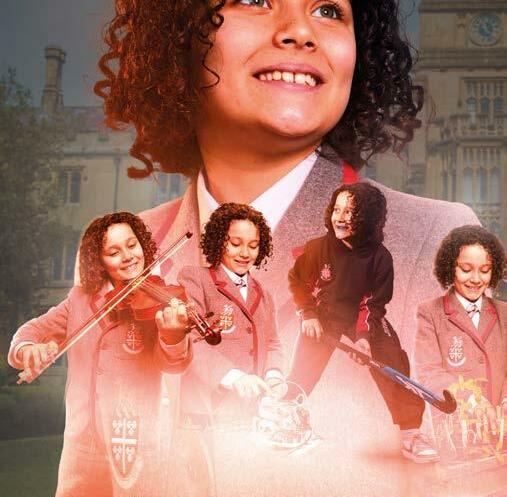






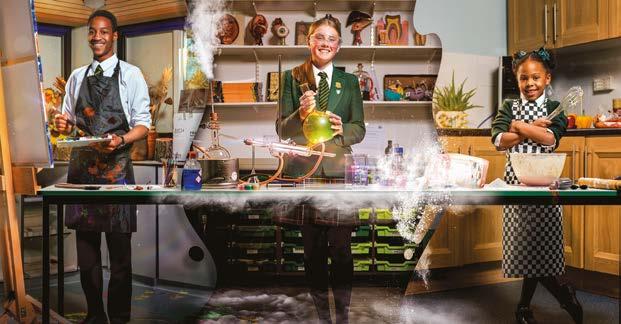


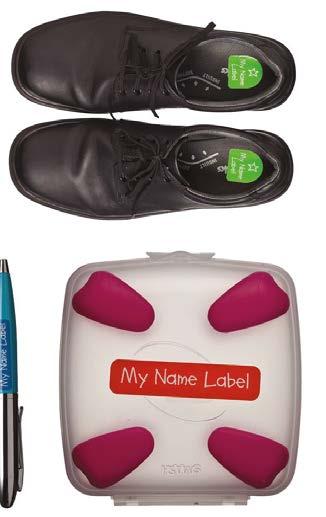


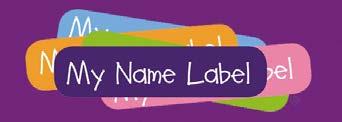



Spring is just around the corner! Whether your little ones have parties or play dates in mind, help them do it in style with these beautiful floral decorations, guaranteed to brighten up any occasion. Paper Garden Chandelier, £58; Felt Flower Garland, £36; Flowers In Bloom Giant Garland, £27; Peach & Pink Stitched Streamer, £18; Flower Garden Giant Garland, £27 all by Meri Meri at merimeri.co.uk

Tracey

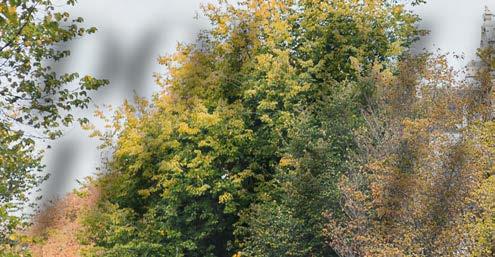



Atmospheric canals, wonky gabled houses and reams of Old Masters: Amsterdam is easily my favourite city in Europe. Although a frequent visitor in my youth, this is the first time I’ve seen it through a child’s eyes. Ever since she learned about World War II at school, my 12-year-old daughter, Lola, has been fascinated by
the story of Anne Frank, the 13-year-old Jewish girl who wrote a diary about life in hiding during the Nazi occupation of Amsterdam. With the promise of stroopwafels and secret annexes, we’ve hopped on the Eurostar and in under four hours are exploring the Dutch capital.
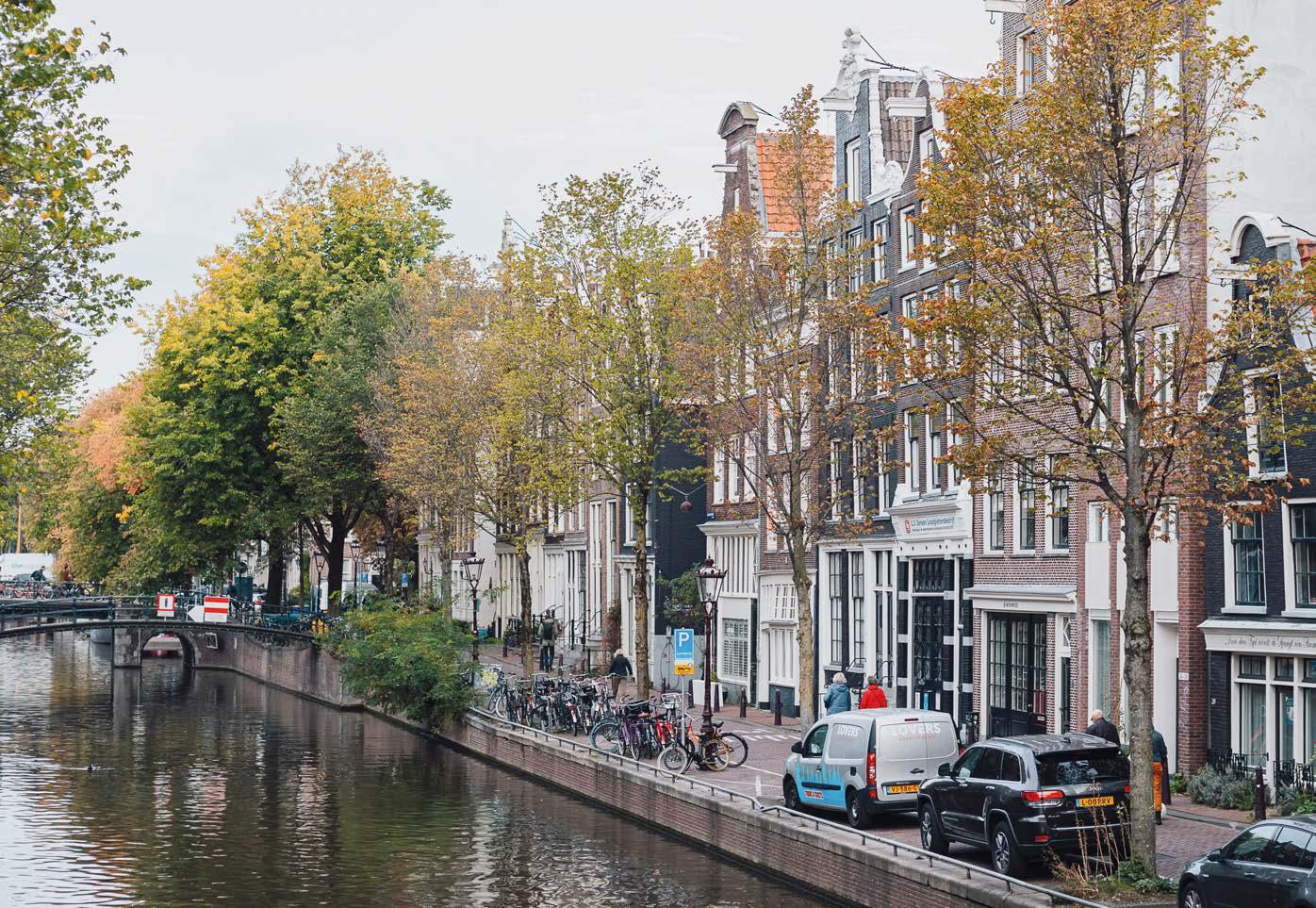
The secret to a successful city break with children is to make it as easy as possible. For this reason, we’re staying in the DoubleTree by Hilton, which is mere steps from Centraal Station. After checking in and grabbing our complimentary warm cookie, an already charmed Lola and I head straight for the nearest canal for a boat tour. As the flat, glass-roofed barge glides around the Canal Ring, passing the narrow gabled houses for which Amsterdam is famous, my girl keeps her eyes peeled for one in particular, Anne Frank Huis on Prinsengracht.
Anne Frank Huis is one of Amsterdam’s most popular attractions and tickets sell out weeks in advance. My top tip is to book the introductory programme for a couple of euros more – tickets are released two weeks in advance – but
often available last minute. Lola listens intently to the curator explain Anne’s story and after a Q&A we’re allowed to skip the lengthy queues and venture behind the famous bookcase.
On 12th June 1942, Anne Frank was given a diary for her 13th birthday and just three weeks later the family went into hiding. Anne and her family, the
school,
van Pels family and Fritz Pfeffer hid in a secret annex, a 75-square-metre section of her father’s office building concealed behind a bookcase. During this time Anne documented their life in her red-checked diary, from listening to the hourly chimes of the Westerkerk bell to crushing on Peter van Pels.
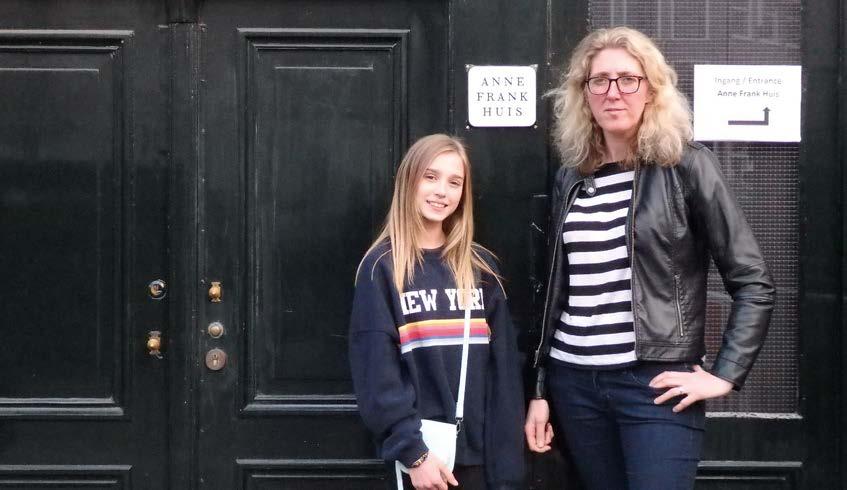
We stand quietly in Anne’s room, taking in its bleak, windowless features and the remains of photos and magazine clippings on the walls. “It’s like a proper teenage girl’s room, Mum,” whispers Lola, solemnly taking it all in. After more than two years in hiding, they were arrested and deported to Auschwitz on the 4th August 1944. Soon after, Anne died in the Bergen-Belsen concentration camp.
Her father, Otto Frank, was the only one to survive the war and after he returned to Amsterdam and found Anne’s diary, he followed her wishes for it to be published. After buying her own version of the famous red-checked diary, Lola and I leave the museum just as the Westerkerk clock strikes 7pm. We wander through the cobbled streets of Jordaan talking about Anne and the museum before
stopping for supper at La Perla, a hip little pizzeria on Tuinstraat.
After breakfast the next day, we hire a couple of Dutch bikes from the hotel and navigate our way around the city like natives. We trundle over to Museumplein – where the major museums are – and after climbing on the giant IAmsterdam sign for a quick selfie, we venture into the Rijksmuseum to gaze at Rembrandt’s The Nightwatch and Vermeer’s Milkmaid.
Spring is my favourite time to visit Amsterdam, not least because it’s tulip season, when half a million rainbow-hued blooms are potted around the city. After an hour or two wandering around The Van Gogh Museum – Lola is mesmerised by his Sunflowers – it’s back on the bikes and over to De Pijp market for lunch. Thankfully, Dutch cuisine is a big hit with my girl and we spend much of the weekend indulging in cones of piping hot, mayo-drenched fries, freshly cooked stroopwafels and pancakes the size of dustbin lids.
Before we leave to catch our train home, we take the lift up to the SkyLounge, a vast rooftop bar on the top floor of the DoubleTree. As we watch the pale sun set over medieval spires, zincgreen domes and the oily slivers of the city’s waterways, we can just about hear the soft bells of Westerkerk chime once more. Lola grins: it’s a fitting farewell to Anne’s Amsterdam.
Getting there: Eurostar offers returns to Amsterdam from £88, eurostar.com, stay at the DoubleTree by Hilton Amsterdam Centraal from £190 per room, per night, hilton.com
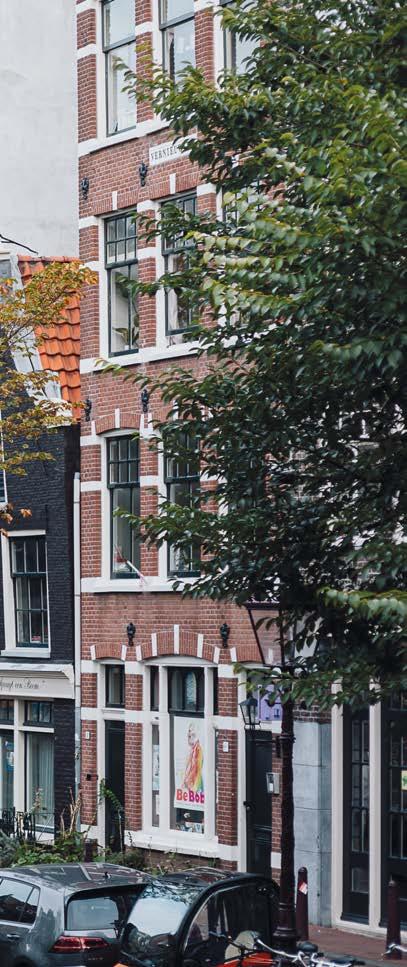
• Eat fresh stroopwafels from the Original Stroopwafel stand in De Pijp.

• Hire Dutch bikes and cycle around Vondelpark.
• Try out scientific experiments in the NEMO Science Museum.
• Buy vintage clogs or wheels of gouda in Albert Cuyp Market.
• Time travel back to World War II in the Junior Resistance Museum.
• Take a tour of the Johan Cruijff ArenA, the home of Ajax.
• Learn about microbes in the Micropia museum.
• Taste your way around Tony’s Chocolonely Super Store.
• Brave Europe’s highest swing on the top of A’Dam Lookout.
• Learn about the capital’s creepy history in the Amsterdam Dungeon. www.holland.com
At
Lola had been fascinated by the story of Anne Frank and was keen to visit her house on Prinsengracht
WE’VE HOPPED ON THE EUROSTAR and in less than four hours WE ARE EXPLORING THE DUTCH CAPITAL
Schools Advice l
Private Tuition for all

Ages l

Head Teacher: Ms Sian Bradshaw
Admissions: The Registrar: Mrs Kuiper - admissions@butehouse.co.uk mail@butehouse.co.uk 0207 603 7381
GENDER/AGES: Girls, 4-11 years
TOTAL PUPILS: 320
TYPE: Day
FEES: Pre-Prep £6,858.50 per term, Prep £6,858.50 per term
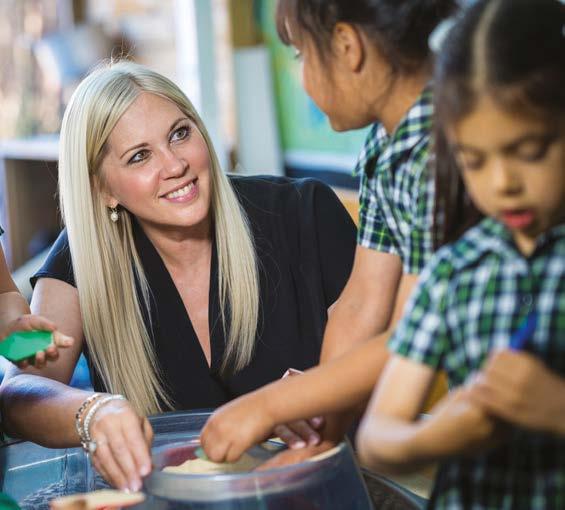
TYPICAL CLASS SIZE: Prep – 20-24
FAITH: Non-denominational
MOTTO: Every girl runs her own best race
ENTRANCE PROCEDURE: Ballot at 4 years. Selective assessment at 7+.
School philosophy: Bute House has a forward thinking and unique noncompetitive academic ethos, where every girl runs her own best race, and where the possibilities are limitless. The school offers a broad curriculum that develops skills alongside knowledge, provides exceptional pastoral care and ensures girls develop a strong self-belief and emotional resilience in a happy, safe and inspiring environment. Bute House is committed to shaping the young women of the future into the changemakers and leaders of tomorrow’s world.
Academic record: Year 6 leavers move on to a broad-range of independent senior schools, with a focus on pupils transitioning to an environment where they will continue to flourish and be challenged. This is often at highly academicallyselective London day-schools, with other families choosing boarding options further afield.
Extracurricular: There are extensive extra-curricular opportunities in every area of school life. Pupils can participate in a range of activities from early morning cross-country, swimming and football, lunchtime clubs such as chess, bridge and rock-school and after school offerings ranging from street dance to karate. All clubs are taught by specialist staff, broadening and enriching the educational experience at Bute.
Notable achievements: Regular national sporting success in netball, swimming and gymnastics. Recent nomination for @Independent School of the Year for Public Outreach’. High numbers of senior school scholarships annually, including sport, music, art and academic awards.
Open Days:
www.butehouse.co.uk
Academic Assessments
Academic l

Exam Support
It’s clear that Enjoy has a clear moral compass and really cares about both its clients and tutors -no wonder their tutoring is as much about mentoring and improving children’s confidence as it is about teaching the nuts and bolts of a particular subject.”
-The Good Schools Guide



Interested in private tuition, assessments or schools advice?
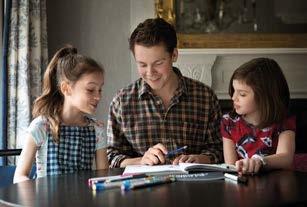

Contact one of ourEducation Consultants today: +44 (0)20 7352 8800enquiries@enjoyeducation.co.uk



London
For an indulgent treat with your youngster, why not take afternoon tea in the Maison Lounge at the Cadogan Hotel? You’ll be transported on a culinary and literary voyage of discovery by Head Pastry Chef Pierre Morvan, who takes inspiration from the classic novels of fellow Nantes native, Jules Verne.

Consisting of a series of chapters, the tea begins with finger sandwiches which reflect Phileas Fogg’s visit to the four corners of the world in Around the World in 80 Days: cheddar cheese and pickle for London, coronation chicken and mango chutney for Bombay, and an all-American classic – a smoked salmon, cream cheese mini bagel. Adults can sip on a warming Boy Voyage – a fruity spiced rum cocktail – but there’s also, of course, a selection of teas to choose from, with each one arriving at the table with a mini hourglass to perfectly measure brewing time. Verne-inspired confections follow, including a shortbread rocket (From the Earth to the Moon), a chocolate caramel tart atop an elephant (The Steam House) and a hot-air balloon constructed from chestnut and vanilla cake and Swiss meringue (Five Weeks in a Balloon). Inspiring and imaginative, Literary Afternoon Tea starts from £65 per person. belmond.com
14-16 FEBRUARY
London
Celebrating architecture and materials as the building approaches its grand transformation, the National Gallery welcomes little ones and parents to its Explore, Build, Play drop-in days to seek out decorative details throughout the gallery’s halls, from floor mosaics to colourful motifs. Then, with the help of artists James and Eva, the children will play with scale, shape and sensory materials to create new structures to move in and around under the magnificent domed interior of this celebrated space. nationalgallery.org.uk
NOW – 5 MARCH
Richmond upon Thames
This half-term, welcome the return of Orchids, Kew Gardens’ much-loved annual fair. Inspired by the beauty and diversity of Cameroon, Orchids 2023 is a vibrant celebration of colour and warmth to brighten up the colder months. From lush rainforests and volcanic mountains to desert plains, the African country’s huge variety of plants and wildlife are supported by varied habitats, reflected across the 10 climatic zones within the Prince of Wales Conservatory. Spend a wonderful afternoon taking in the larger-than-life sculptures handcrafted by Kew’s expert horticulturists, admiring photography from young Cameroonians and getting acquainted with some of the world’s most delicate and threatened flowers. kew.org
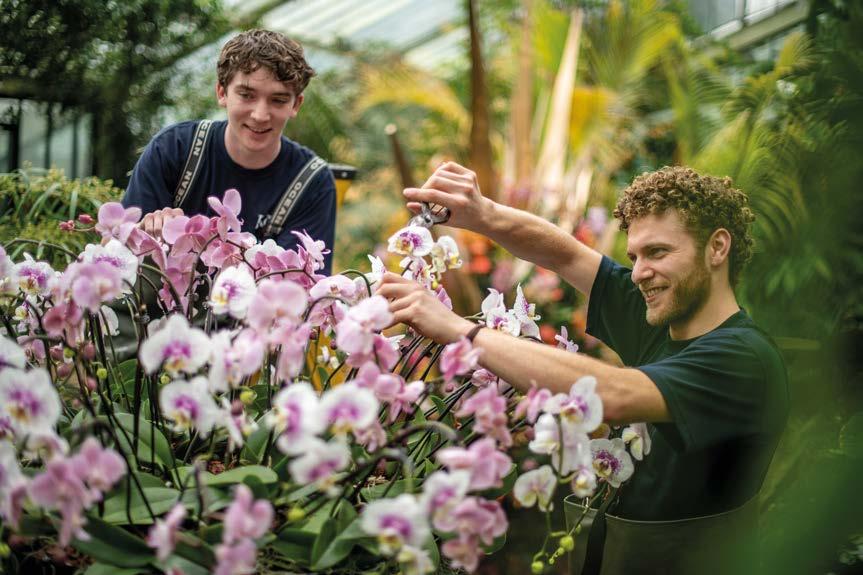
15 & 22 FEBRUARY
London
If you have a keen young baker to entertain this half-term, why not skip out the mixing bowl and workspace clean-up, and go straight to the showstopper decorating? Much-loved treat-gifting service Biscuiteers is inviting piping rookies to learn from the pros at its café in Belgravia’s Ecclestone Yards. After a tutorial, School of Icing students will be tasked with putting their own spin on the company’s Mr Men and Little Missthemed biscuits. Just add hot chocolate and sprinkles! Tickets prices start from £45. biscuiteers.com

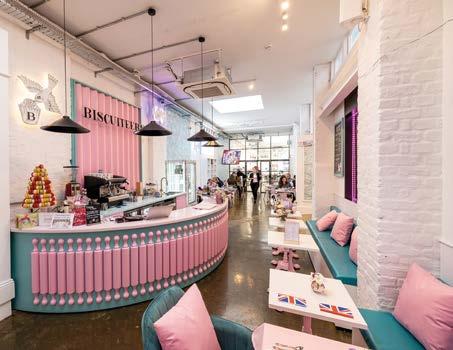

11-19 FEBRUARY
Surrey
Get their noses out of their copy of Terrible Tudors and let them experience this particular royal family’s legacy up close, with a day at Hampton Court Palace this half-term. Children’s imaginations will be sparked by an unforgettable visit to Henry VIII’s famous court, complete with tours of the 16th century kitchens by historic cooks, an introduction to the many servant roles required for a smooth-running palace and a chance to be awed by the magnificent Great Hall. They’ll also get the opportunity to seek out the ghost of Catherine Howard in the State Apartment’s Haunted Gallery and run wild in the Magic Garden. And what trip back in time here would be complete without tackling the UK’s oldest surviving hedge maze! hrp.org.uk
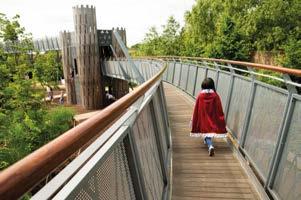
NOW – 28 FEBRUARY
Cornwall
In need of some wholesome family time? Head down to Trengwainton Garden near Penzance in Cornwall for the Feelgood February trail, a springboard into the transitioning seasons for all ages. Based on the five ways to wellbeing, you can connect, be active, learn, give and take notice as you explore a 25-acre sheltered garden that’s bursting with new life after a long winter’s slumber. Walk along winding wooded paths, take in spectacular sea views and partake in birdwatching. nationaltrust.org.uk
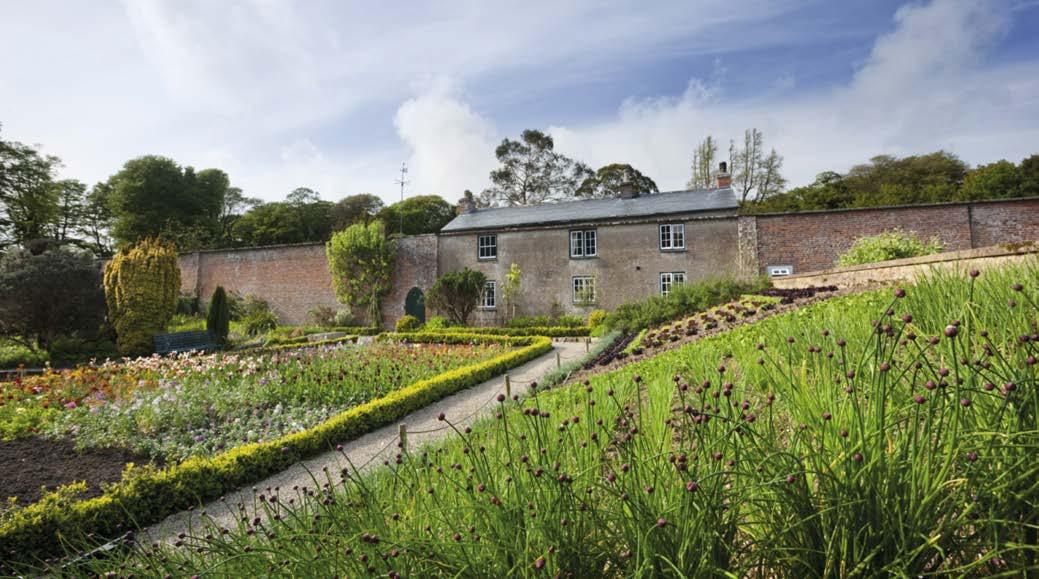
11 – 19 FEBRUARY
Liverpool
Tate Liverpool welcomes little ones and their families to its Creation Stations sessions this half-term. Explore the gallery’s free collection displays before taking your mini Picasso to join other young creatives in the Clore Studio in writing, drawing and making their artistic responses to what they’ve seen during the visit. And don’t forget to pick up a complimentary sketchbook full of fun activities to inspire your child as they tour the halls. tate.org.uk
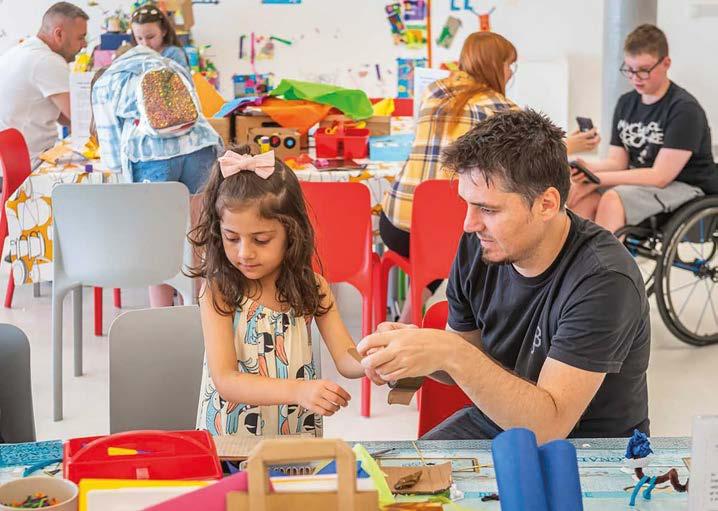
13 - 18 FEBRUARY
Edinburgh
In conjunction with its Galleries and Galaxies exhibition, the National Museum of Scotland in Edinburgh is running a free drop-in to entertain curious little space cadets this half-term. While daily craft stations will be taking place in the Grand Gallery and intergalactic demos will be presented at the Spark Cart, you can also book a MadLab electronic gadget-making class and a ticket for one of the Cosmos Planetarium shows. Meanwhile, there will also be more relaxed versions of some of these out-of-thisworld activities available for children with additional support needs. nms.ac.uk
11 MARCH
Brighton
If you head down to the Theatre Royal Brighton on this day, you can join in the Paddington Bearinspired fun at Skip’s Family Workshop, run by Creative Learning. Spend quality time together and socialise with other families while partaking in arts and crafts, play-acting and a tour of the stage, complete with drinks and biscuits. Pack your own marmalade sandwiches for an authentic afternoon themed around the nation’s favourite Peruvian bear! atgtickets.com
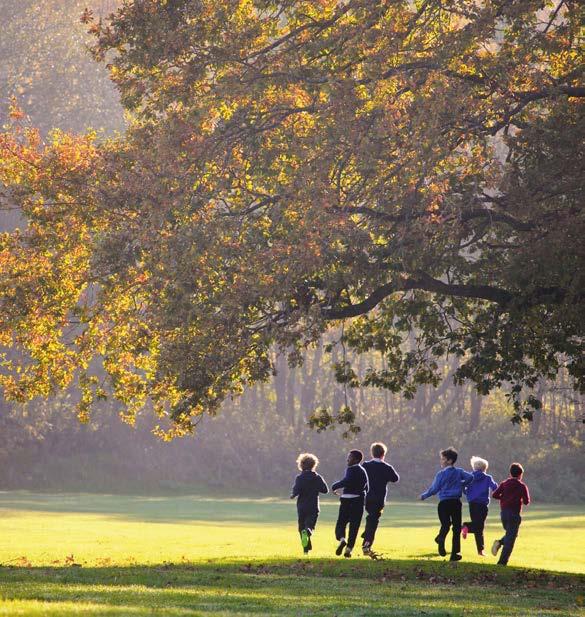


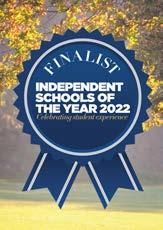
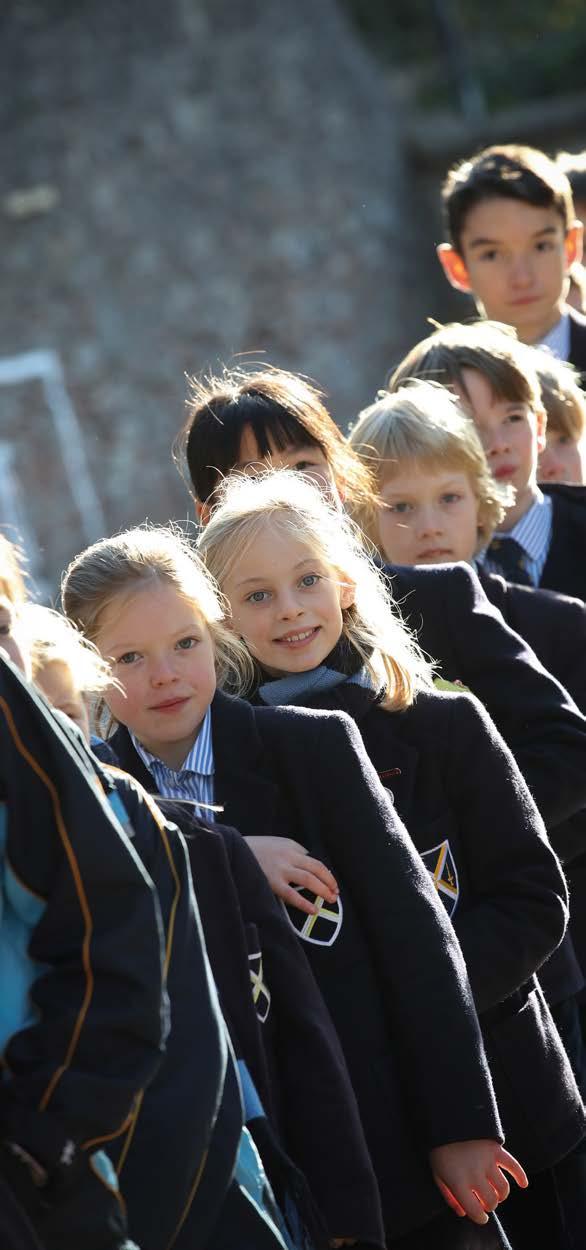


14-15 MARCH
Newcastle
Iggety ziggety ziggety zoom! Room on the Broom will arrive at the Tyne Theatre and Opera House in Newcastle for a delightful two-day run. This Olivier award-nominated production based on the bestselling book by Julia Donaldson and Axel Scheffler brings together winning performances, jaunty songs and brilliant puppetry to tell this eventful story. Will the witch find all her belongings? And will her new friends keep her safe from the hungry dragon? You’ll have to watch to find out…
Tickets are priced £12 to £14. tynetheatreandoperahouse.uk
NOW – 5 MARCH

London
Legendary Canadian circus troupe Cirque du Soleil has returned to the Royal Albert Hall to share the UK premiere of its steampunk-themed show, Kurios. Inspired by Victoriana (making the venue all the more fitting), the audience is invited into the curio cabinet of an ambitious inventor who defies the laws of time, space and dimension in order to reinvent everything around him. Suddenly the visible becomes invisible, perspectives are transformed and the world is literally turned upside down. What if, by engaging our imagination and opening our minds, we could unlock the door to a world of wonders? This show is sure to enchant the whole family. royalalberthall.com
19 MARCH
Birmingham
Practise your best moves ahead of Big Fish
Little Fish’s Mother’s Day Trance vs Indie Family Rave. Ideal for all ages, this two-hour afternoon party will take place across not one, but two multisensory dancefloors in one of Birmingham’s original rave venues, the concrete church of dance that is Tunnel Club! Filled with club lights (no strobes), bubbles, balloons, snow foam and confetti cannons, this will be an exhilarating experience for parents and children. bigfishlittlefishevents.com

FROM 31 MARCH
London
Do you have a budding Attenborough on your hands? Then a trip to London Zoo this spring should go in the diary, because its all-new, purpose-built space, The Secret Life of Reptiles and Amphibians, will be launching. Your little one can delve into the secretive habits of these remarkable creatures – including the world’s largest amphibian and largest aquatic frog – as they blend expertly into their environments, hidden in leafy branches or just below the water’s surface. Youngsters will have the chance to view this world through the eyes of a zoologist, from looking at X-rays in a lab to swabbing frogs to check for diseases – all while learning about the surprising ways these animals survive and reproduce in the wild. zsl.org
We believe that every child has immense potential that, in the right environment, can be uncovered, nurtured and realised.
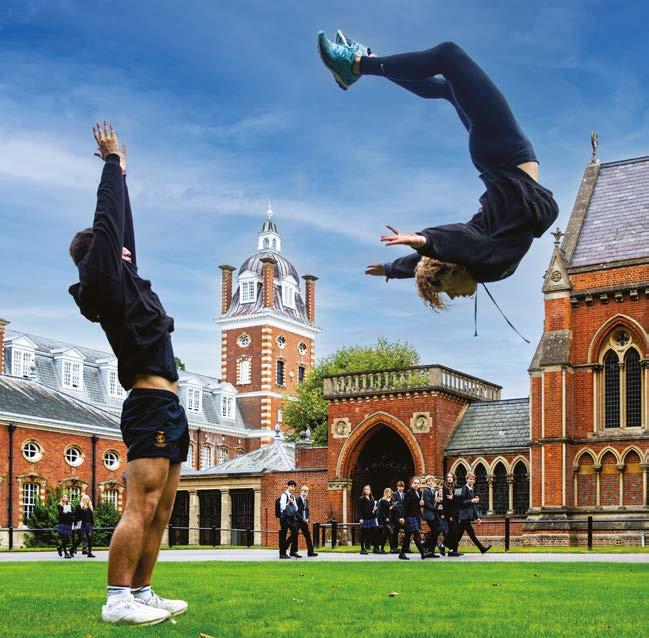



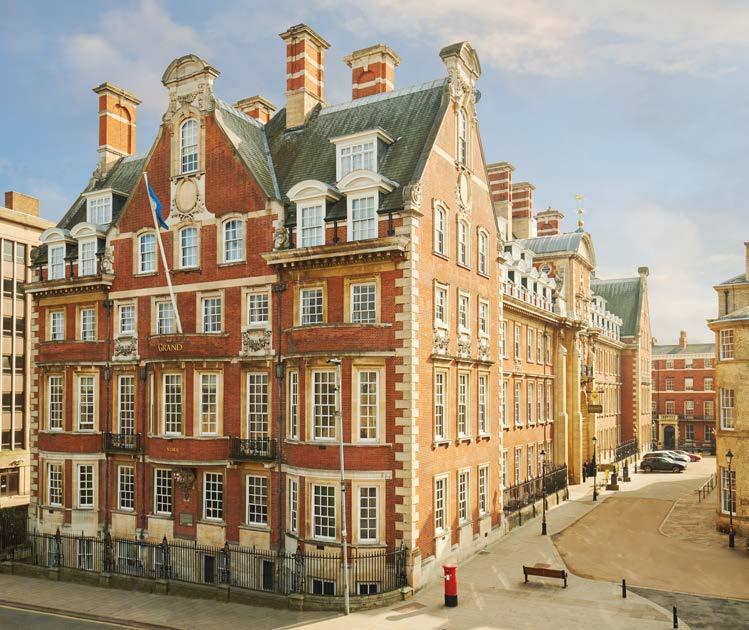
York’s only five-star hotel, The Grand, York is a hotel that certainly lives up to its name. With its city centre location, it is just five minutes from the station (from where trains can reach London in under two hours), plus its bespoke experiential packages and exquisite culinary offerings ensure the hotel provides the perfect year-round escape for all guests.
Built in 1906 as a ‘Palace of Business’, it was the North Eastern Railway Company HQ, and today The Grand, York still retains its Edwardian splendour. The 207 beautifully designed luxury suites and spacious rooms occupy the two main wings. Guests can choose between the original building with its high ceilings, large windows and architectural quirks, or the contemporary wing with a clever blend of heritage and contemporary simplicity. The hotel also has The Studio Apartment for a truly luxury home-away-from-home, while providing the service, amenities, and comfort of a five-star hotel.
The spa, housed in the former vaults, is an urban sanctuary where guests can indulge in some downtime, complete with a pool, steam room, Nordic dry sauna and whirlpool. The hotel’s various food and beverage outlets include its new fine-dining restaurant, Legacy, where its modern British and Yorkshire-inspired menu serves local, seasonal and sustainable dishes in an iconic setting. The AA Rosette restaurant, The Rise, is available for breakfast, award-winning afternoon tea and dinner, coupled with the hotel’s cosy cocktail bar, 1906. The Cookery School is also a fun and educational space to put guests’ own culinary skills to the test with the guidance of Head Tutor, Marc Williams. thegrandyork.co.uk
• One night stay for two adults and two children*
• Parent and child cookery class for two adults and two kids*

• Access to spa facilities
Please answer the following question and enter at the website address below:
In what year was The Grand built?


Did you enjoy your time at school?
No I hated it. I was unhappy and terribly homesick, I was much happier at home. I went to St Clothilde’s prep school in Lechlade, Gloucestershire, aged eight, which was the first of 10 schools that I attended. I was a non-conformist and Bedales responds to this type of child. It was at Bedales that I eventually found my niche.
How was Bedales different?
I arrived when I started my GCSEs and it was my first experience of a coed school. It was a friendly, sympathetic environment. We didn’t wear uniforms and called teachers by their first names. Bedales has a very strong charitable and artistic ethos.
What did you want to be when you grew up?
My ambition was to get married and have four children. Nothing was expected of girls of my generation from a professional aspect, although a lot of my peers went on to university, so I did not see the importance of working hard and I did just enough to get by.
Were your family academic?
My grandmother had my mother in her 40s and then my mother left school at 16. My father left Eton, went straight into the army and later became chairman of Christie’s. So there is no recent history
of family members having gone to university. I’ve worked very hard since leaving school and have been presenting Location, Location, Location for over 20 years now. If I had one criticism of my parents I would say that they were not interested in my schooling.
How do your children compare to you?
I look at my children and think to myself: “how do I incentivise them”? I have two step-sons and two sons, and I am very keen on
rewarding them at home for their successes in their school work. But I’m not interested in sending my children to university or paying for it unless they are seriously studious. Work experience is far more important.
Were you good at sport? No, no, no! I was hopeless with bats and balls and being competitive, I didn’t like doing anything I could not do well. As a child, standing out from the crowd and competitiveness were frowned upon, so I hid
it. As an adult I am very competitive, and I like to go wild swimming and cycling.
Do you have any advice for your school-age self?
I would work much, much harder at my studies and I would chill out about my friends: I had the social antennae of an amoeba and would get far too caught up in their dramas.
Favourite teachers?
I was dyslexic, and although I liked maths I found numbers hard. My maths teacher Dennis Archer was fantastic and got me through my GCSE. Philip Parsons, Ruth Whiting and Alison Willcocks were my very inspiring history teachers. I was creative-ish so I also enjoyed art.
What about friends?
I had five close girlfriends but no male friends. Bedales is a small school and Bedalians stick together.
What do you think your teachers think of you now?
I believe my teachers would be surprised to see what job I have today. They might also be surprised that I had stuck at something so long!
The television presenter admits she was far from studious and devoted more time to her friends than her schoolwork at Bedales School in Hampshire
I WAS DYSLEXIC, AND ALTHOUGH I LIKED MATHS, I found numbers hard. MY MATHS TEACHER DENNIS ARCHER GOT ME THROUGH MY GCSE

